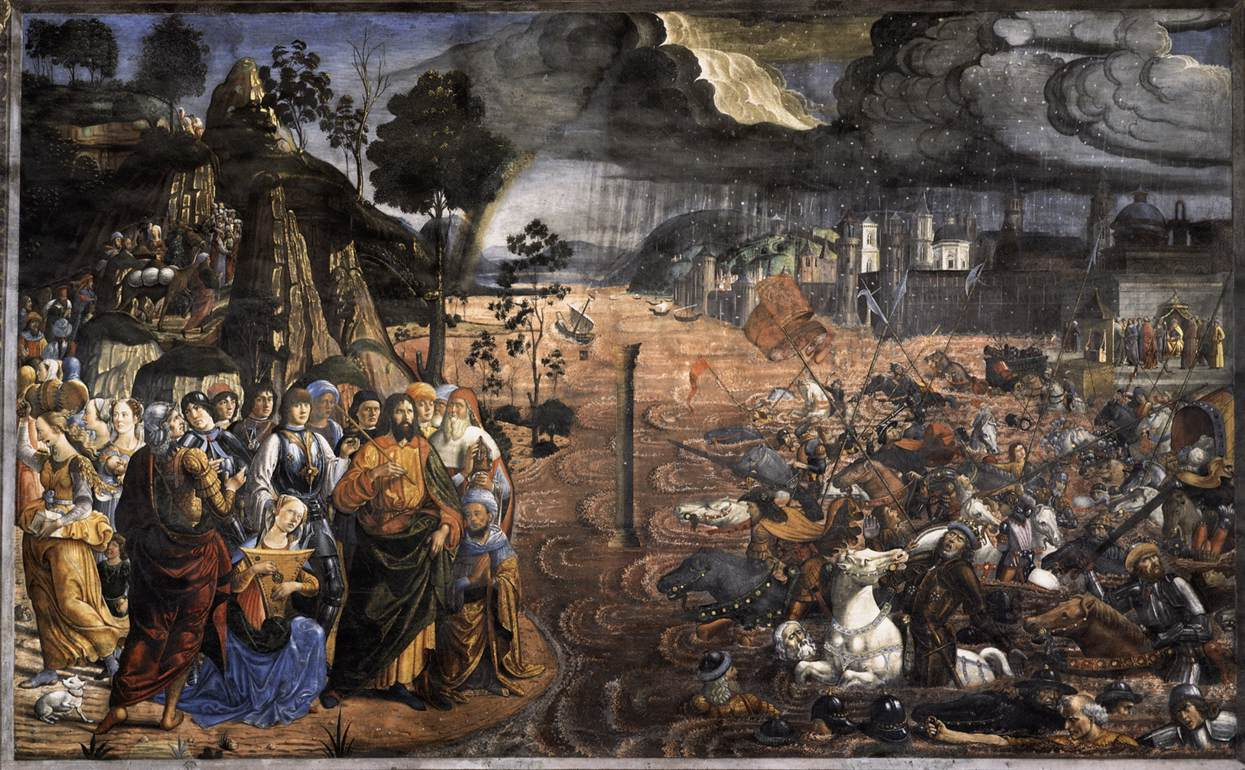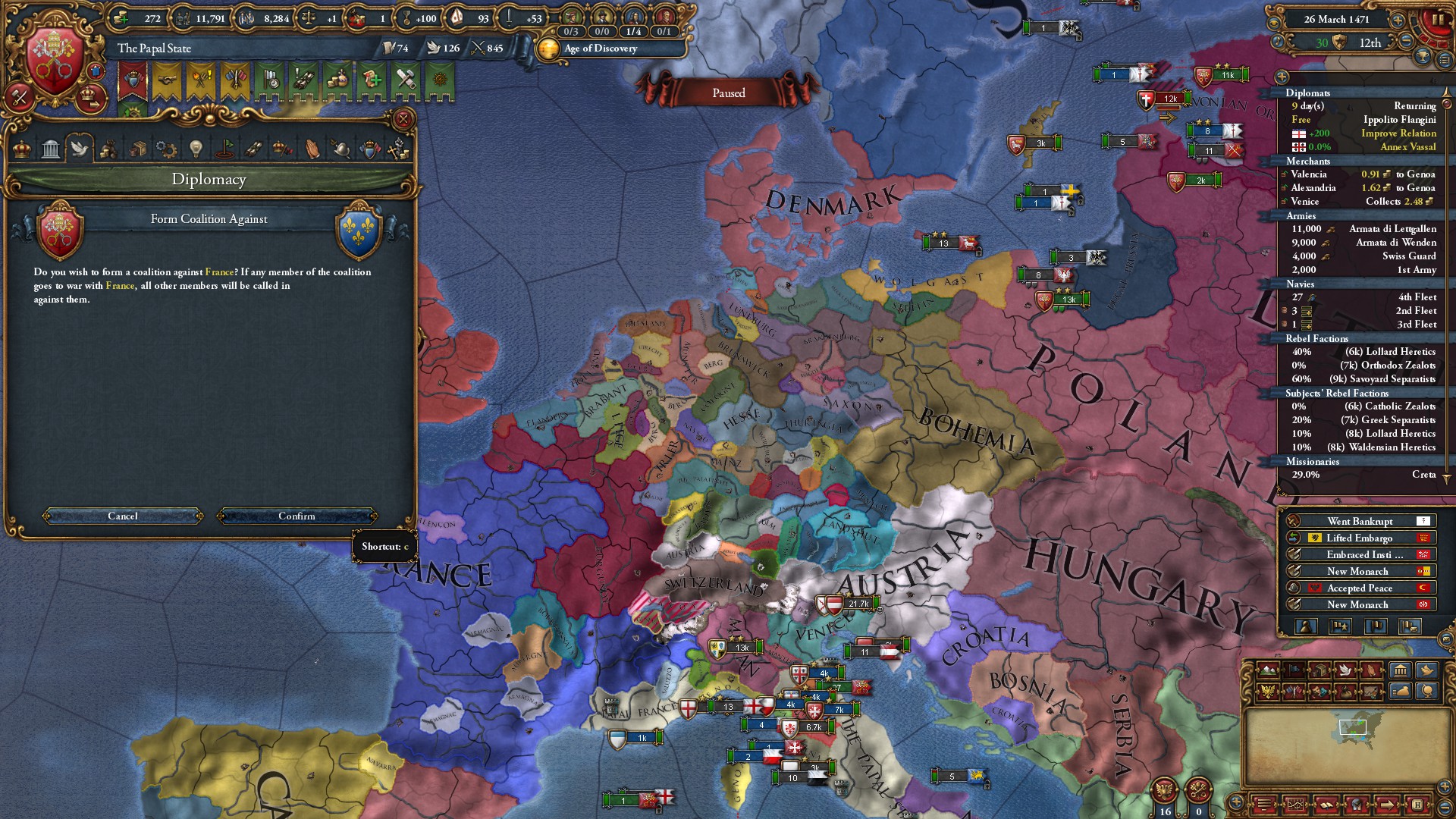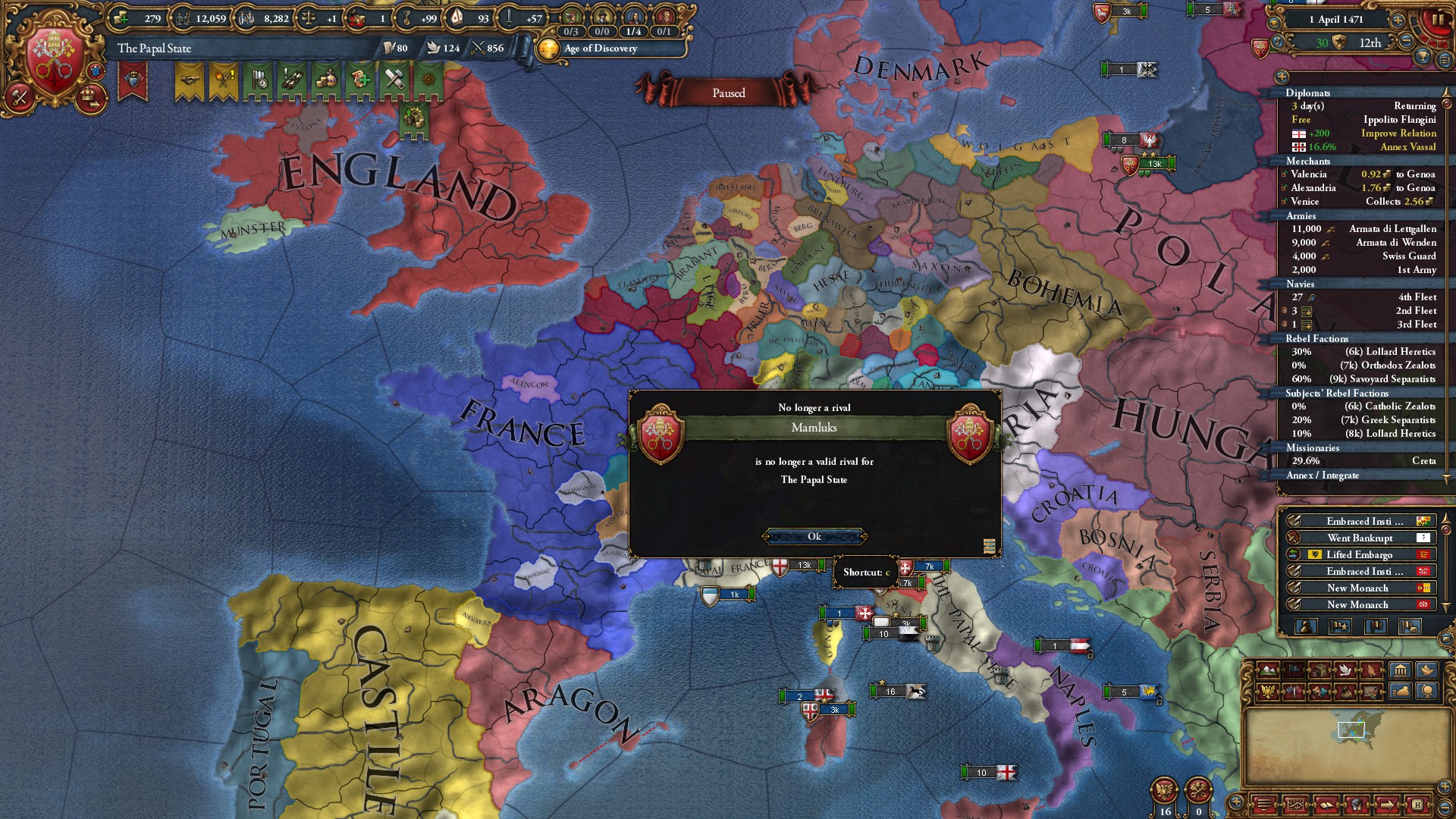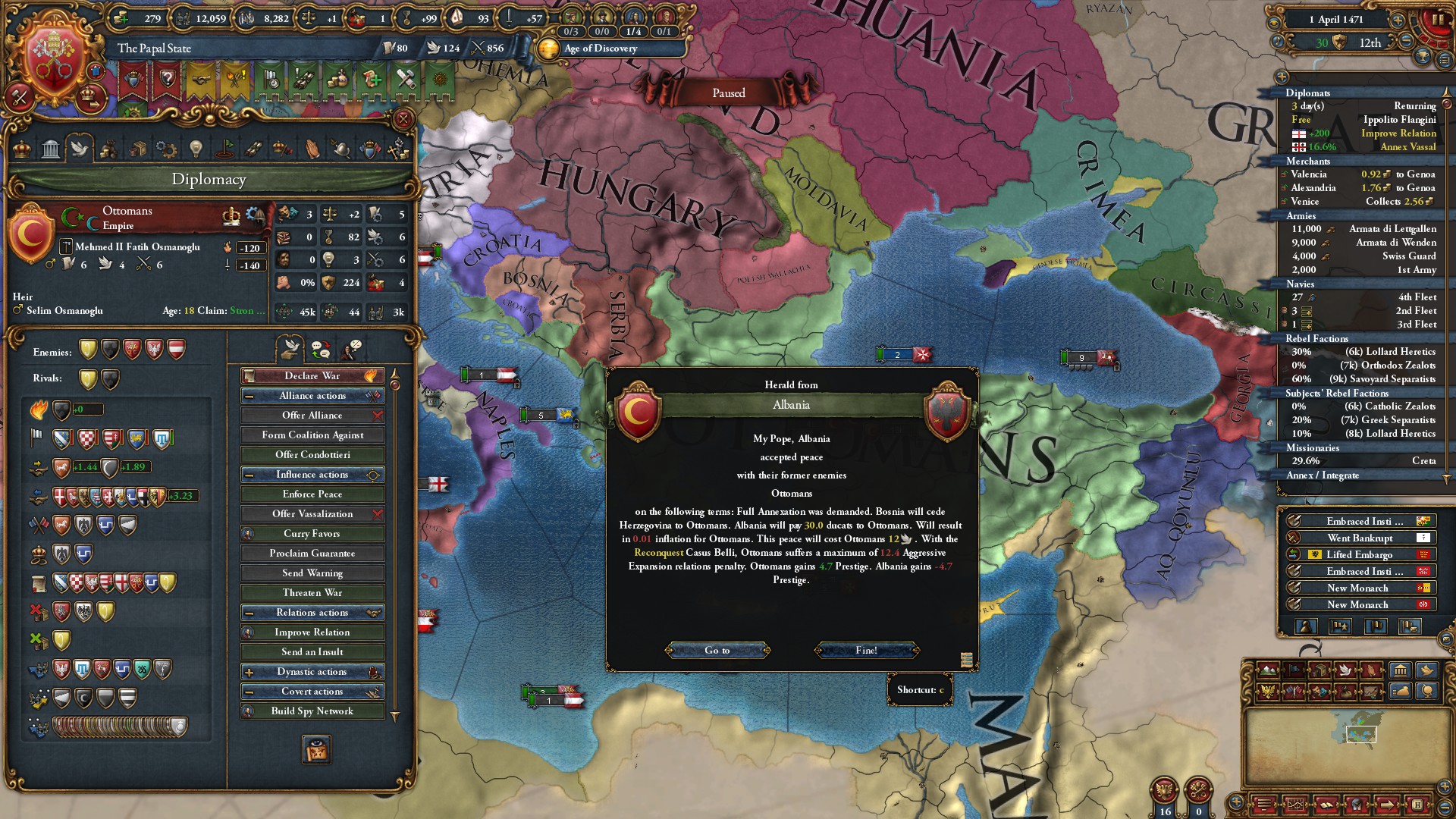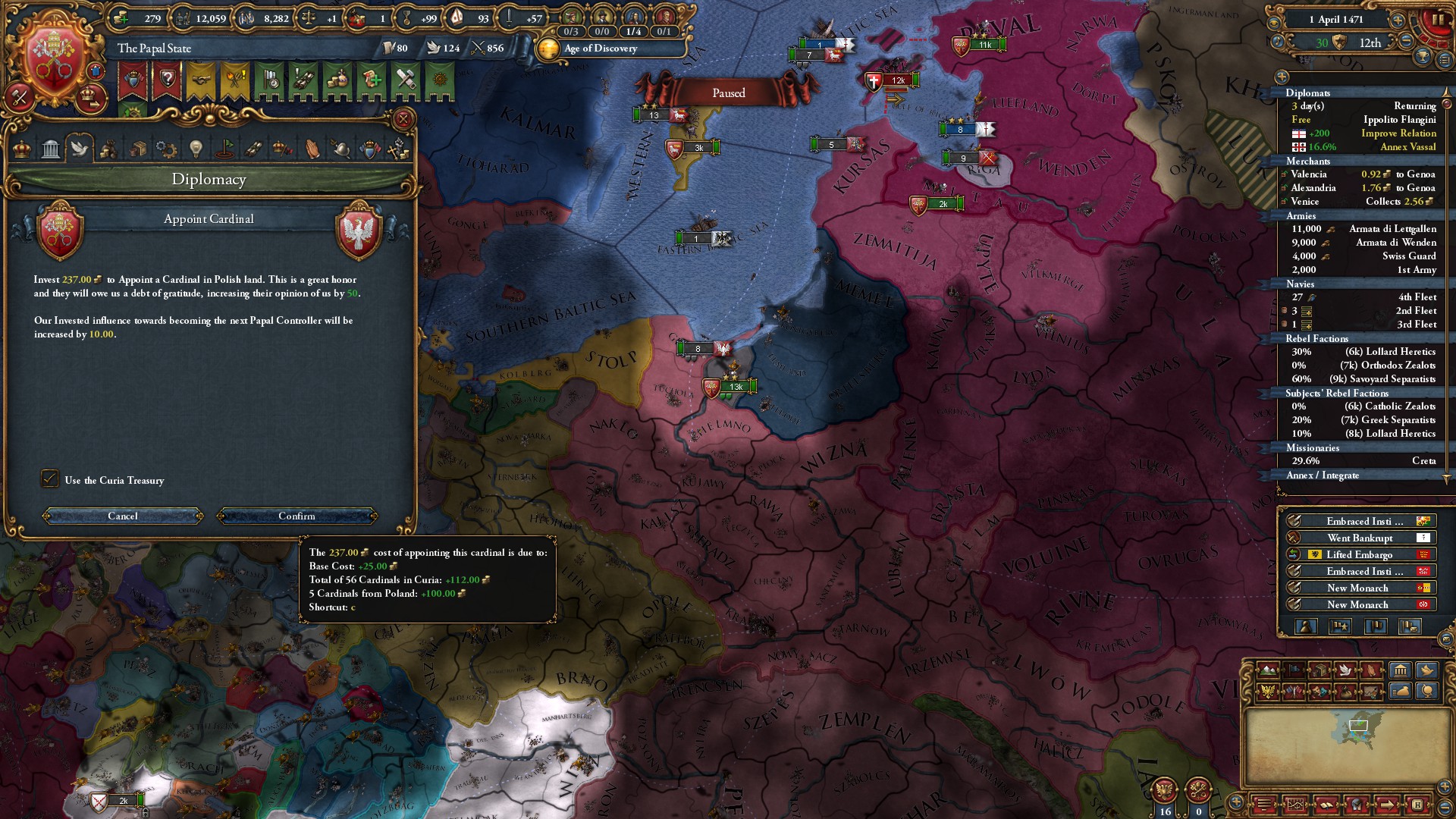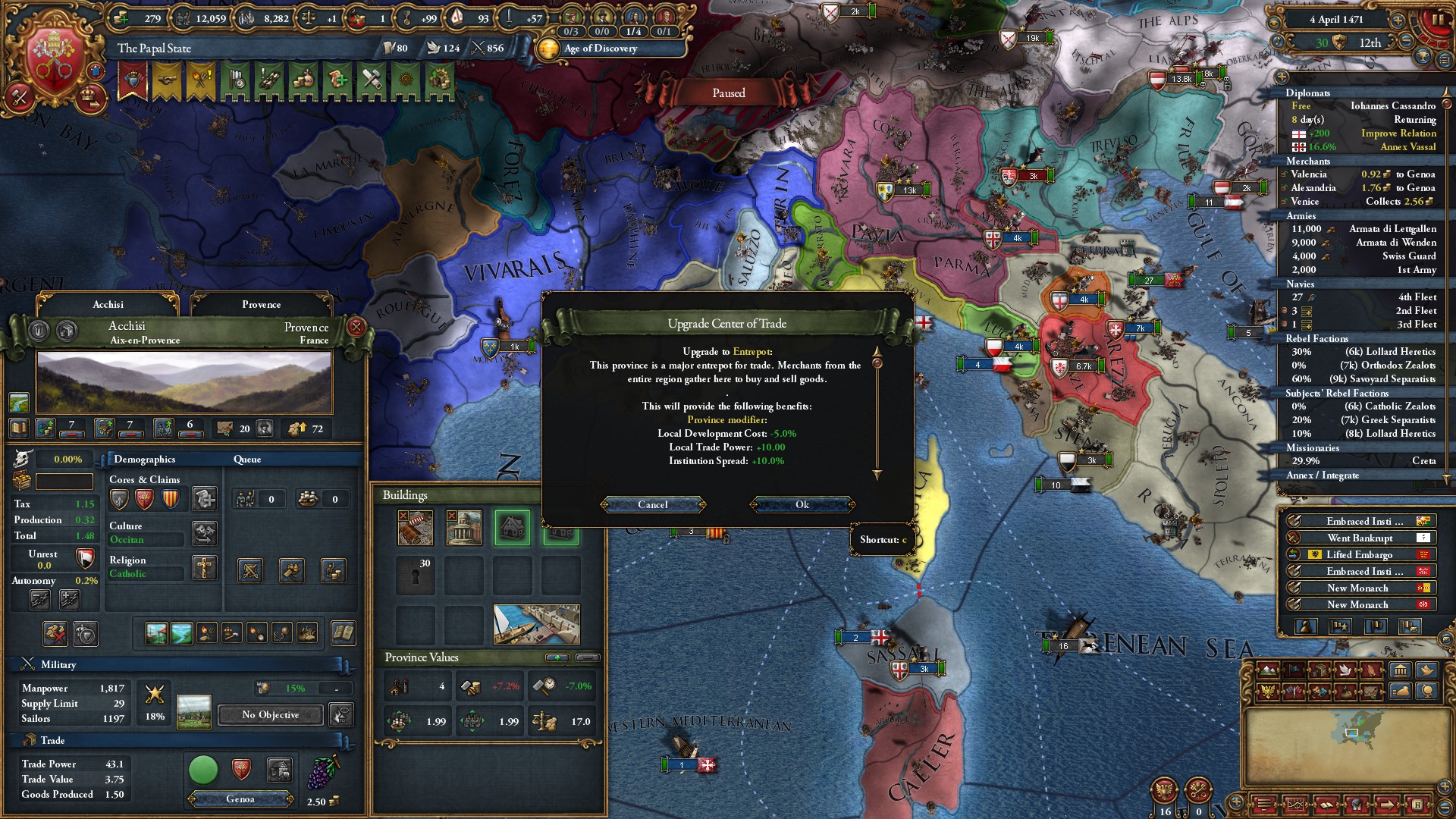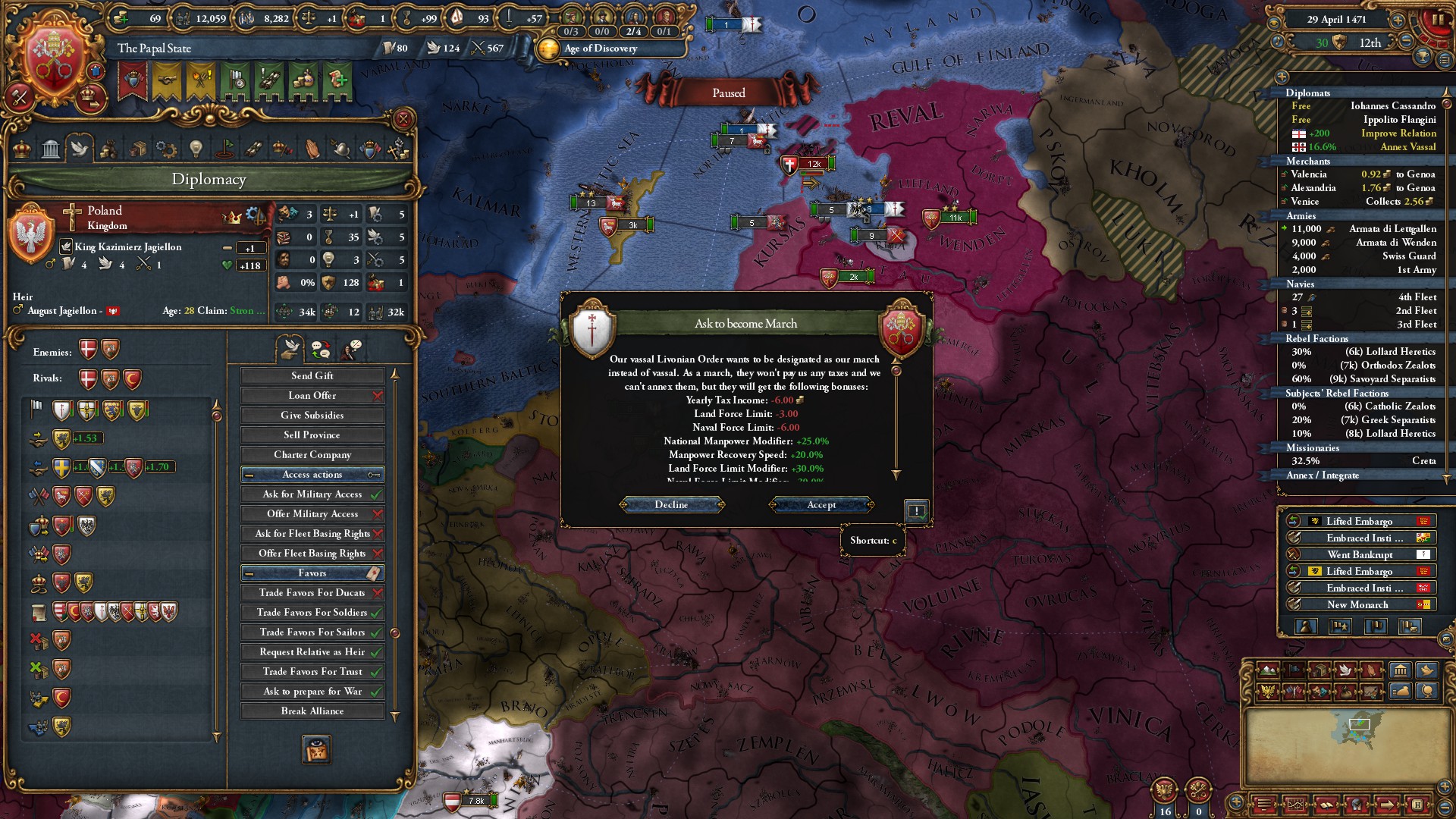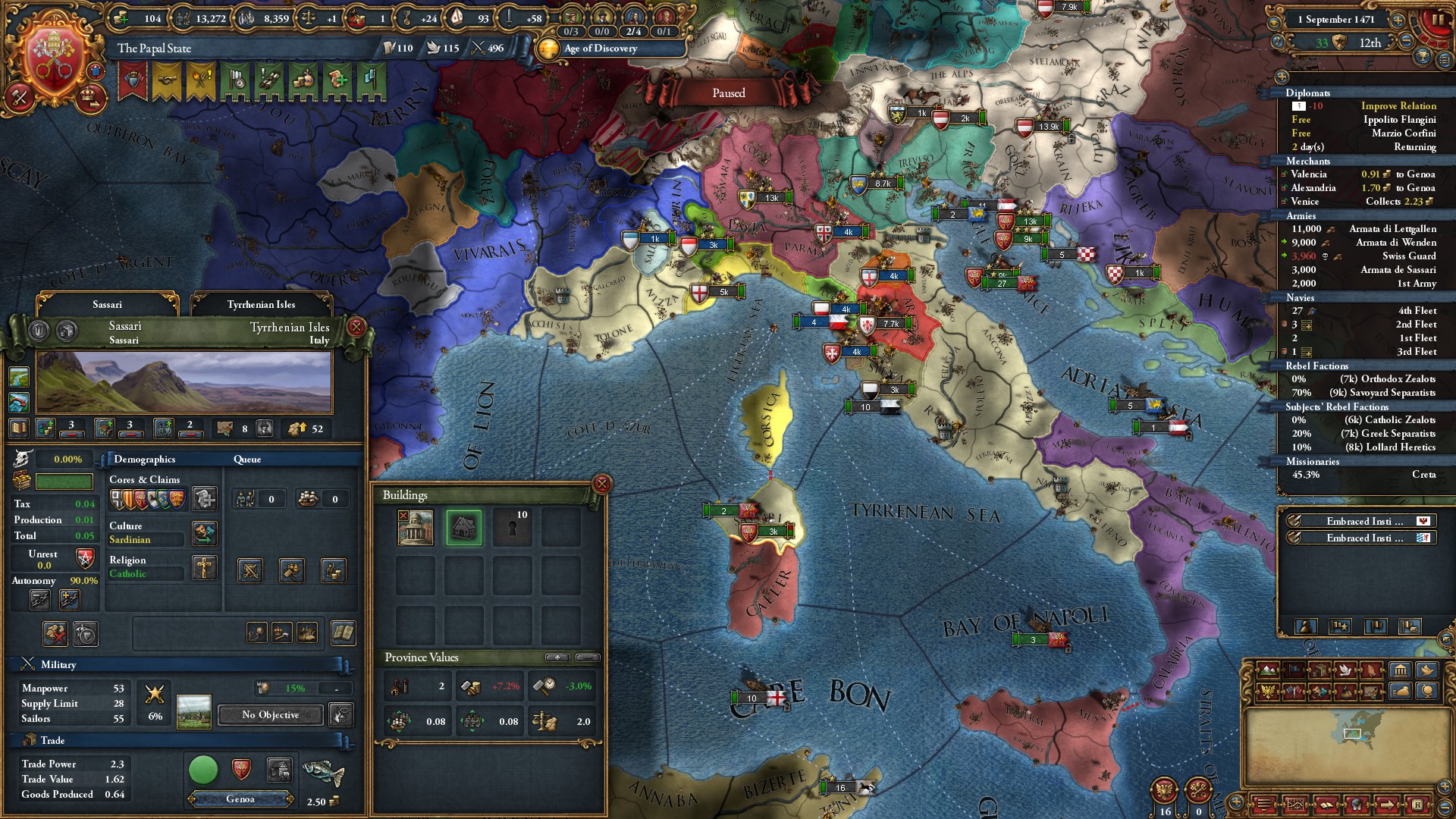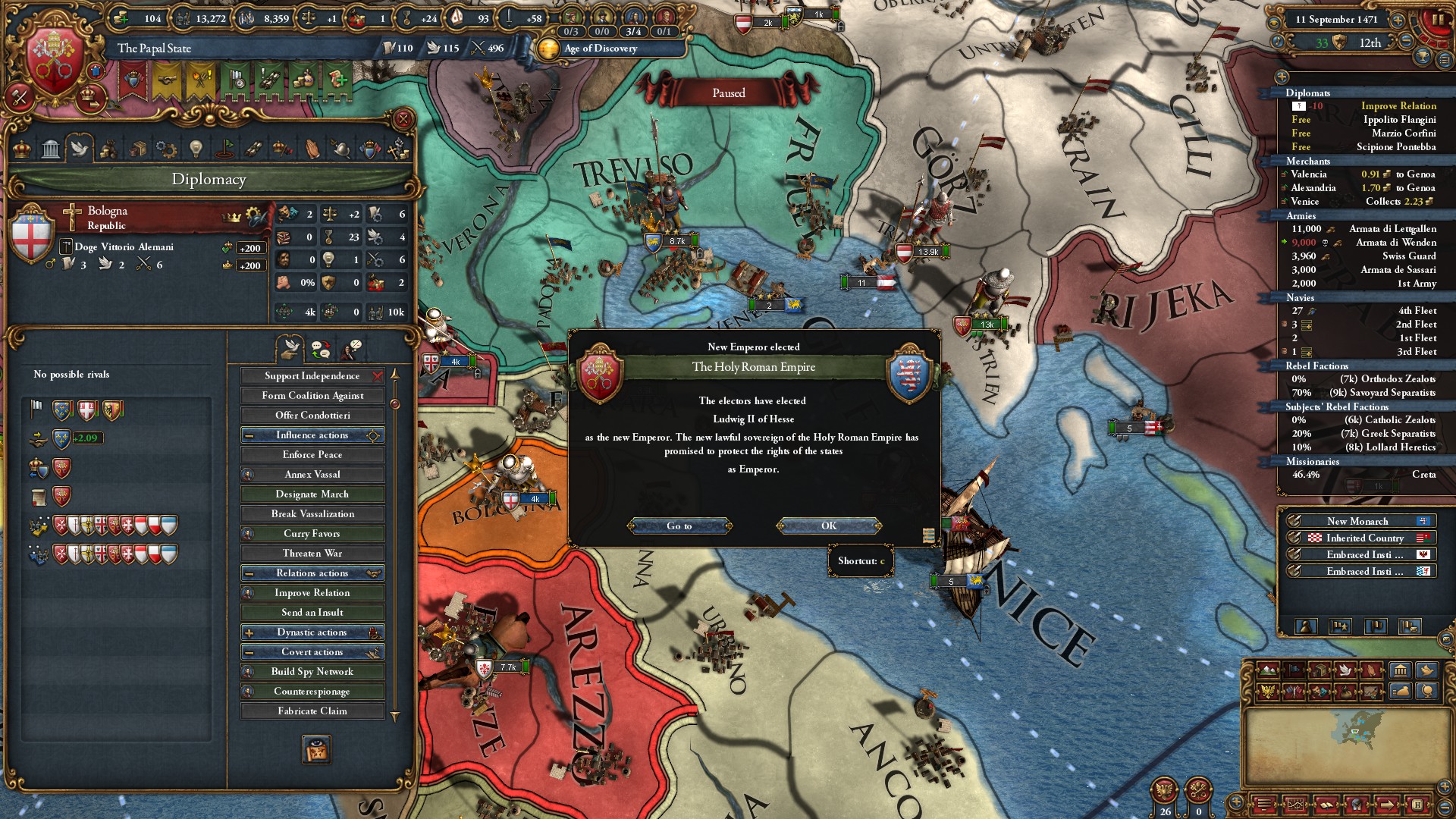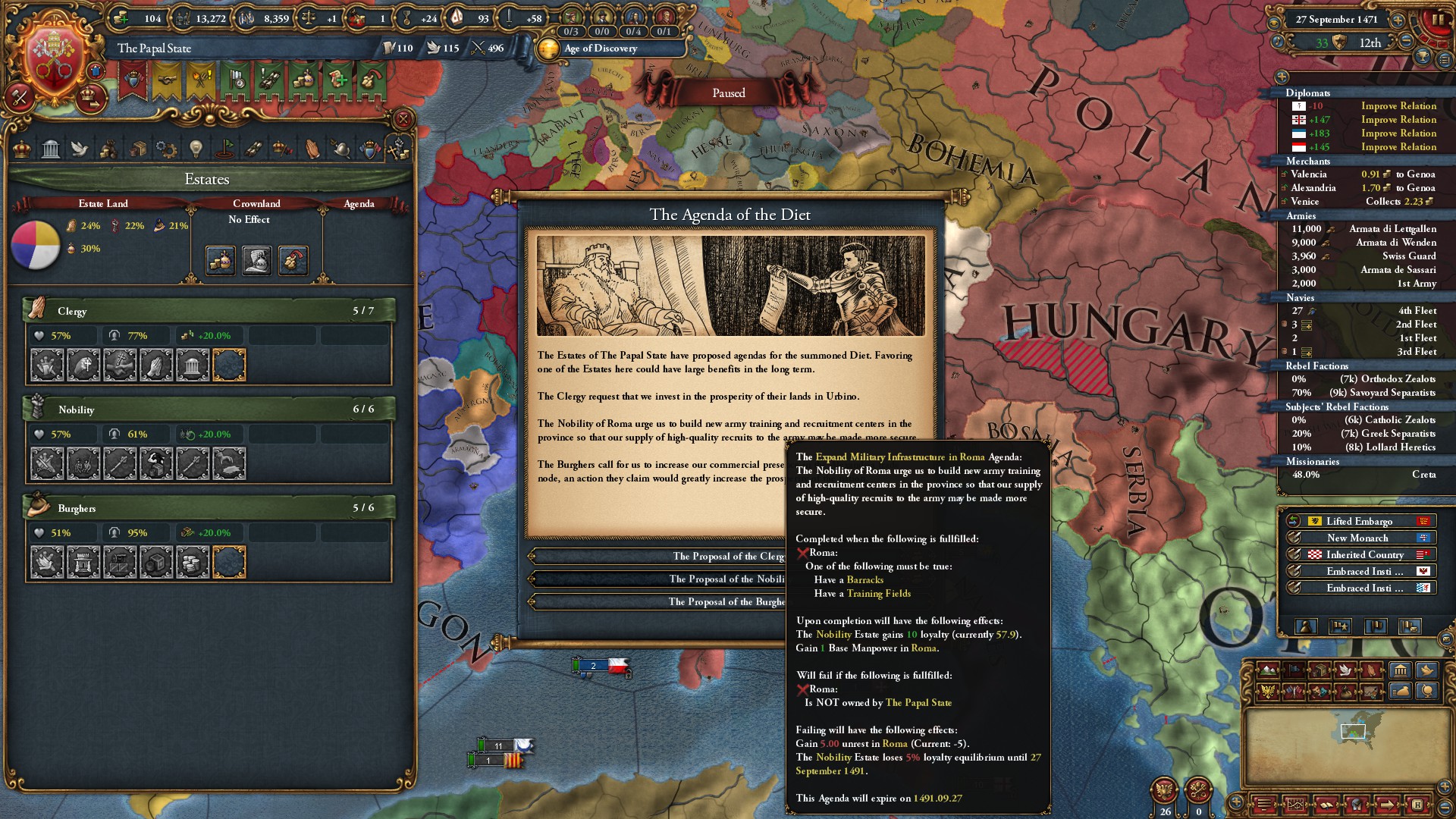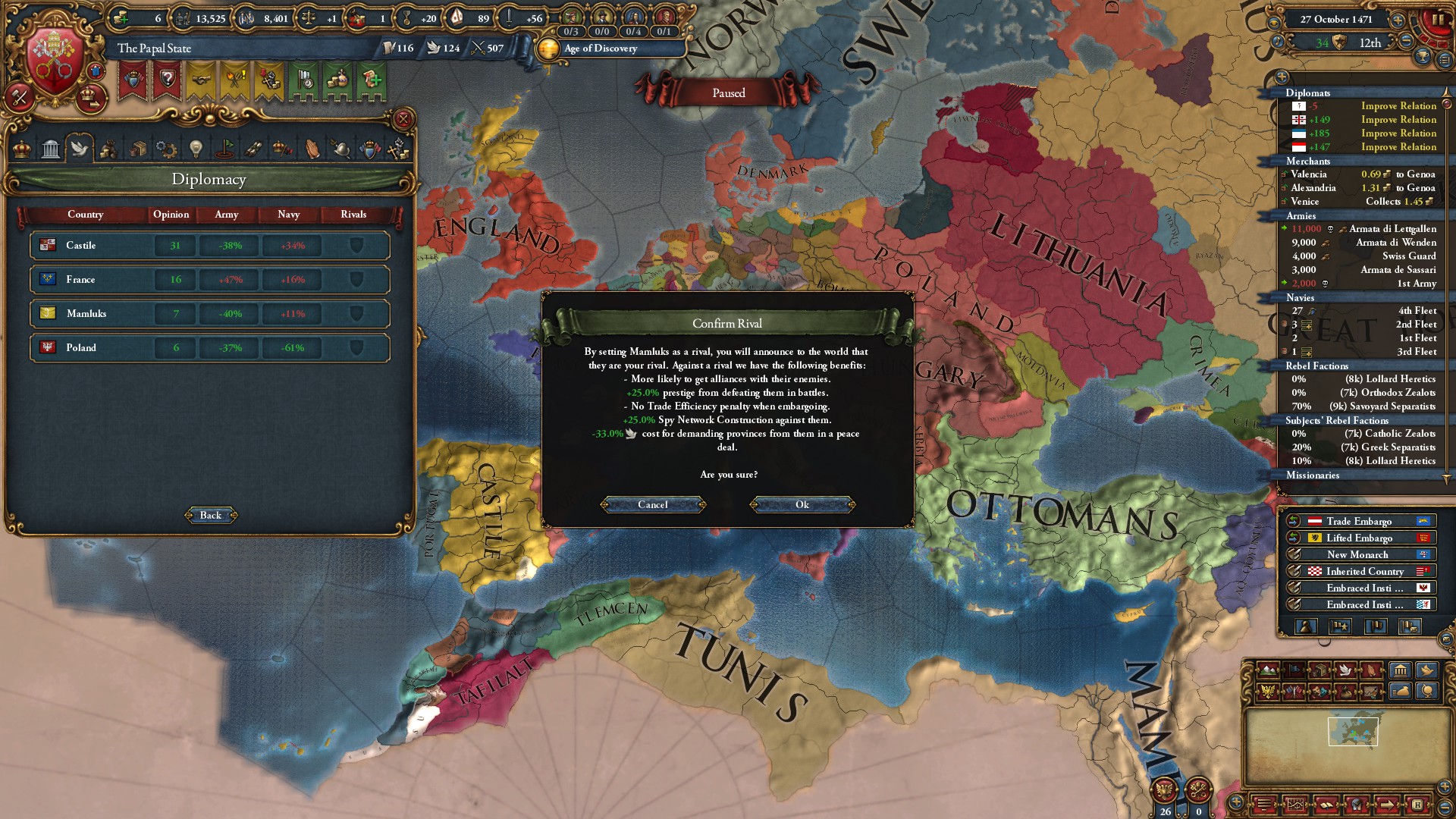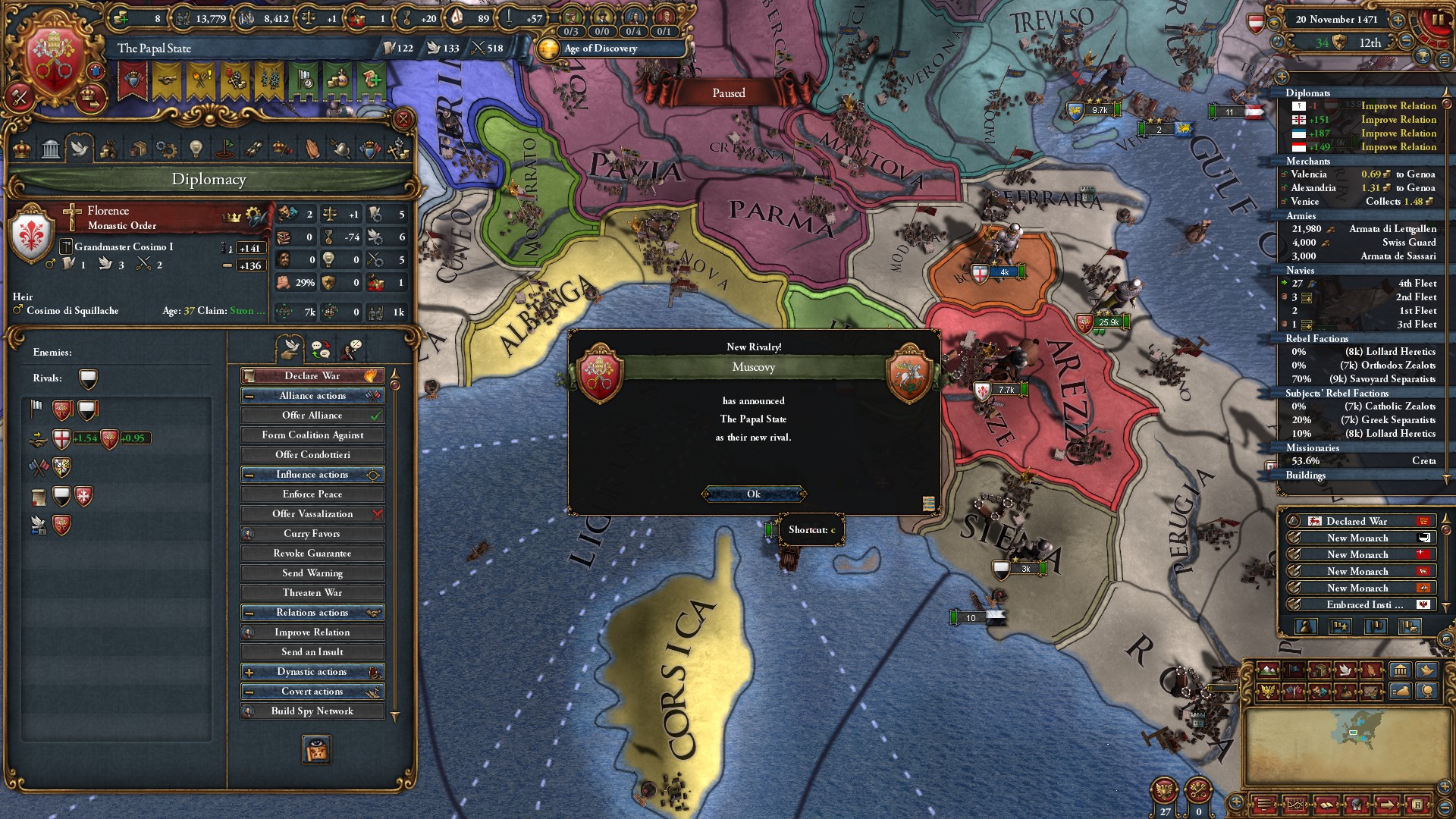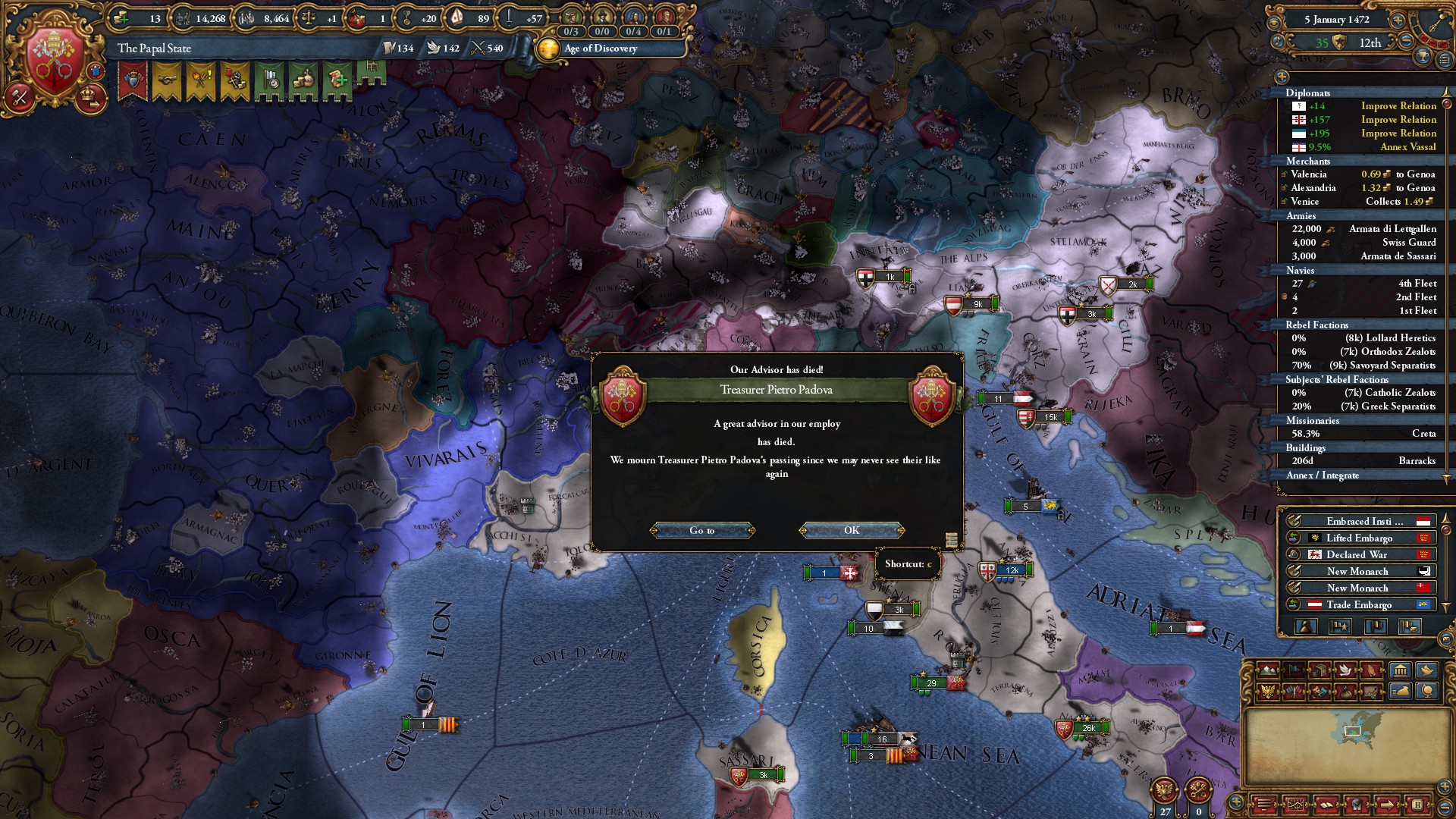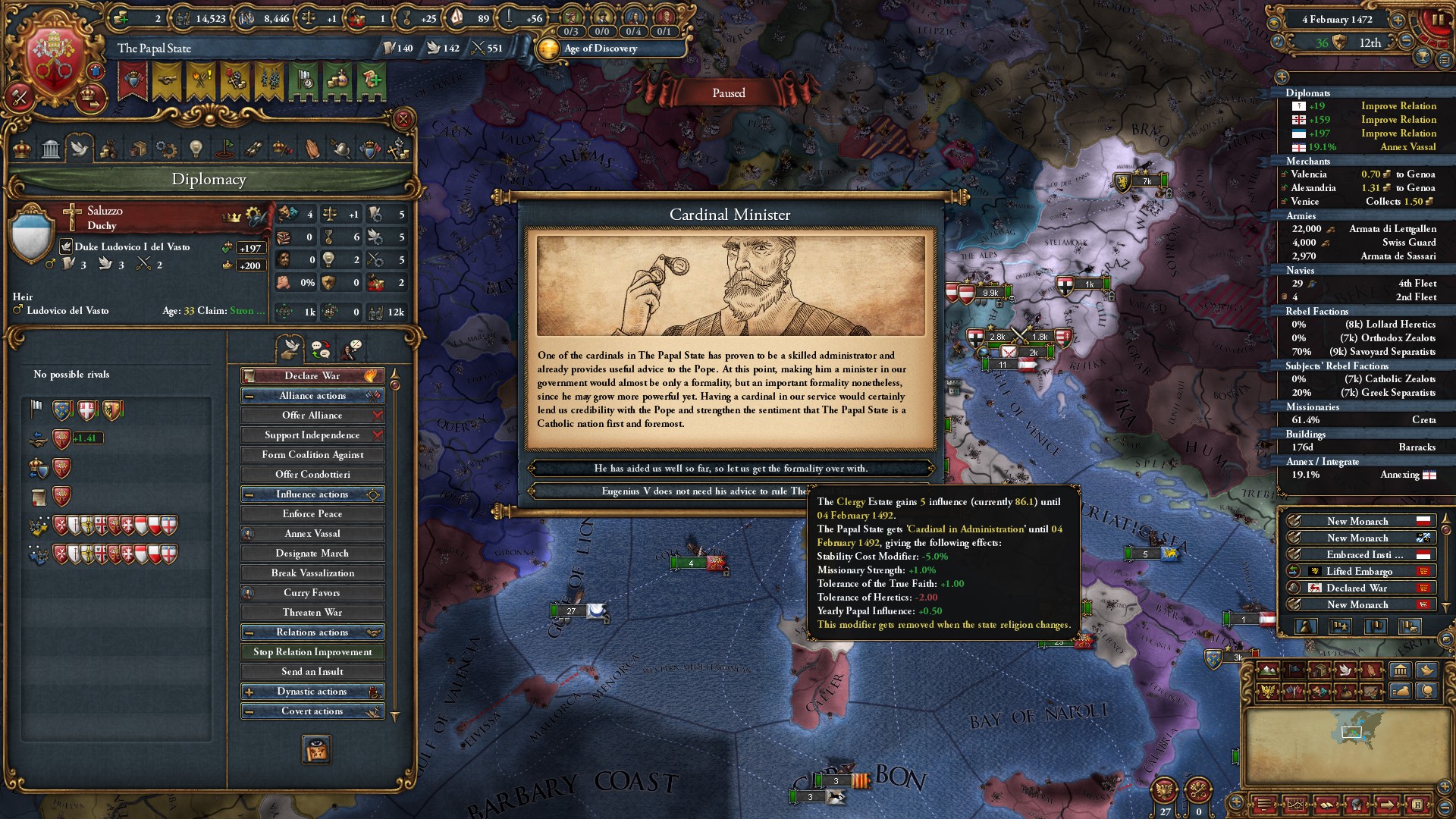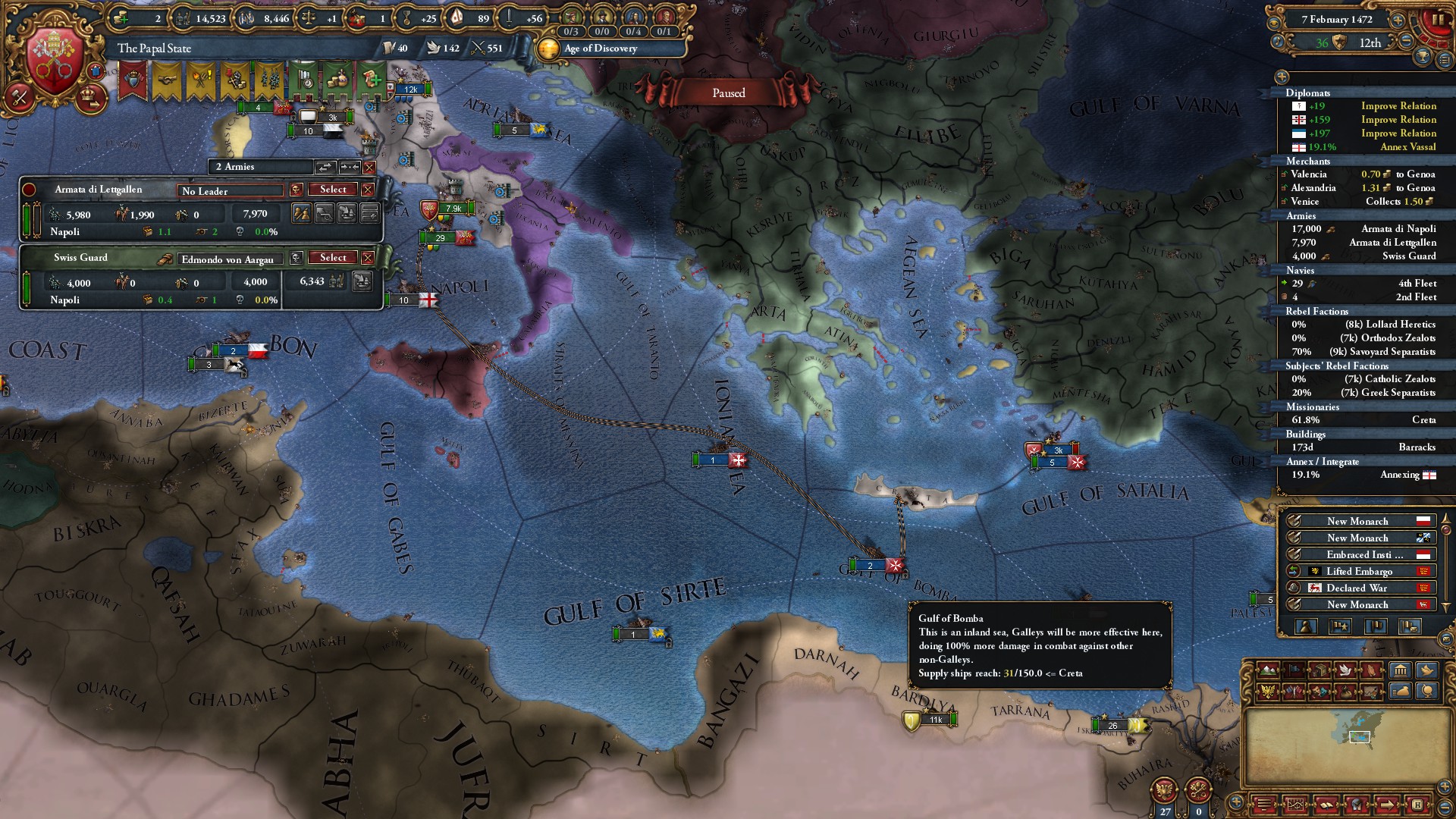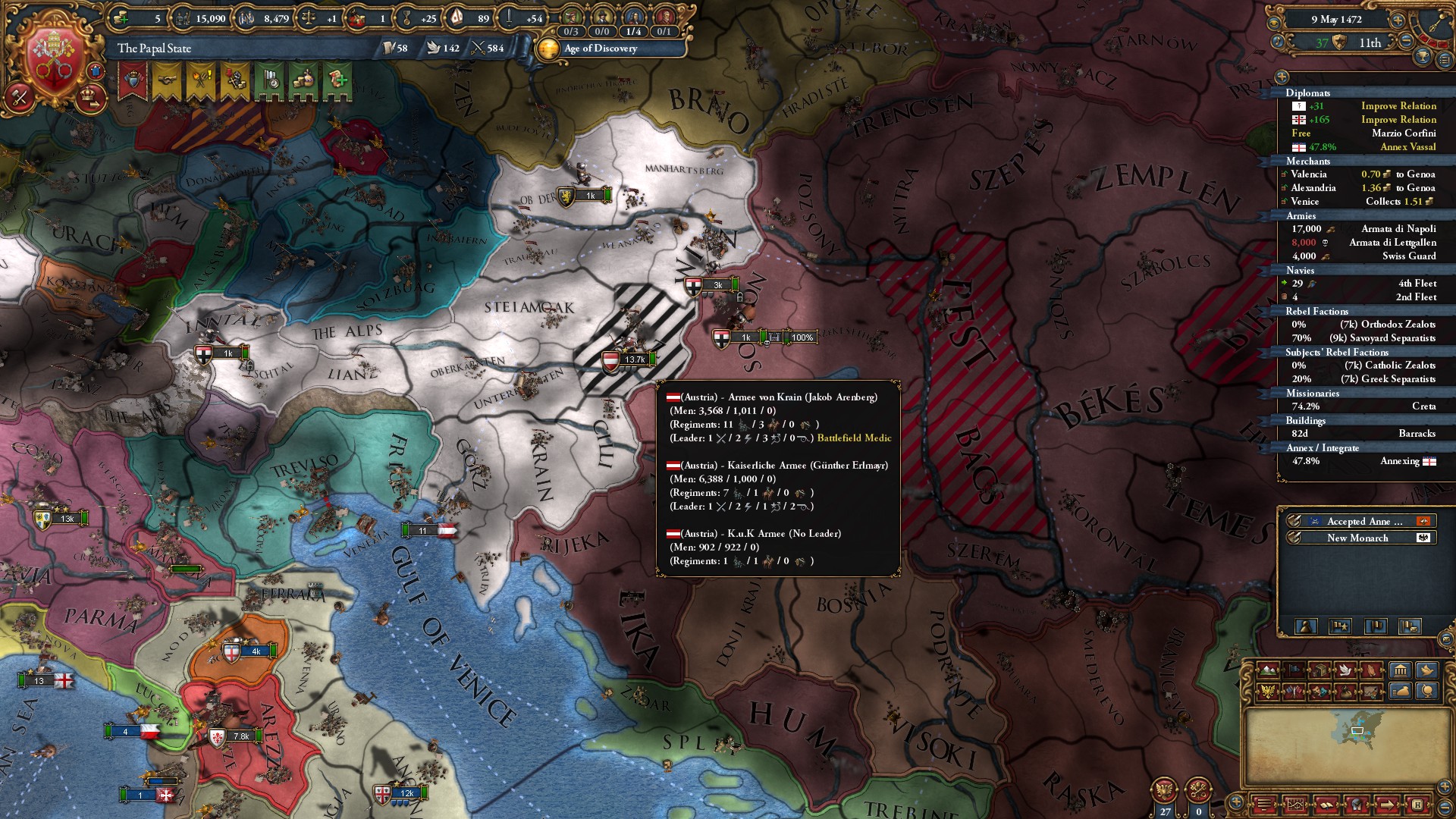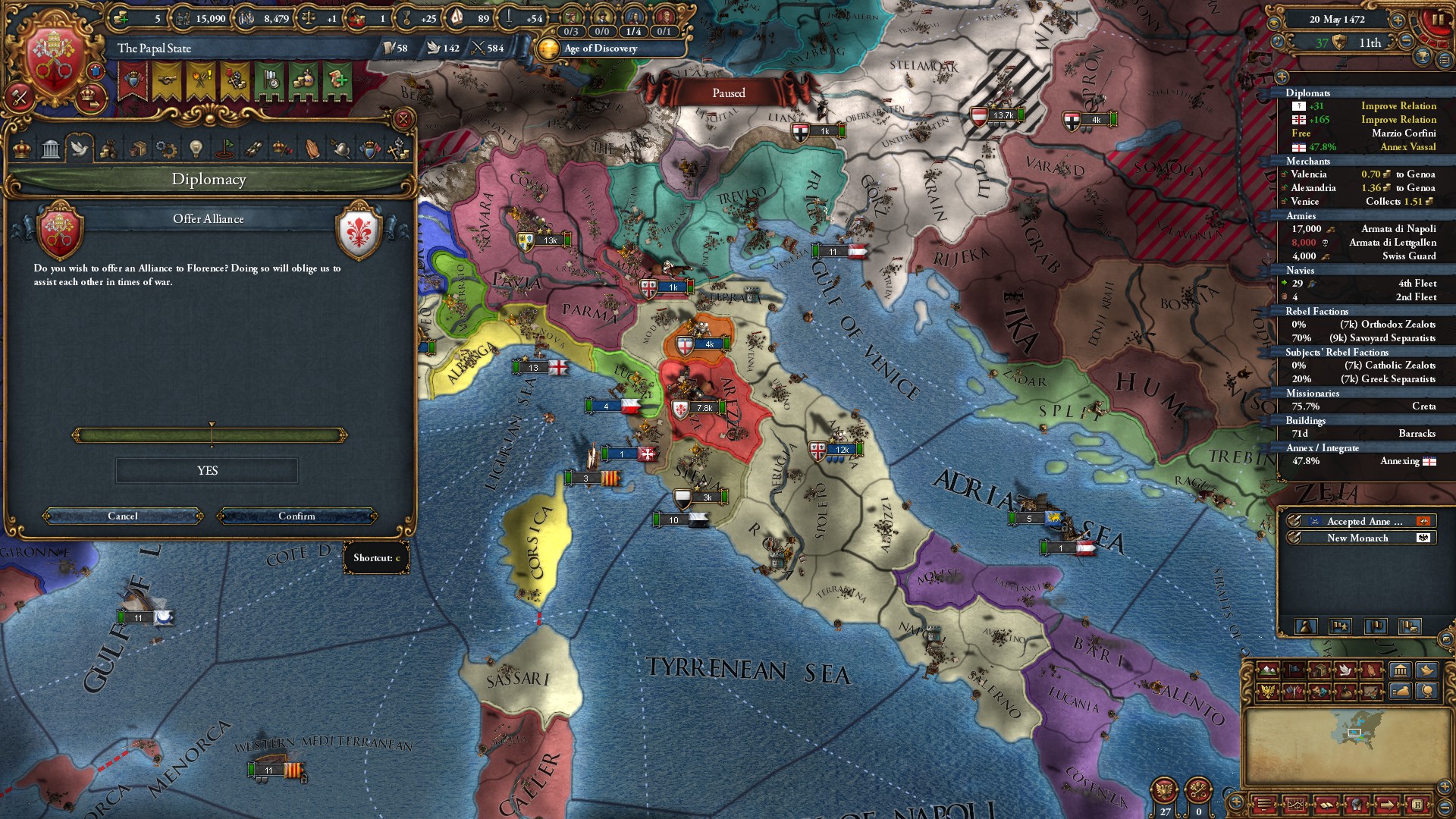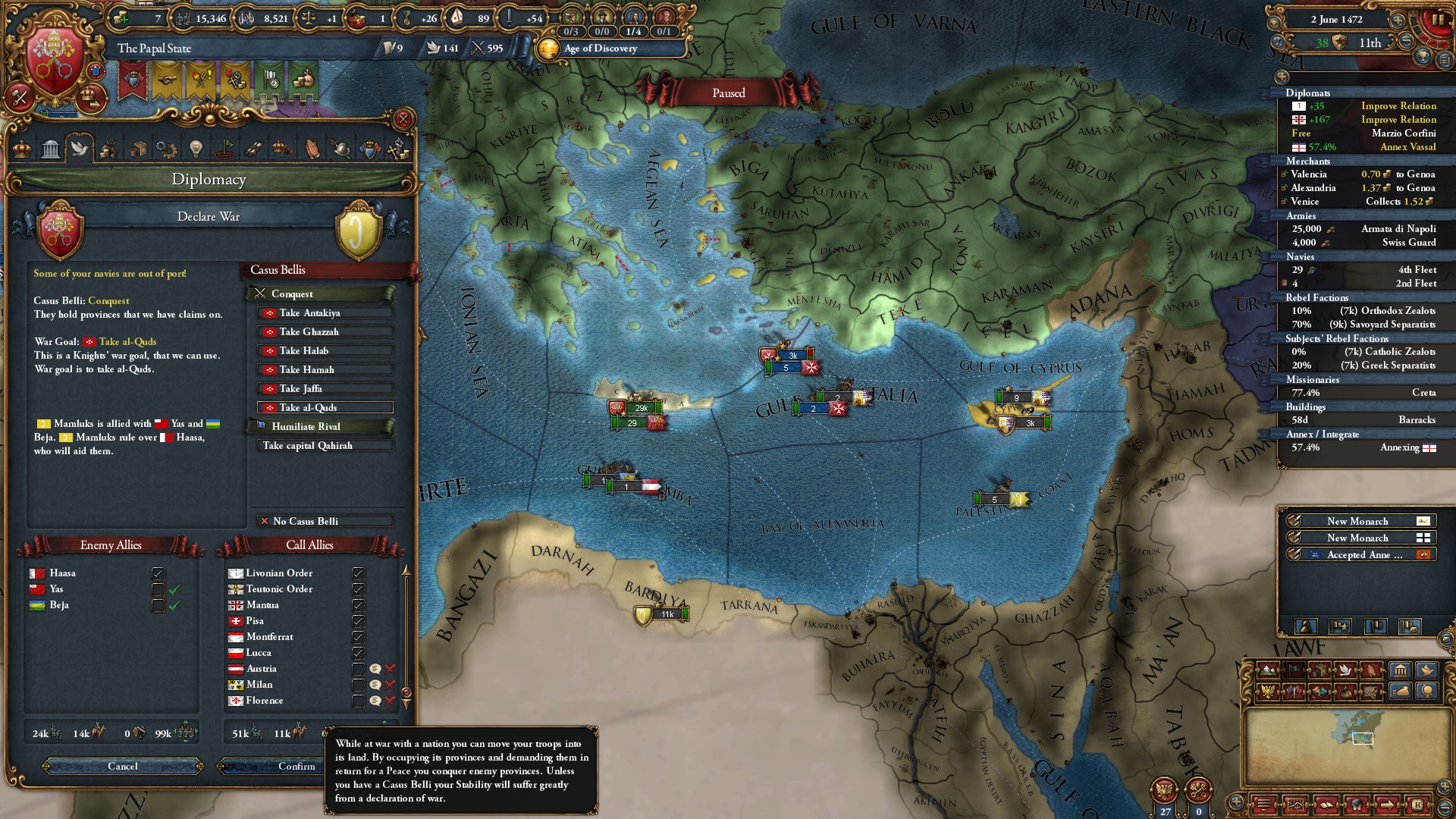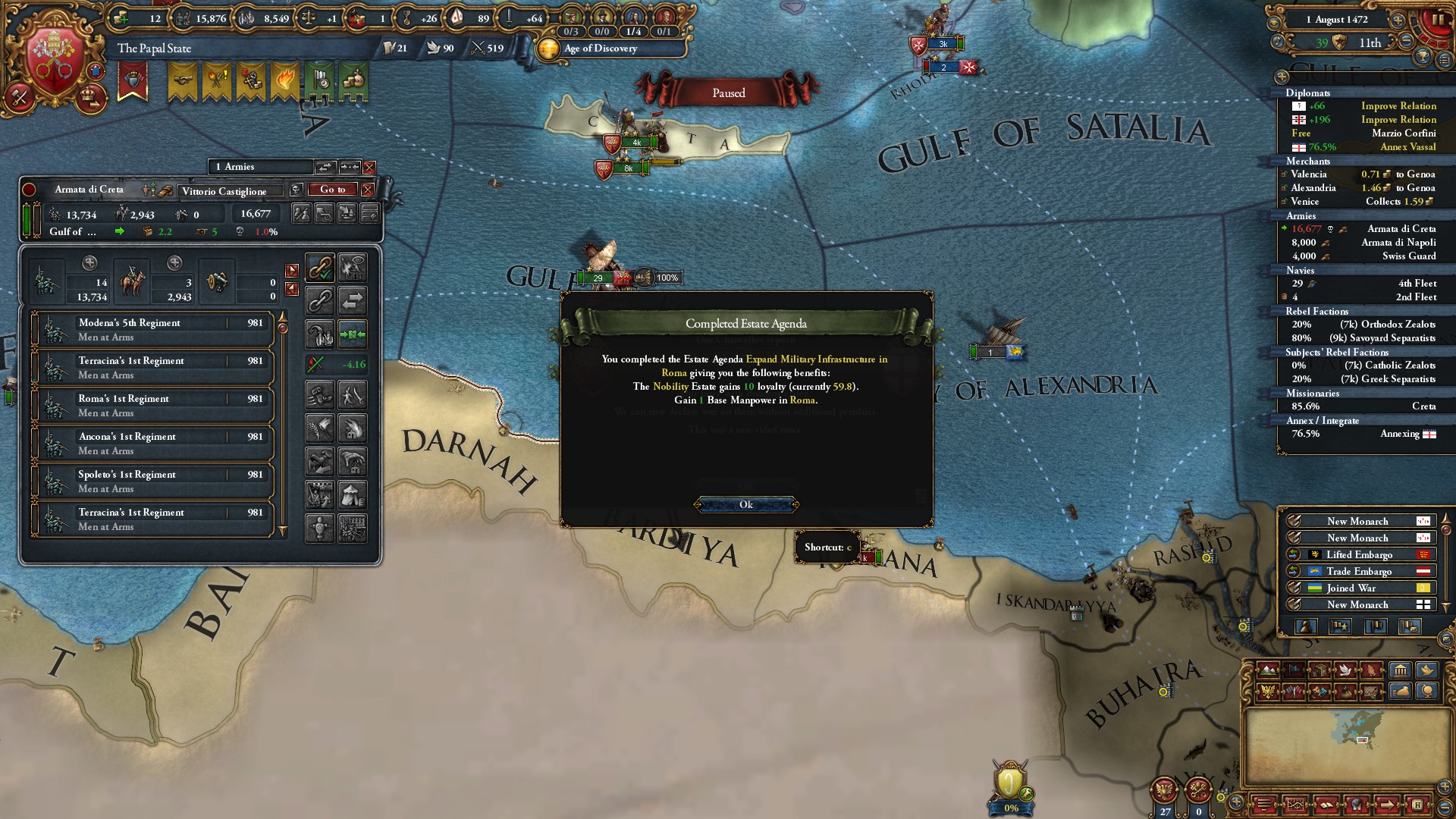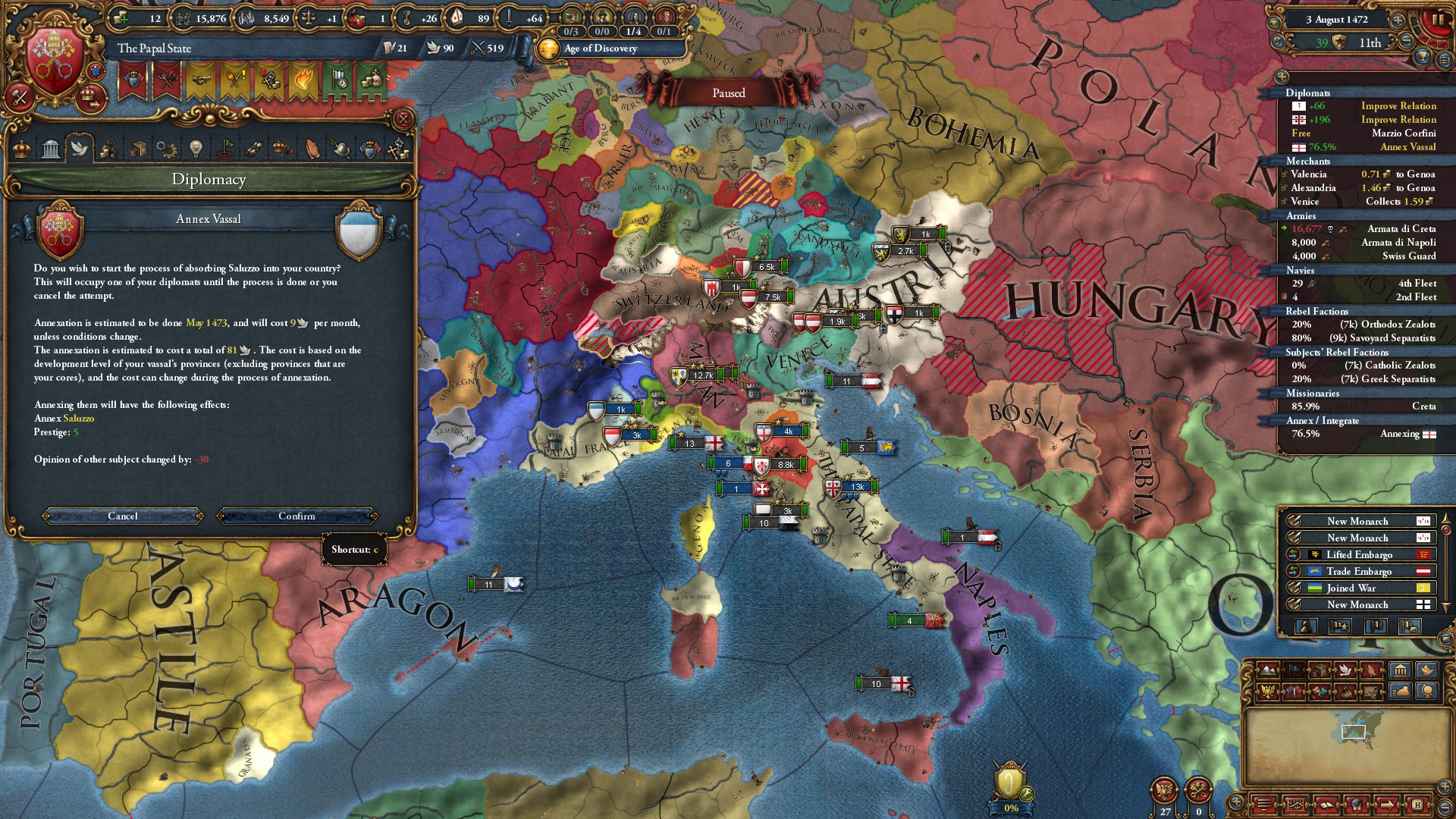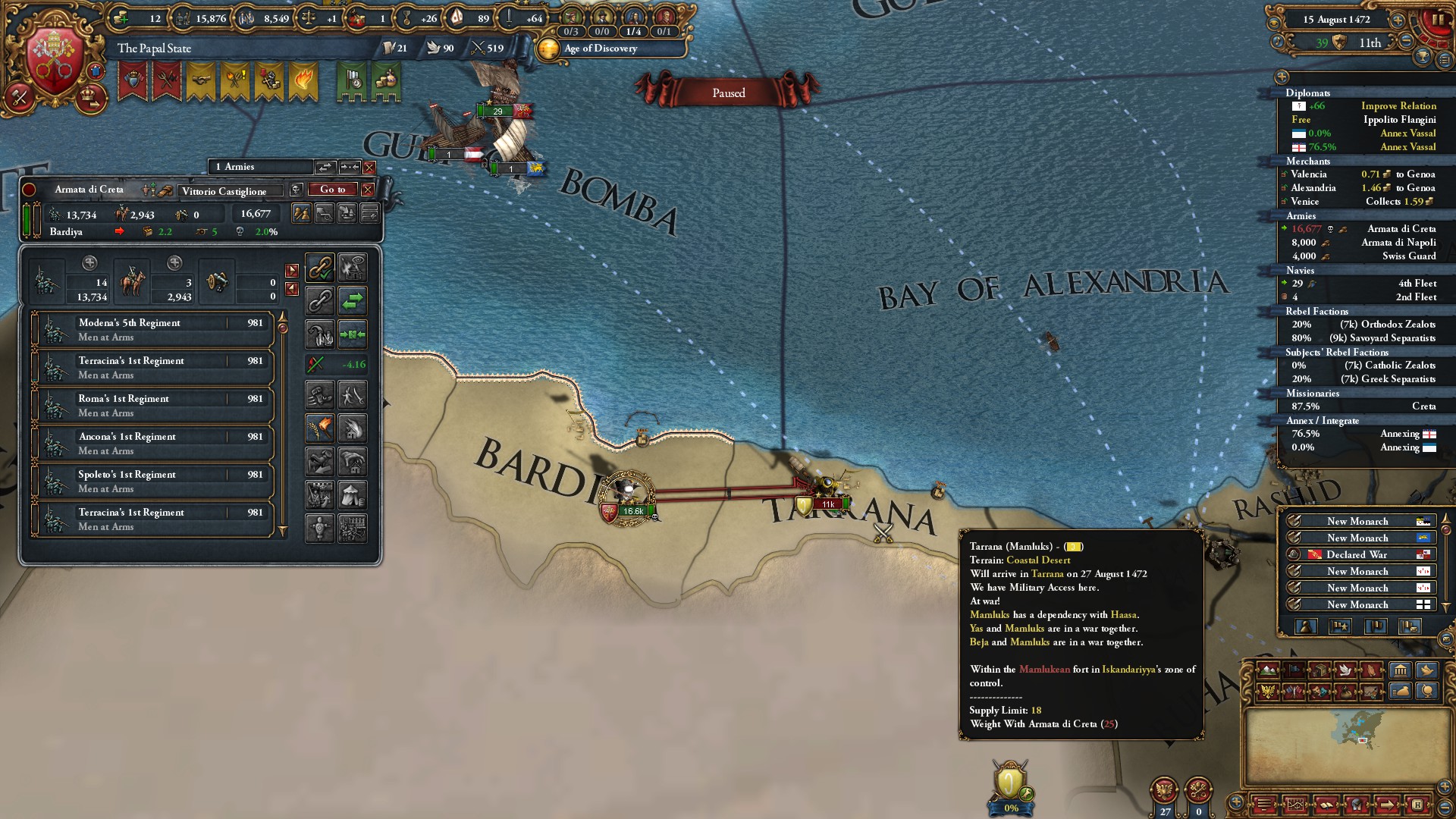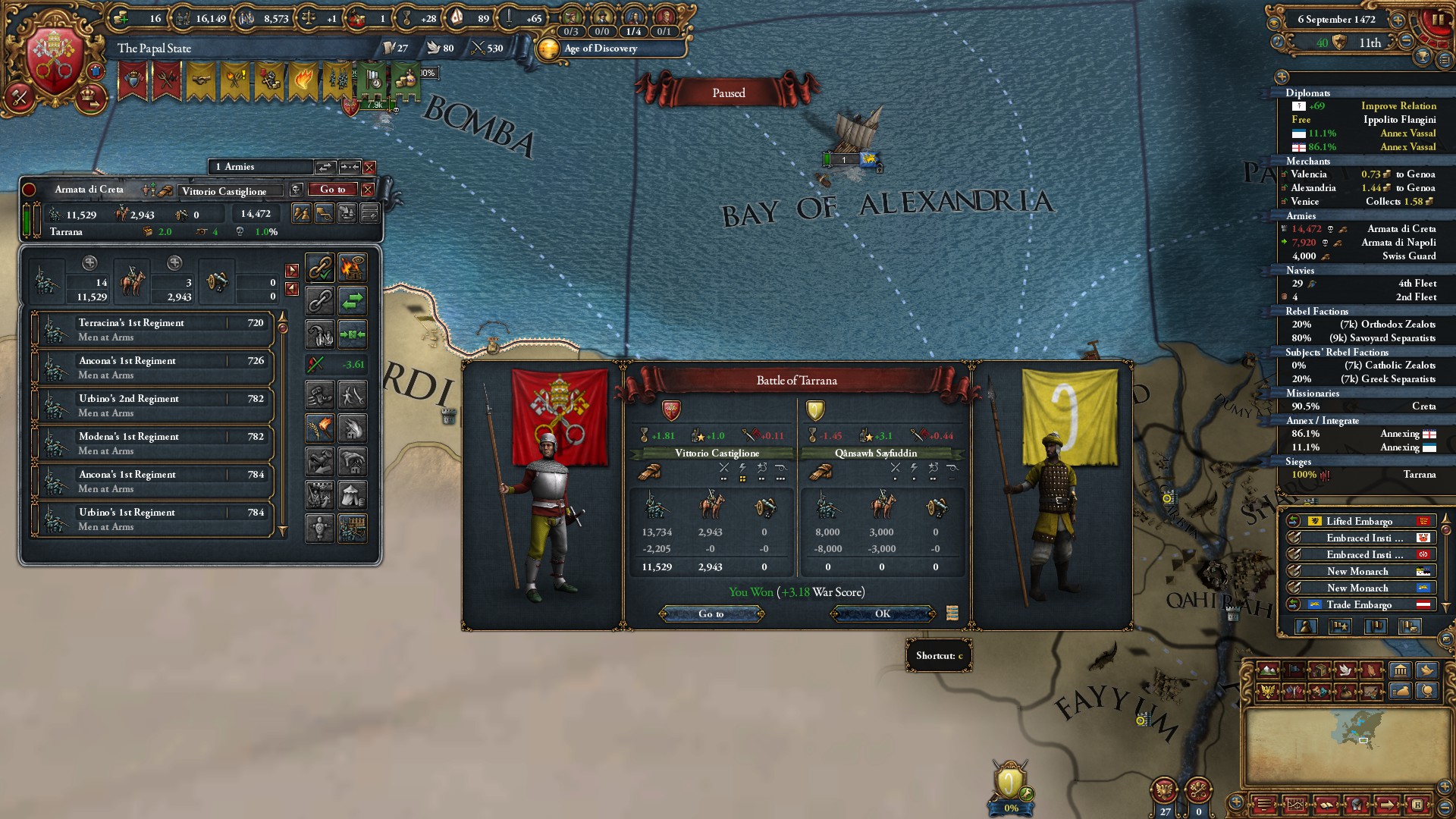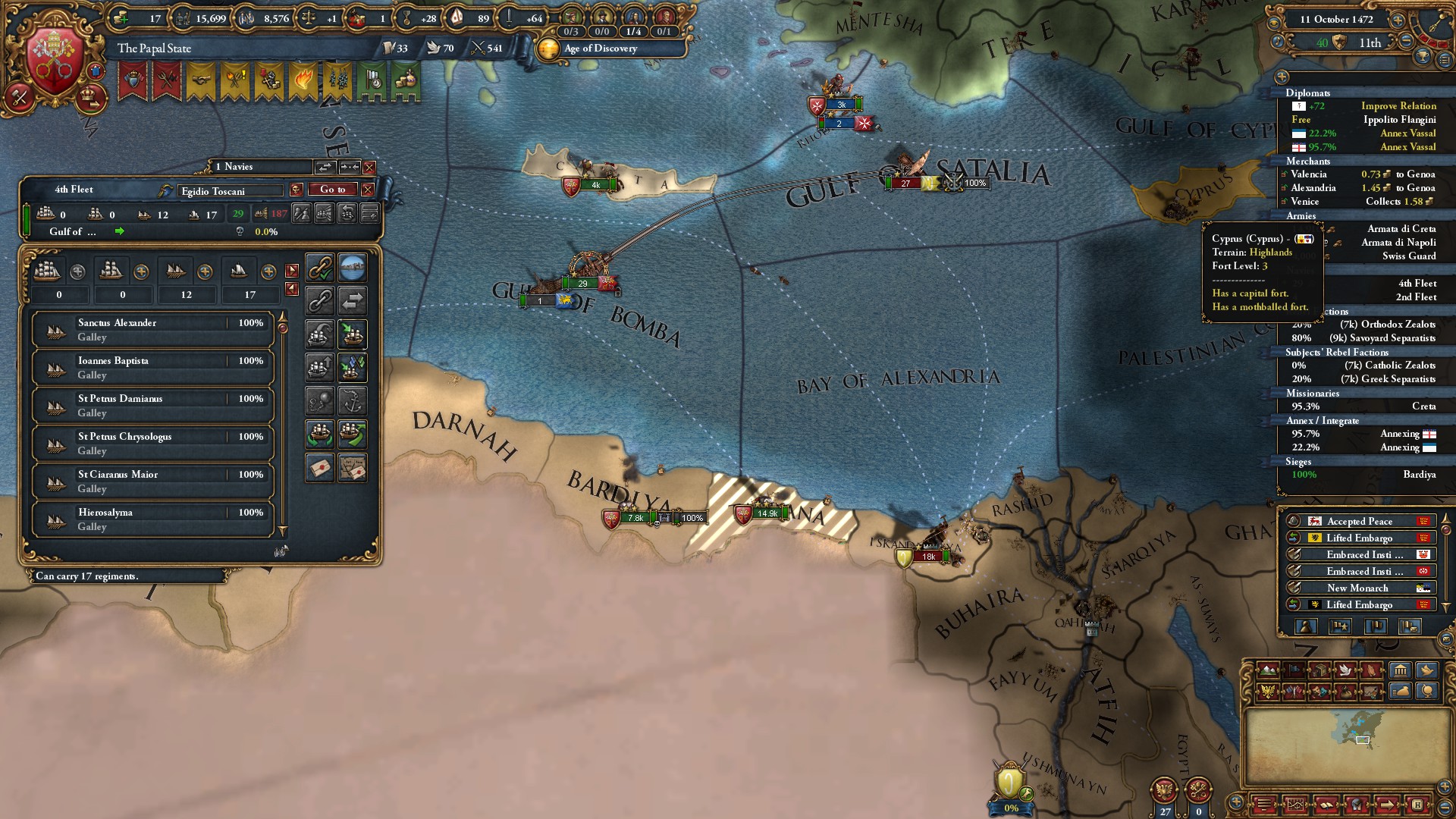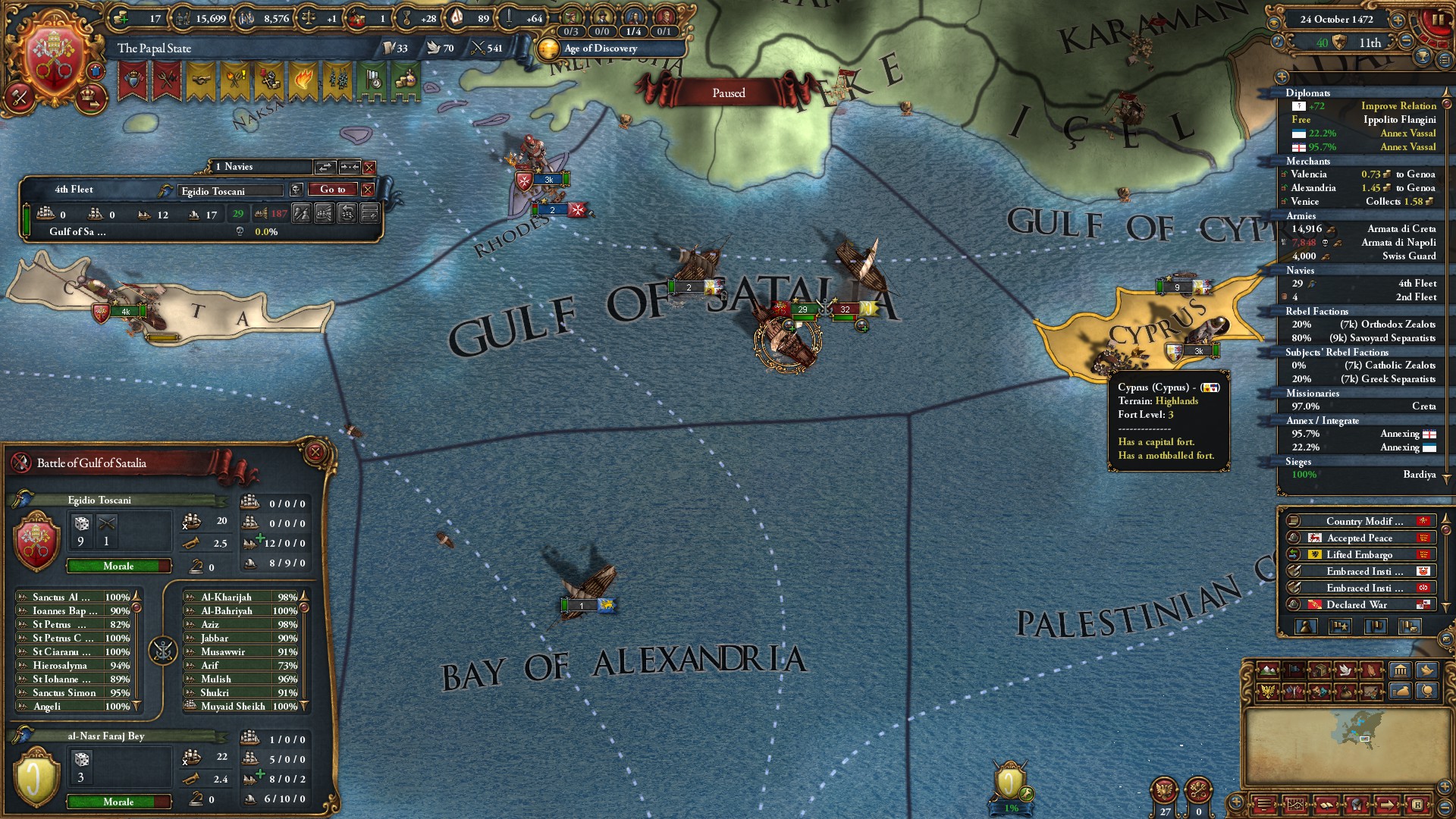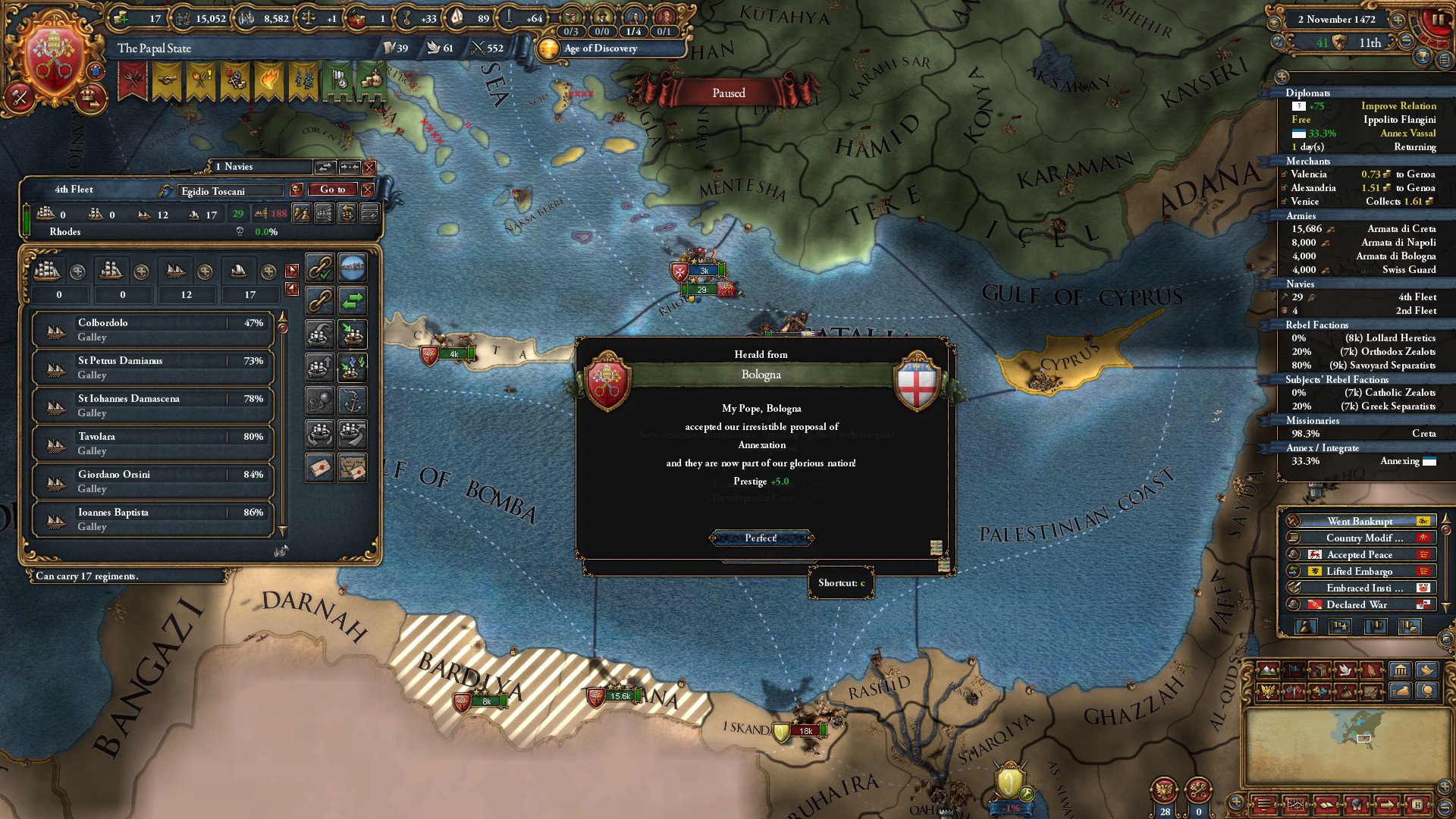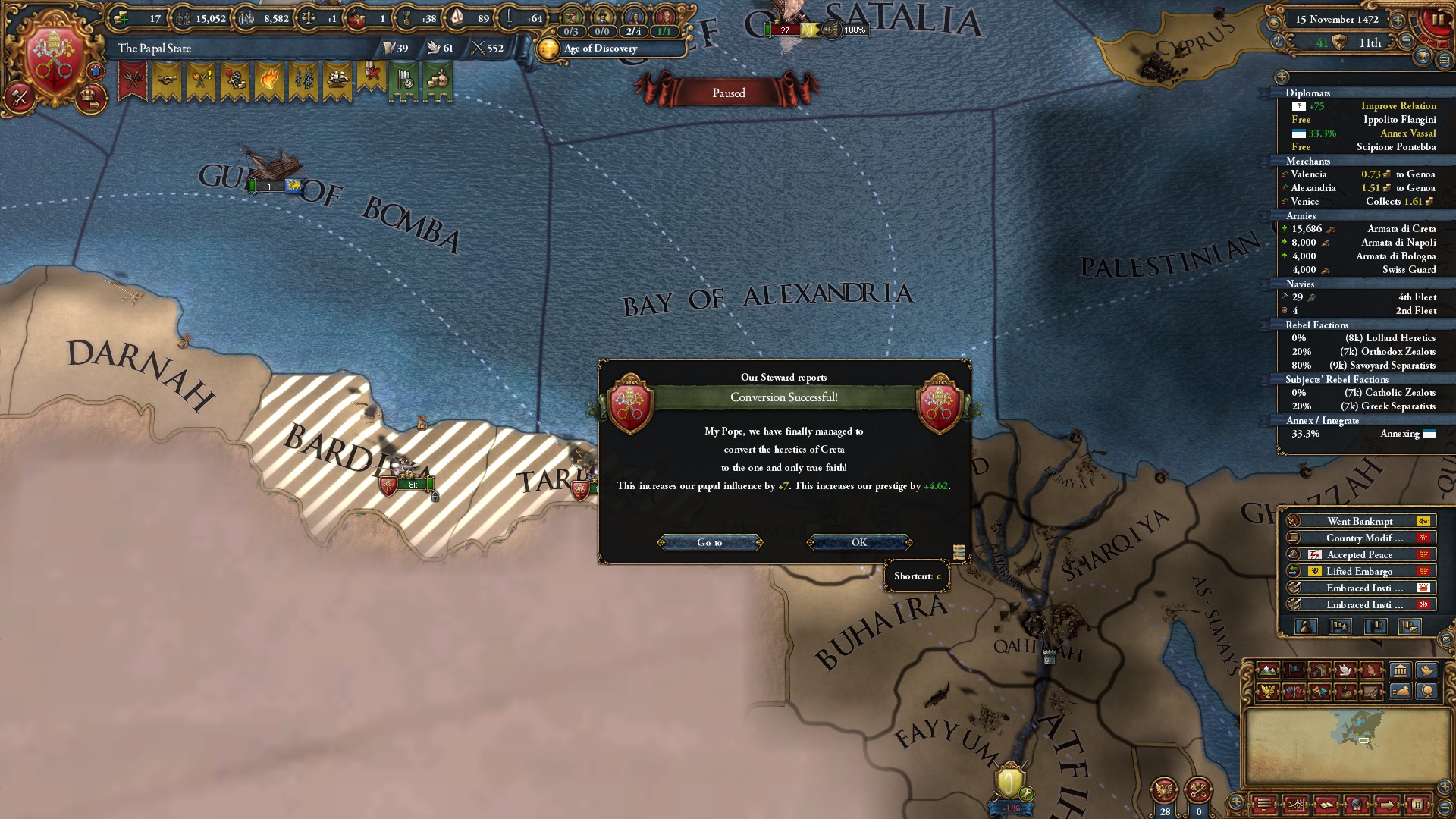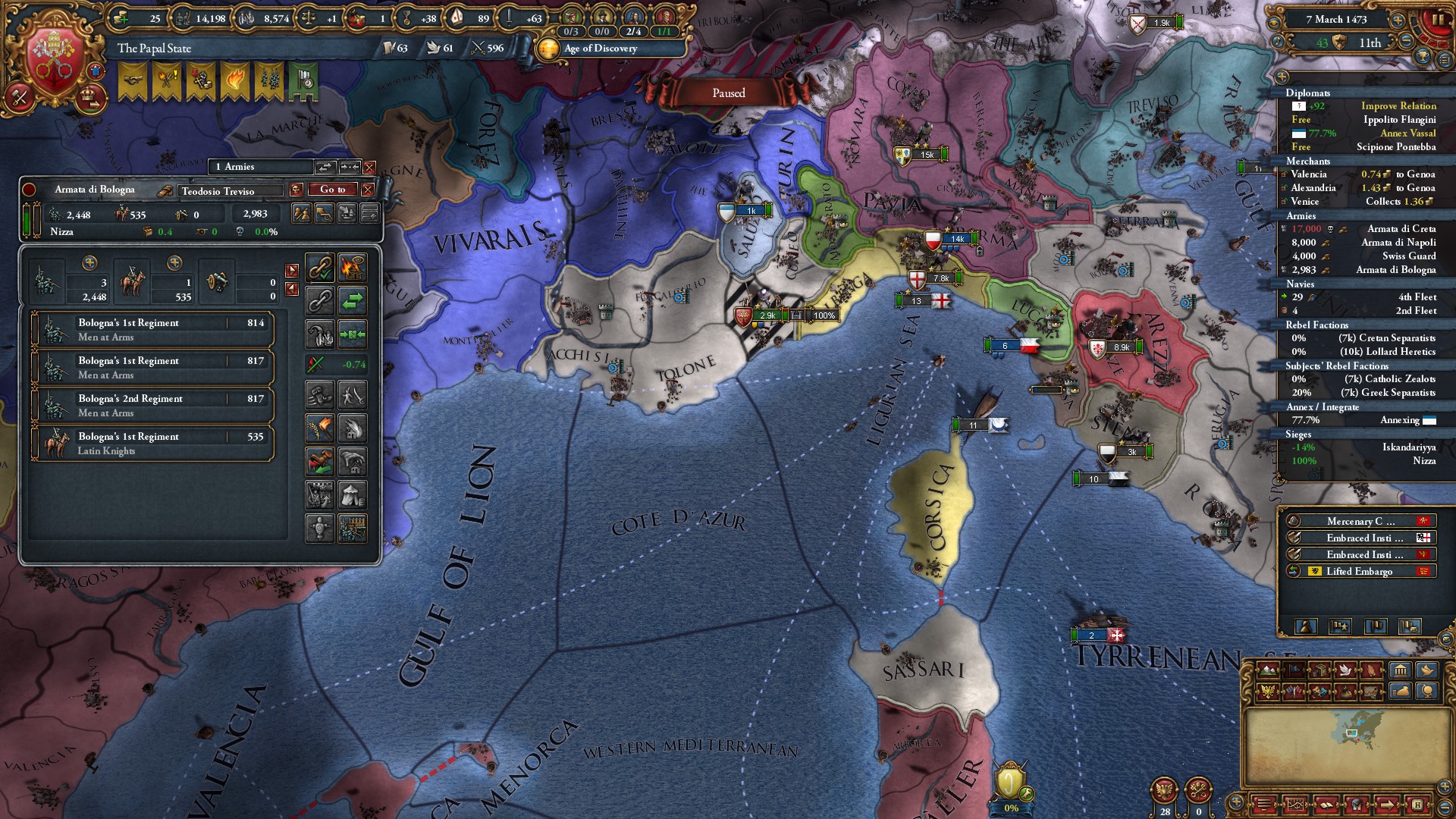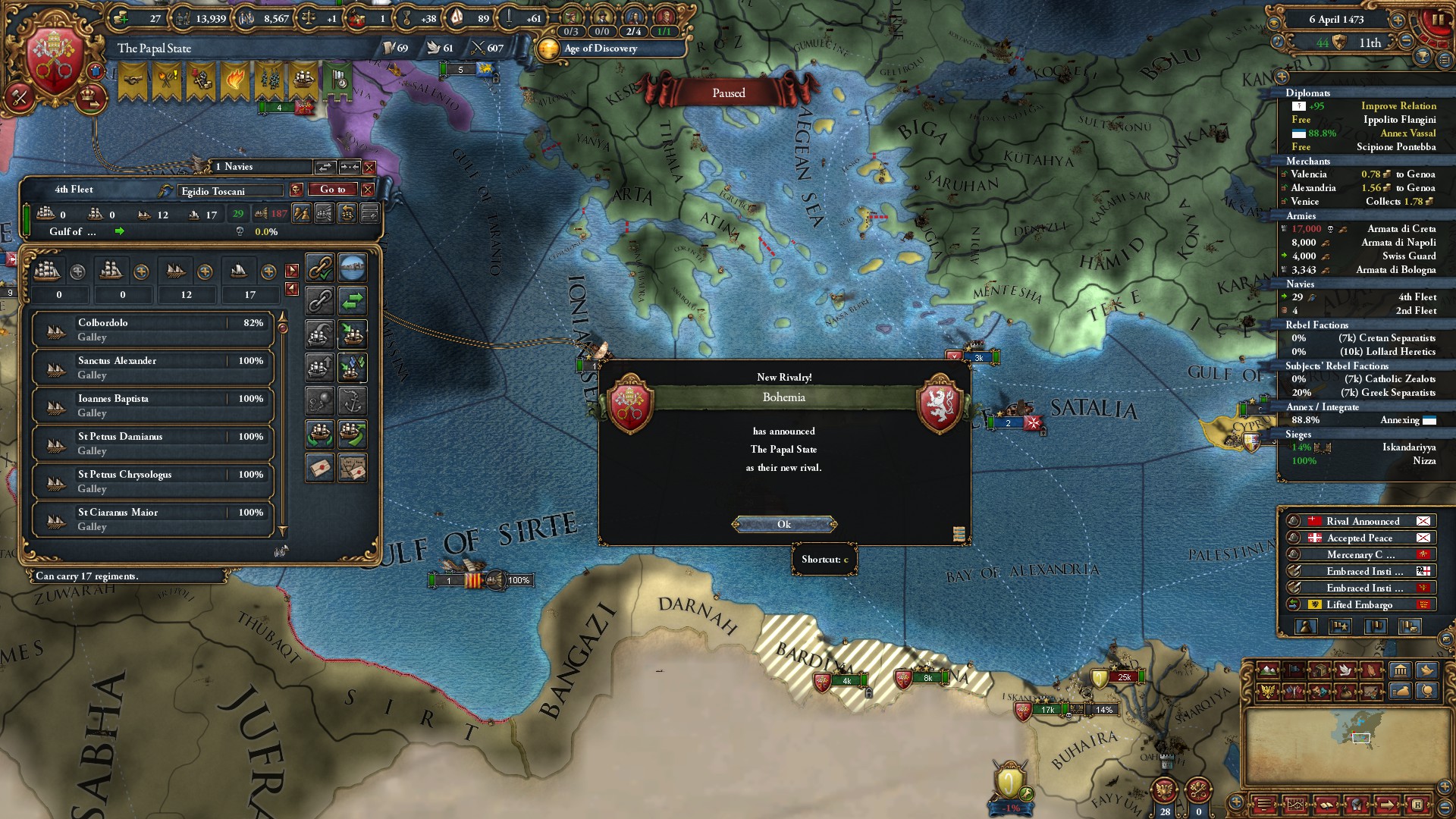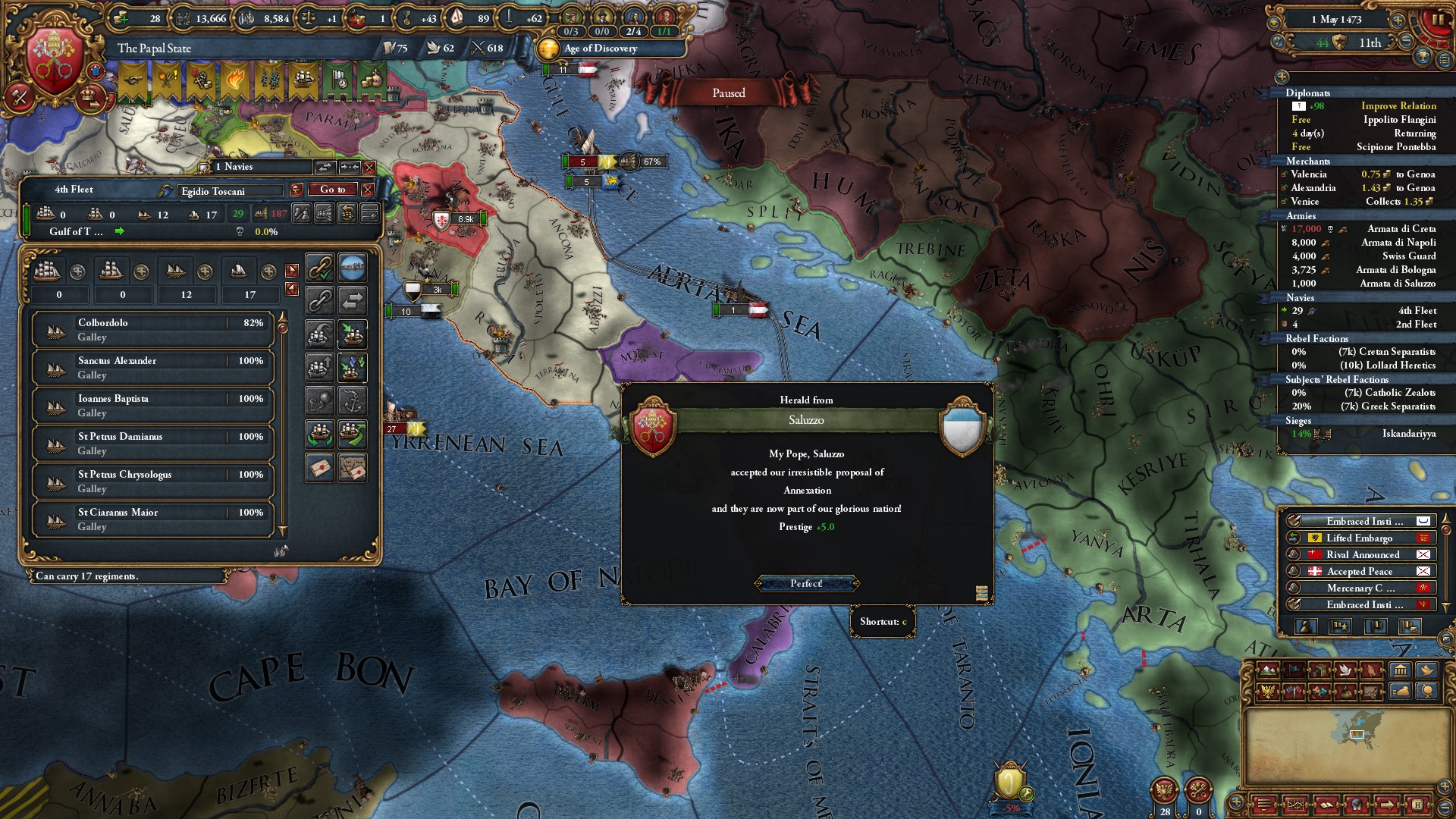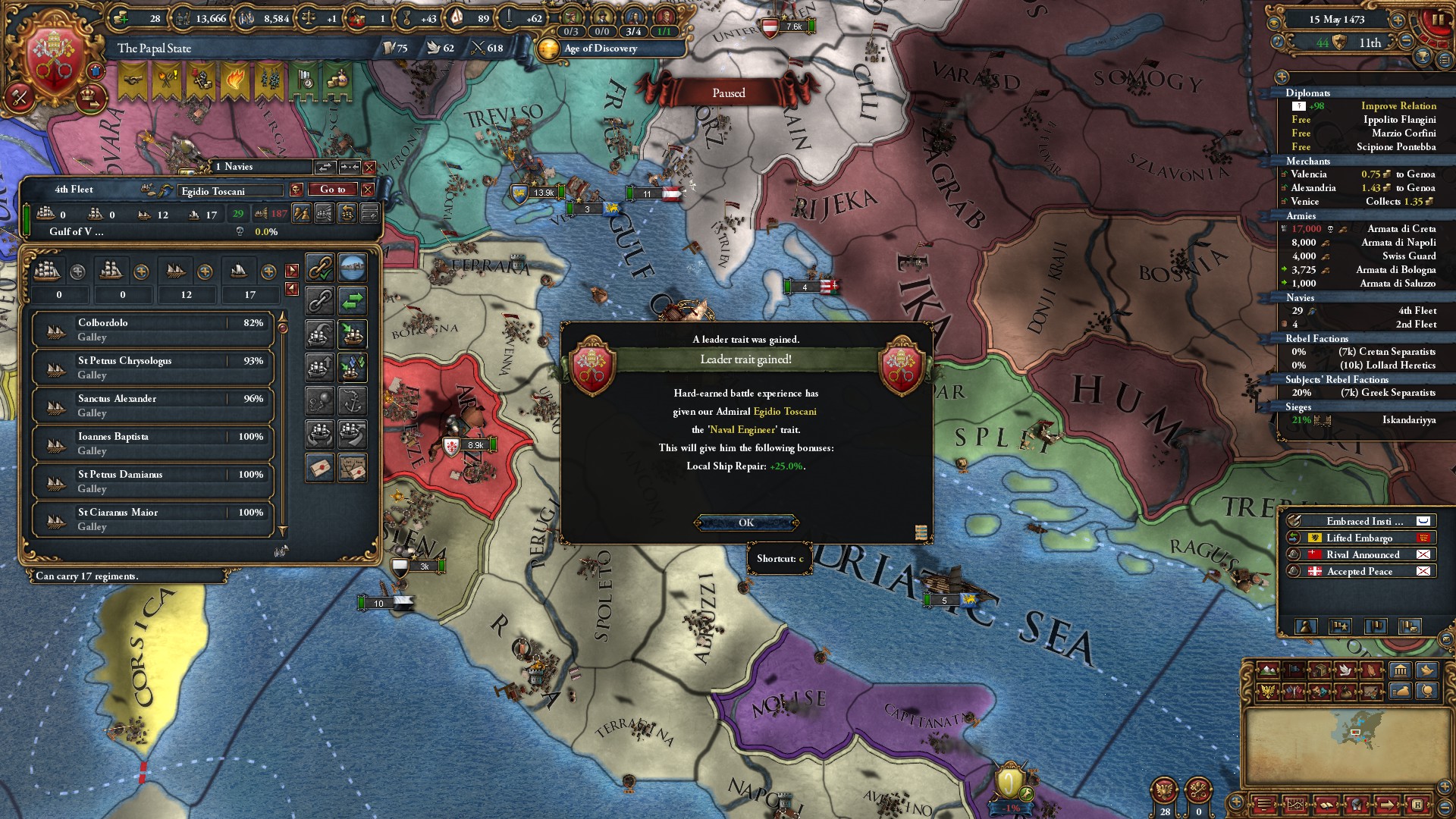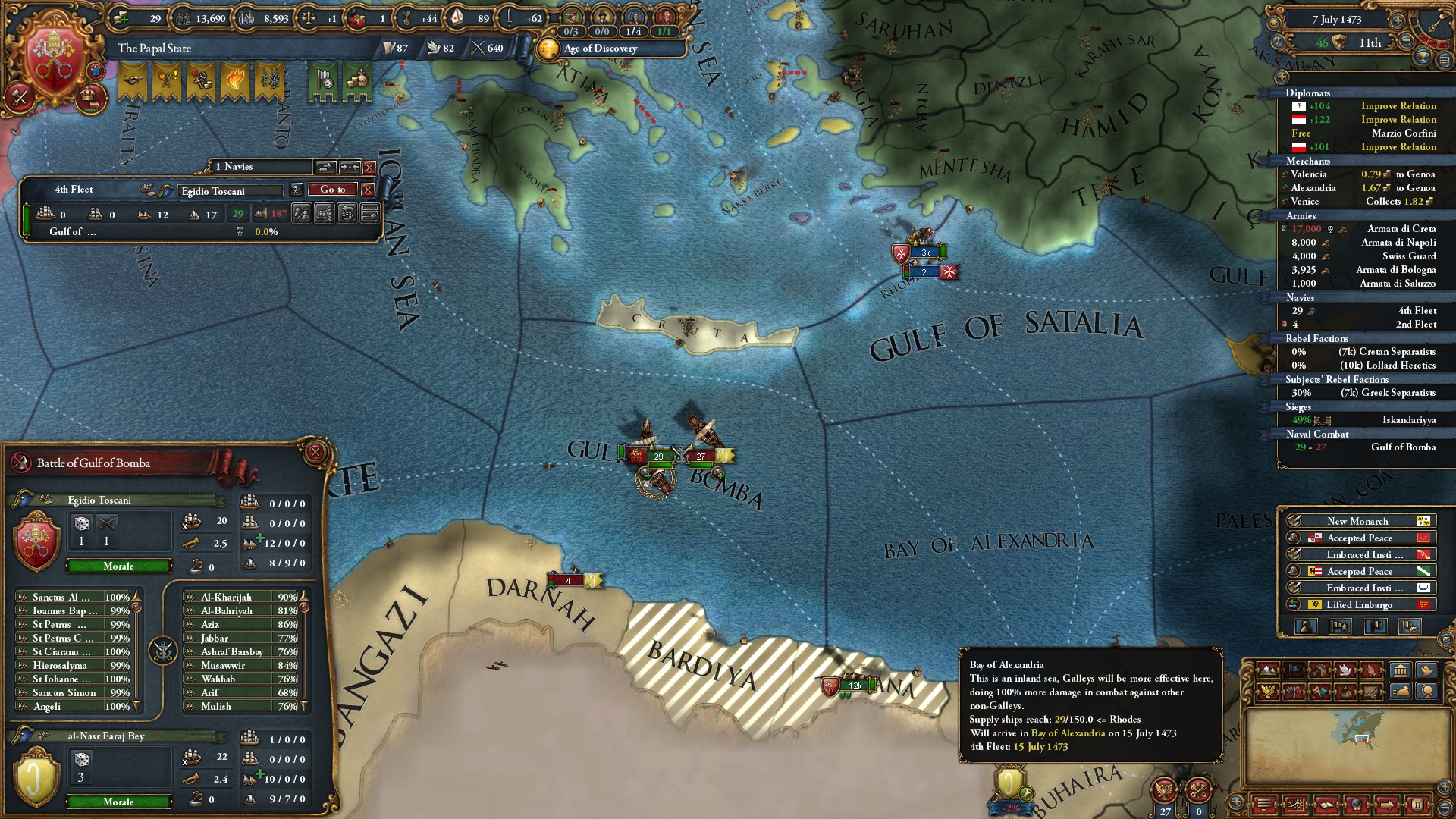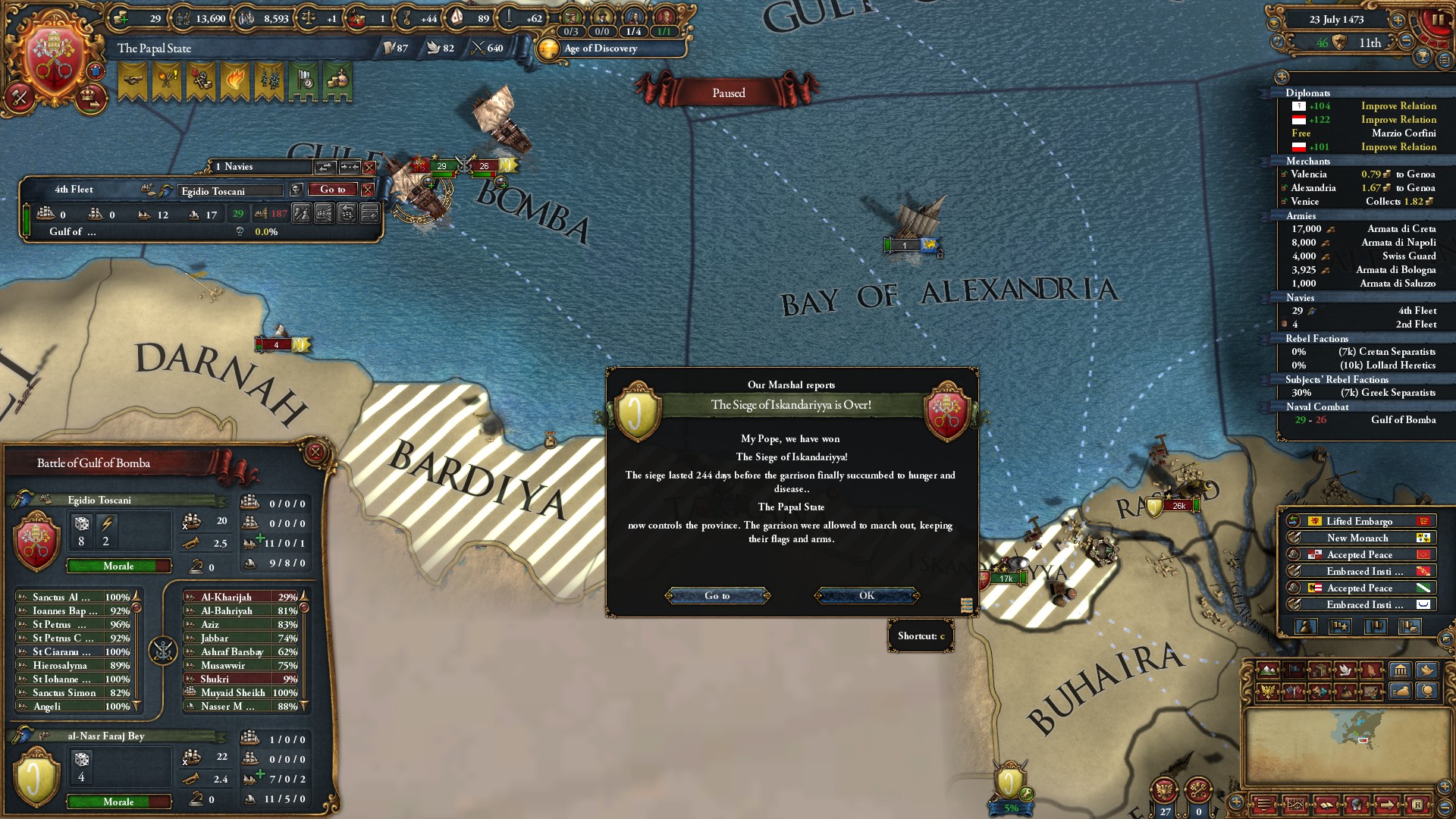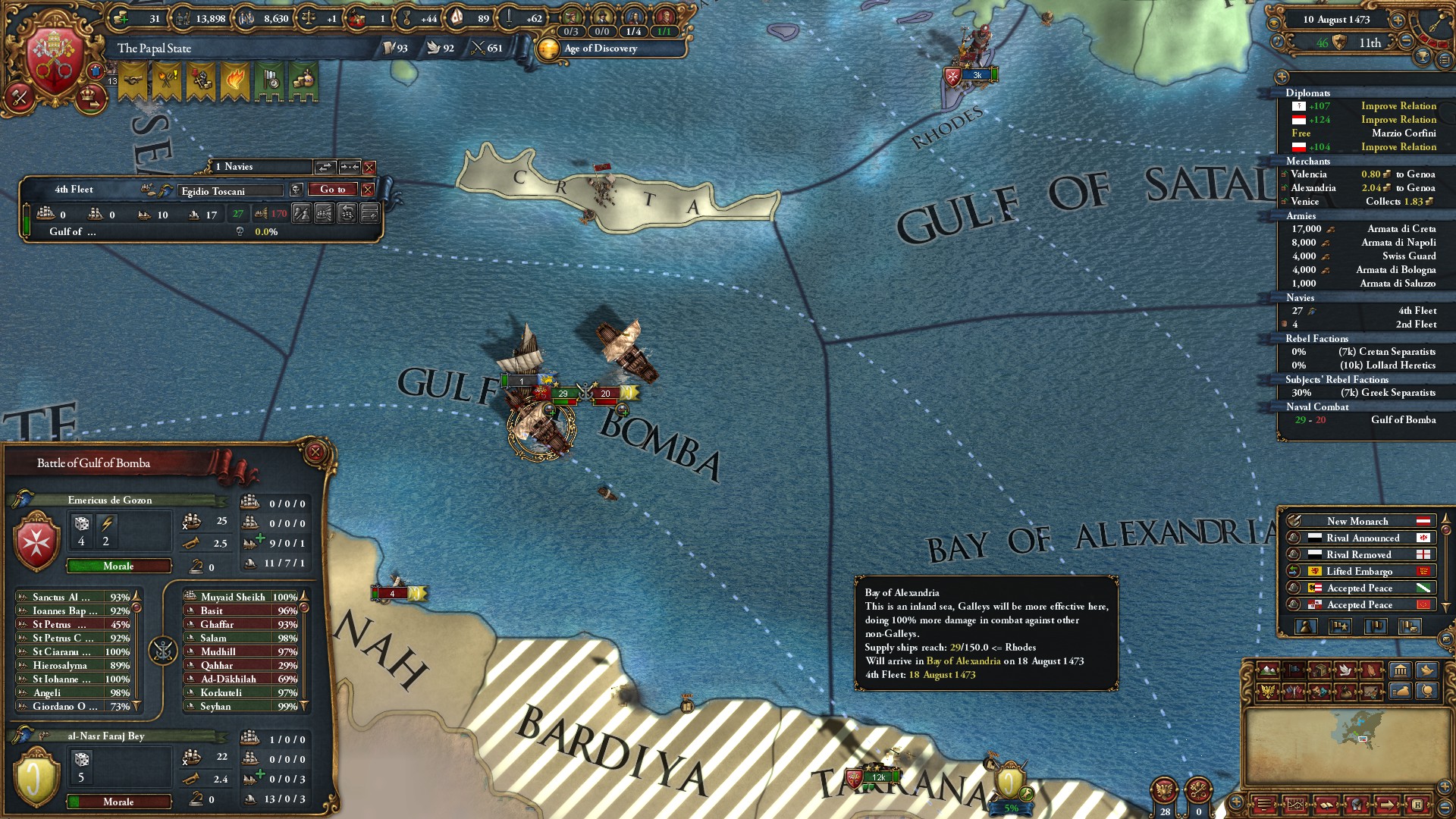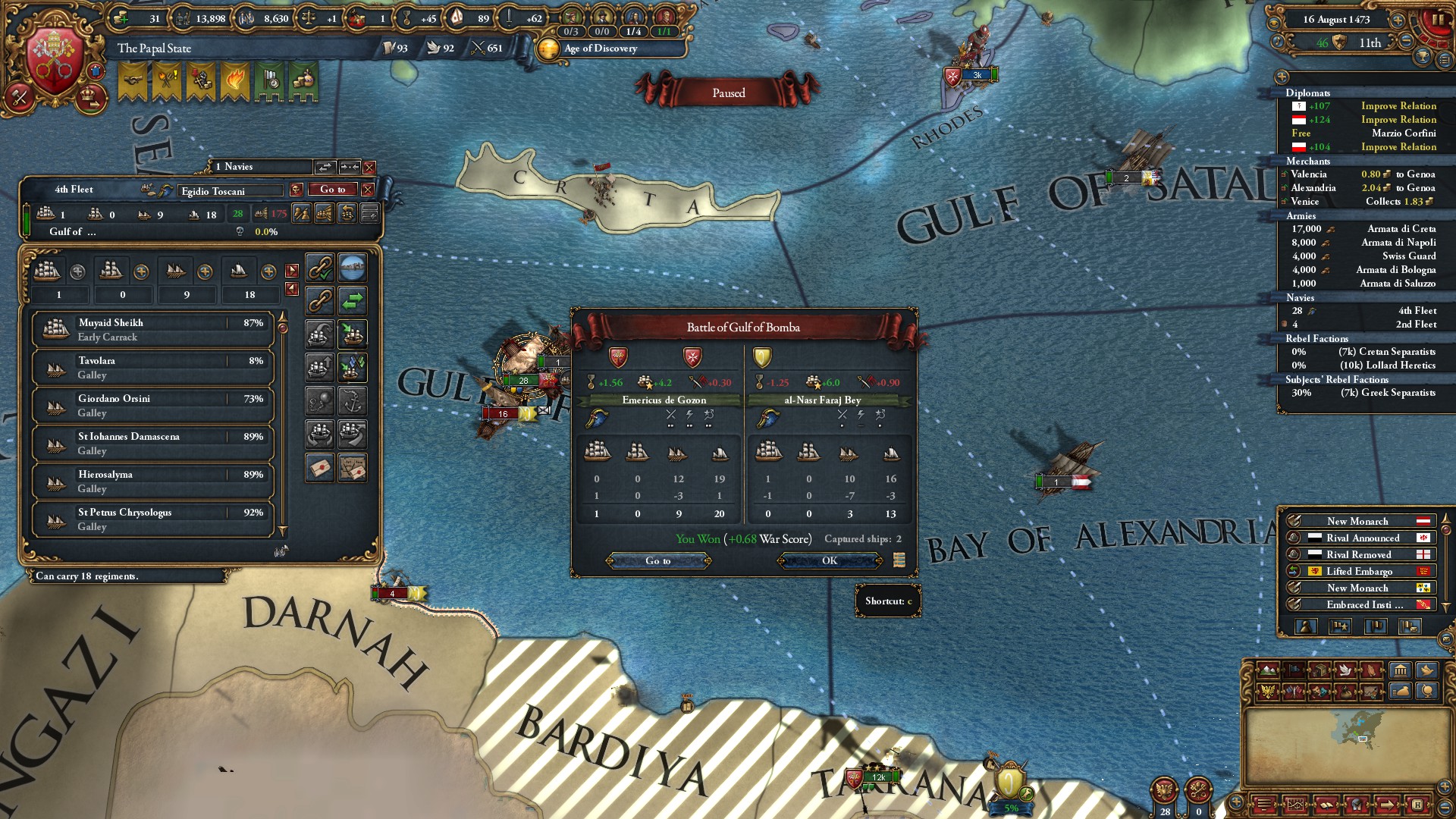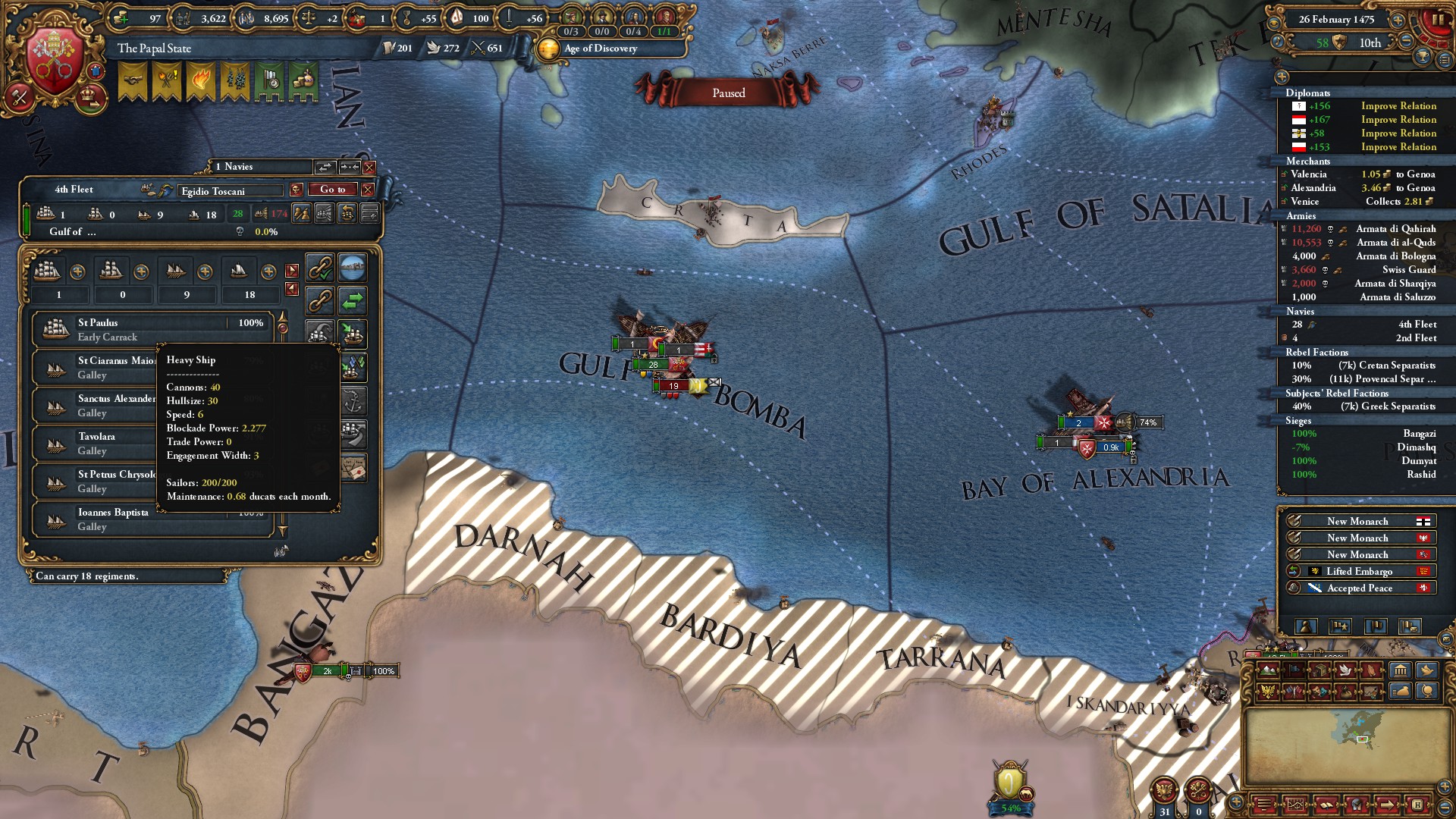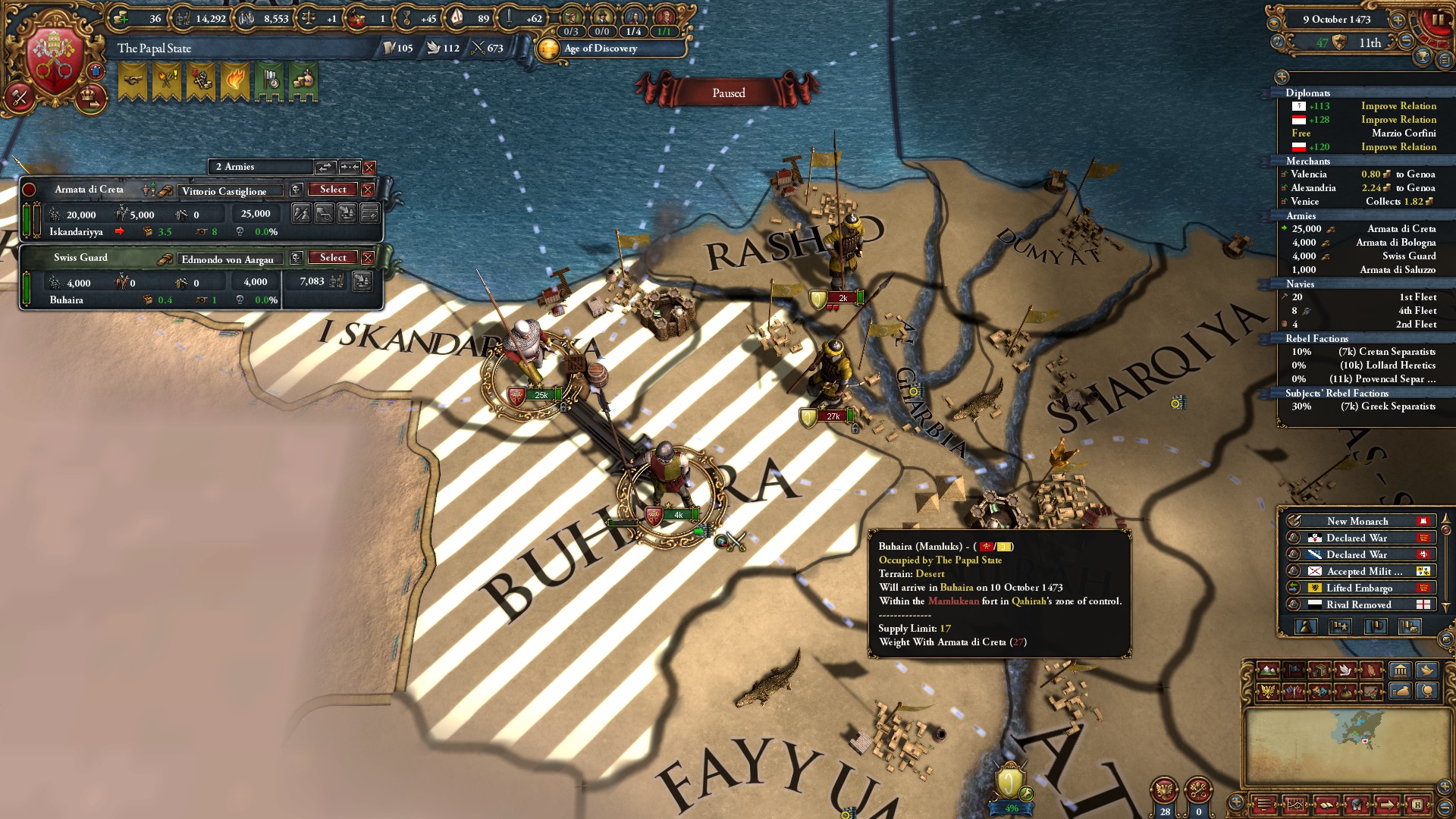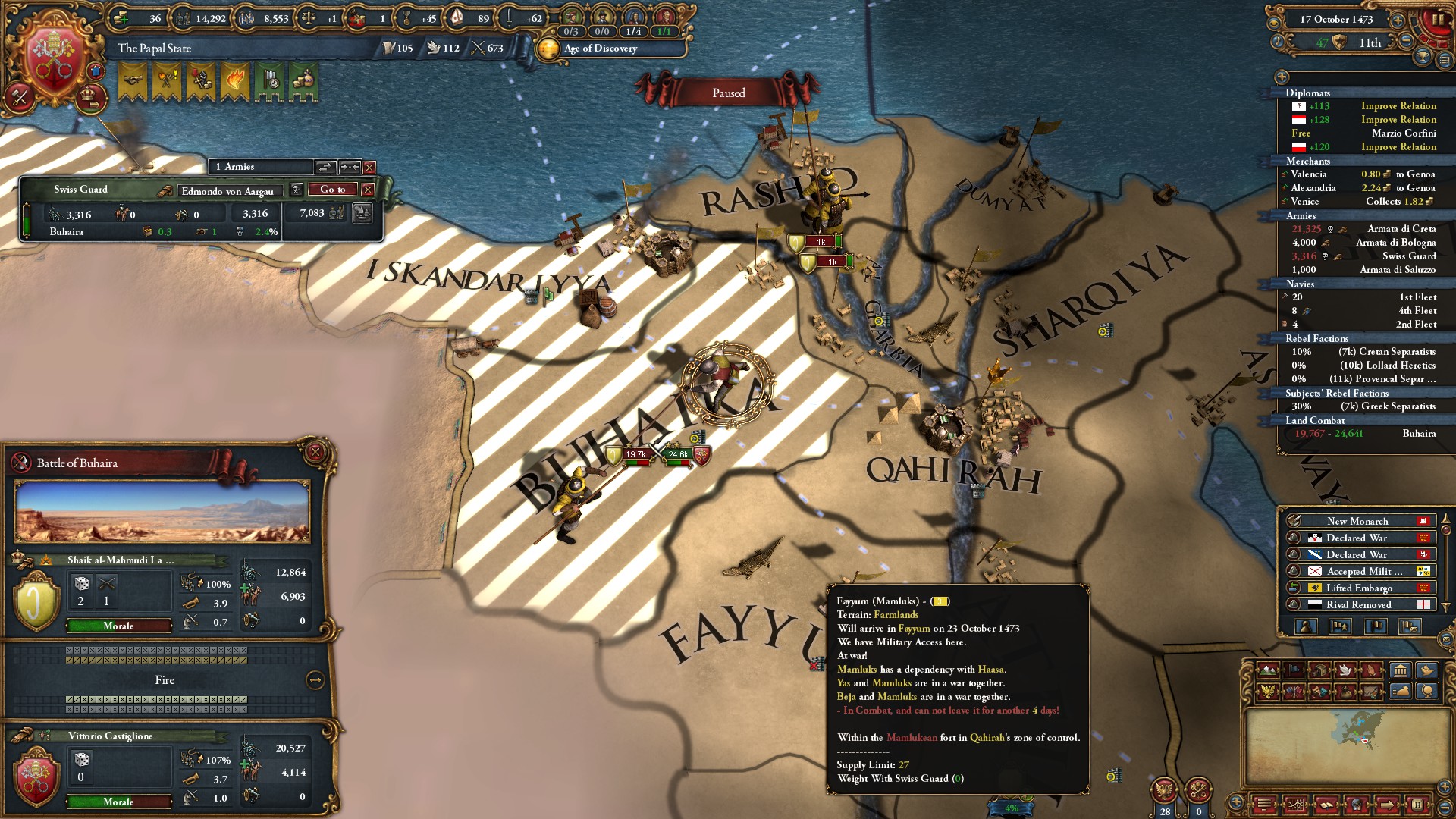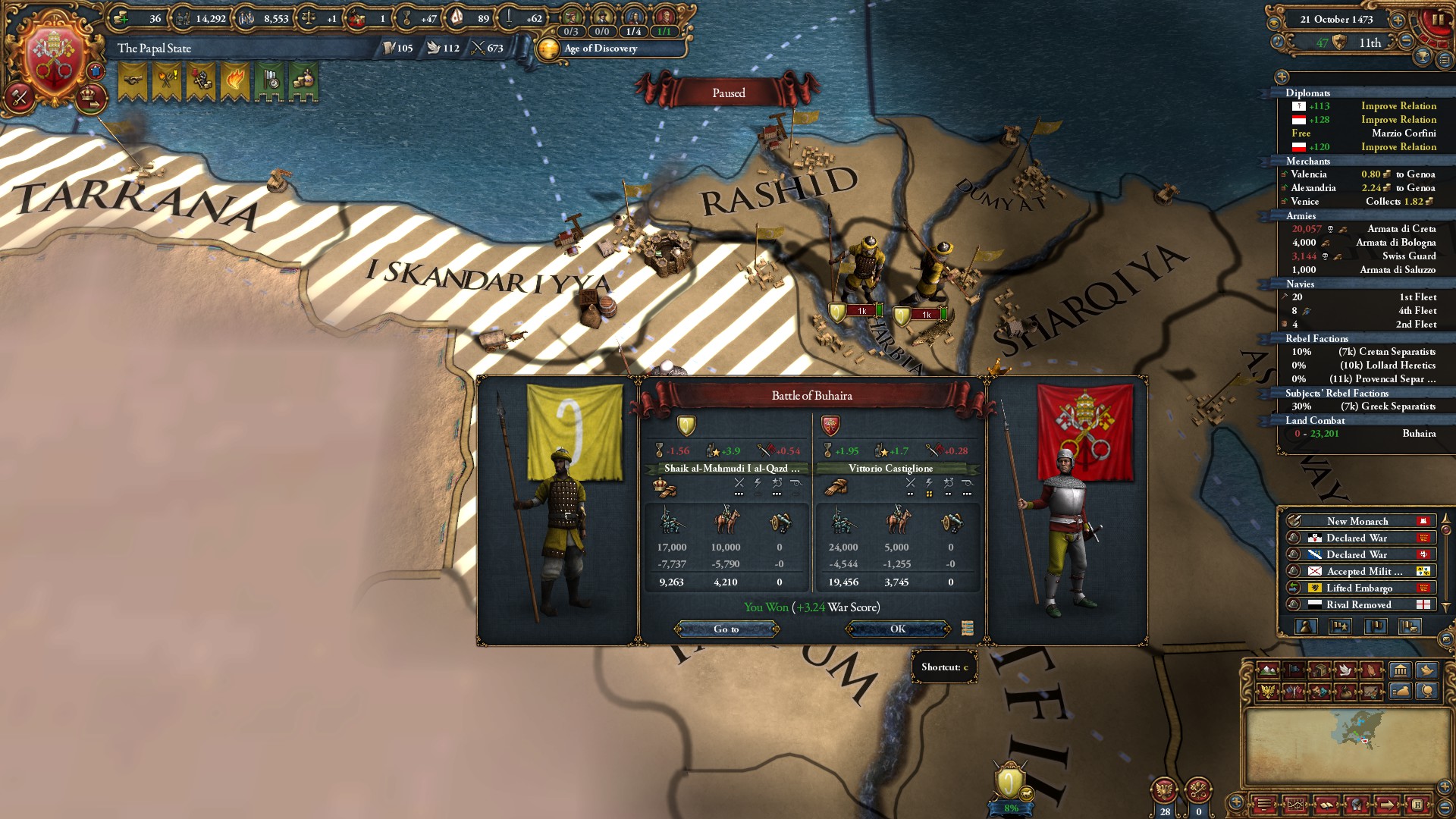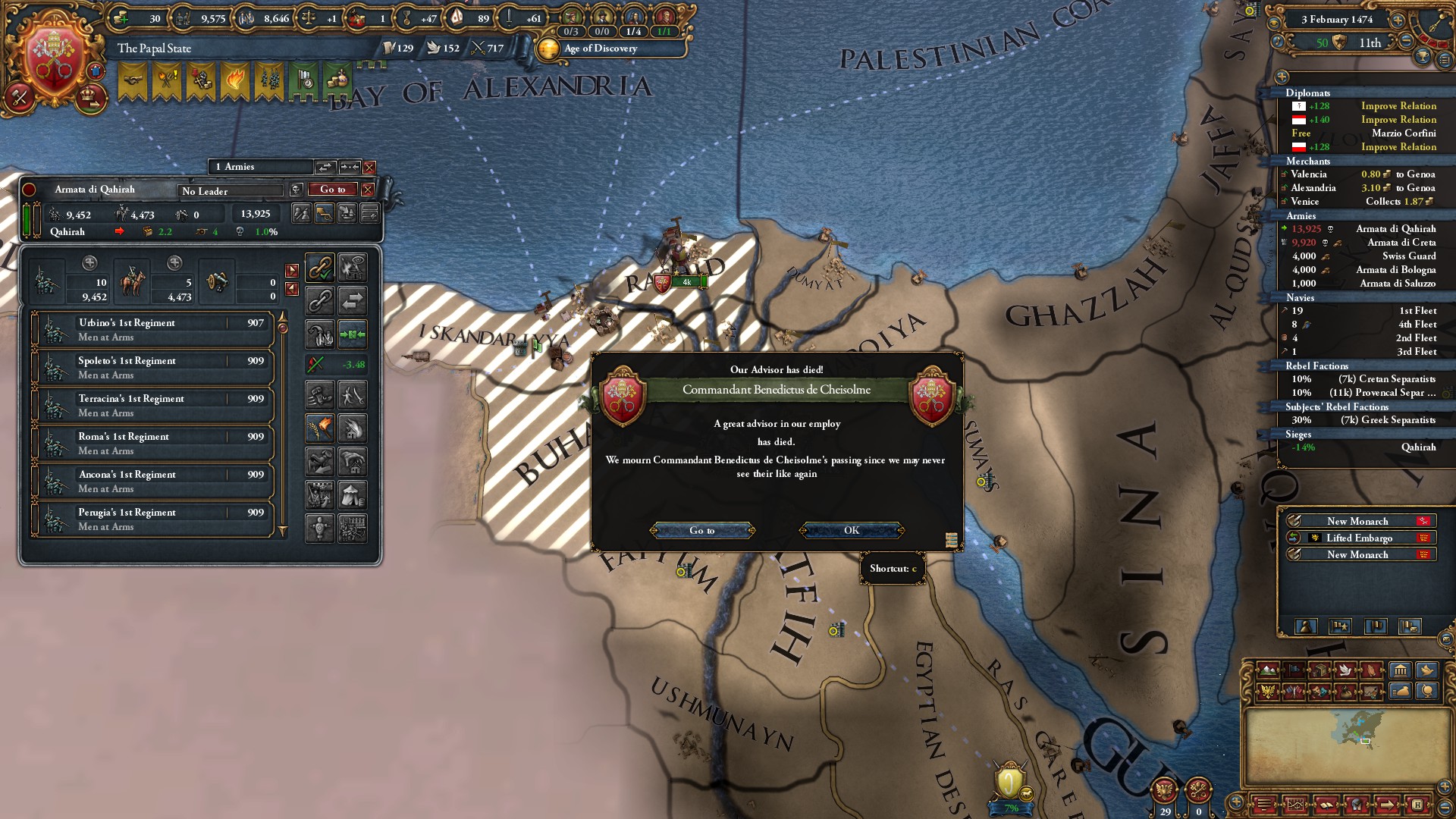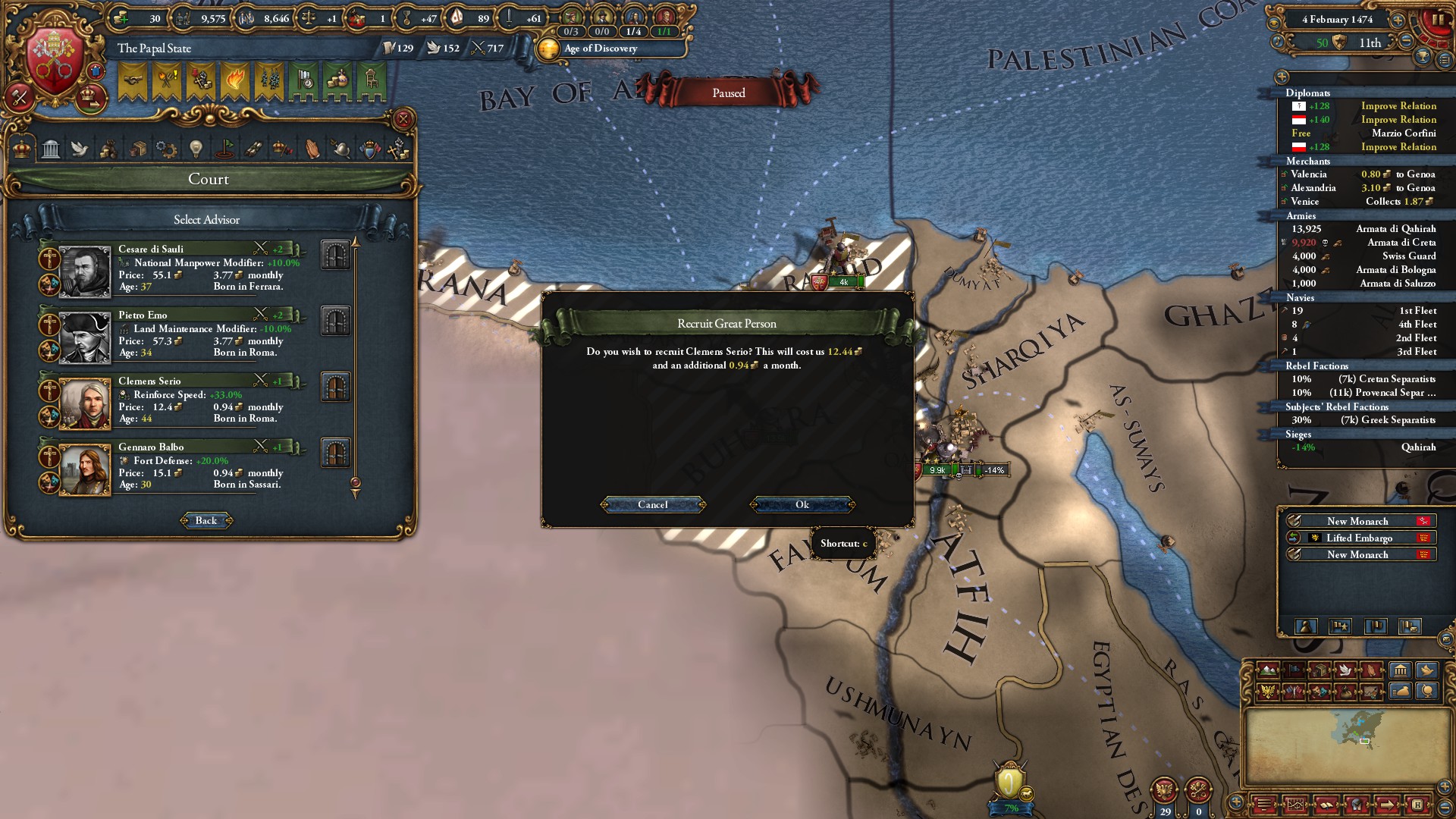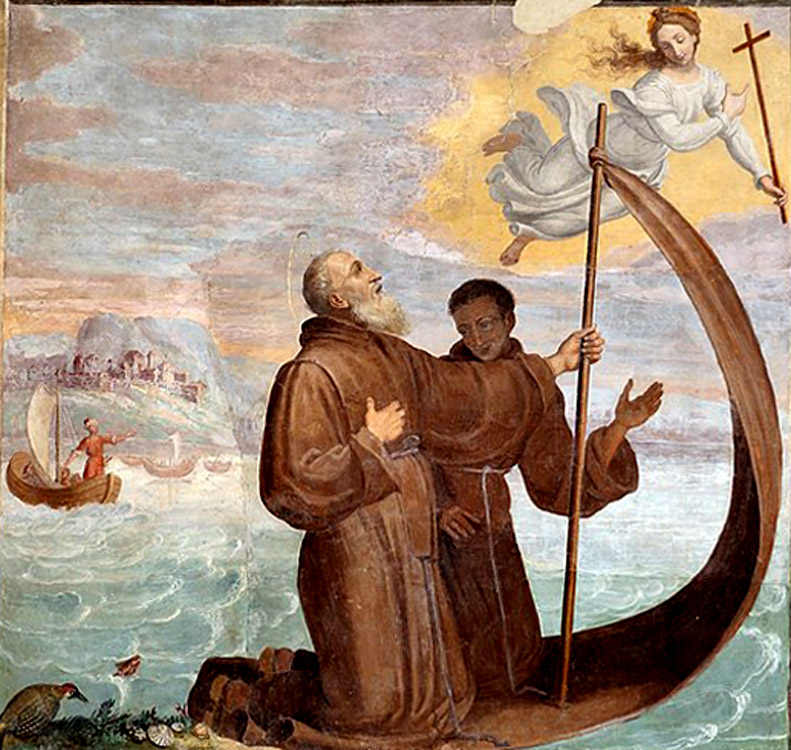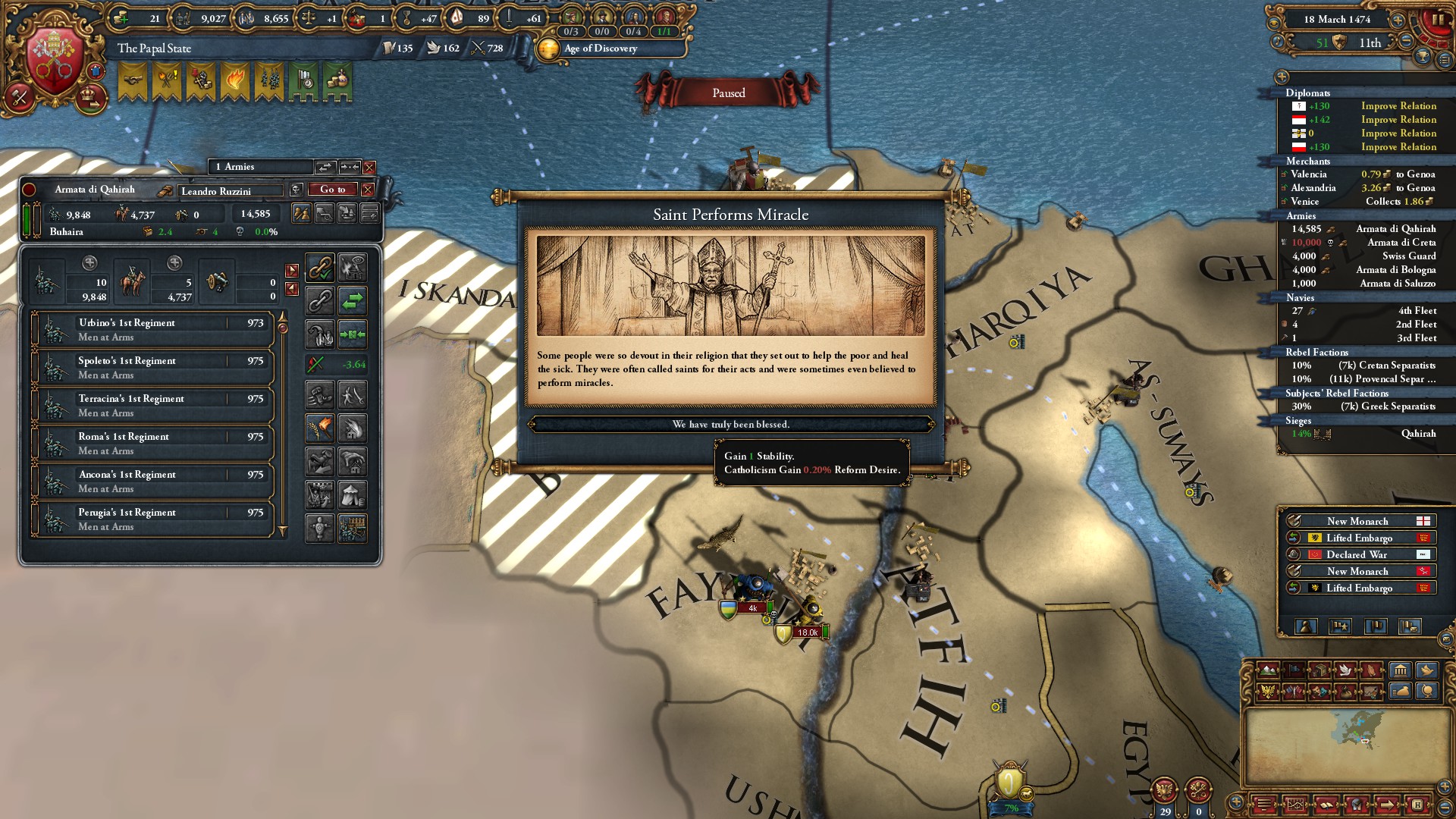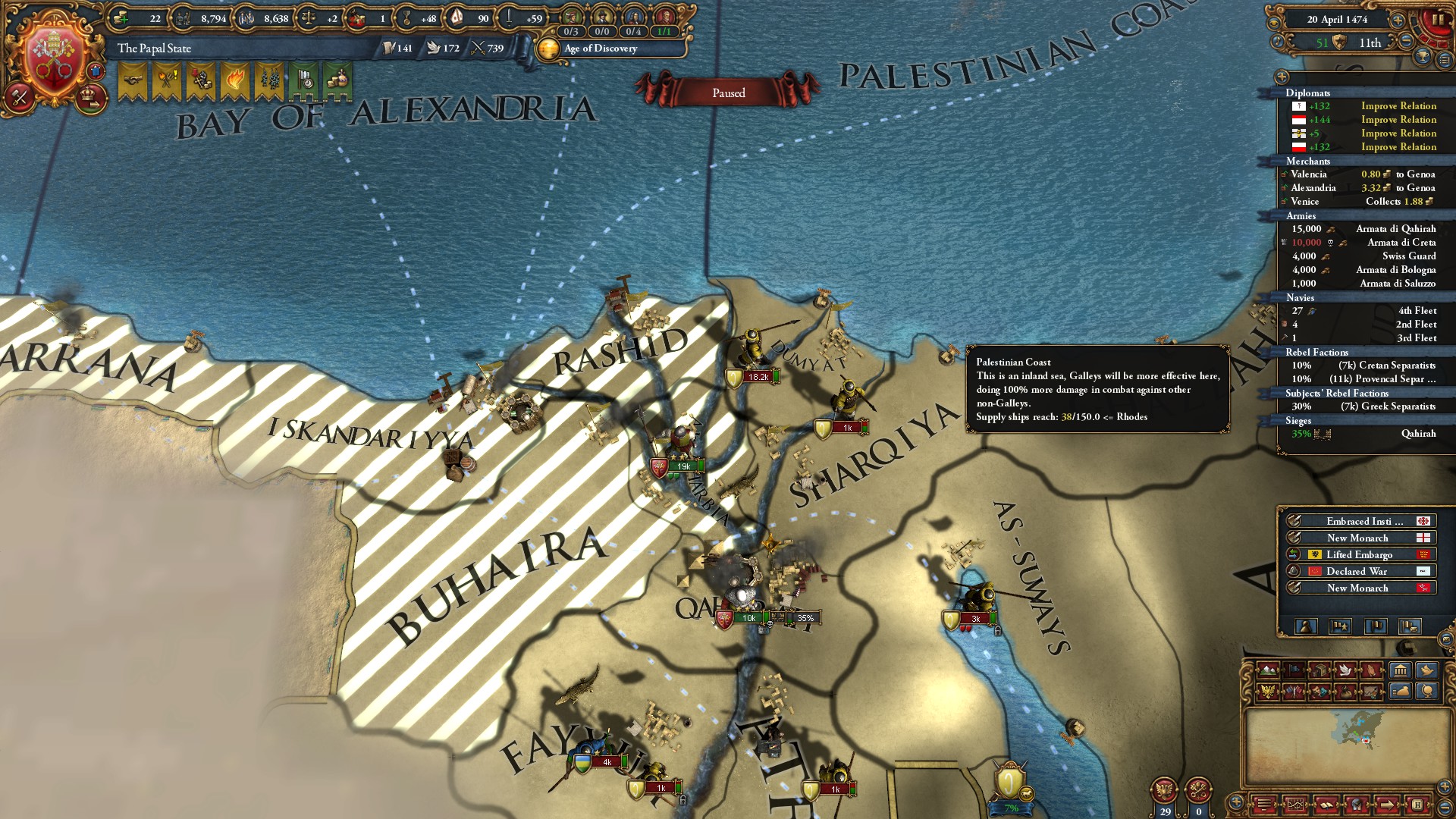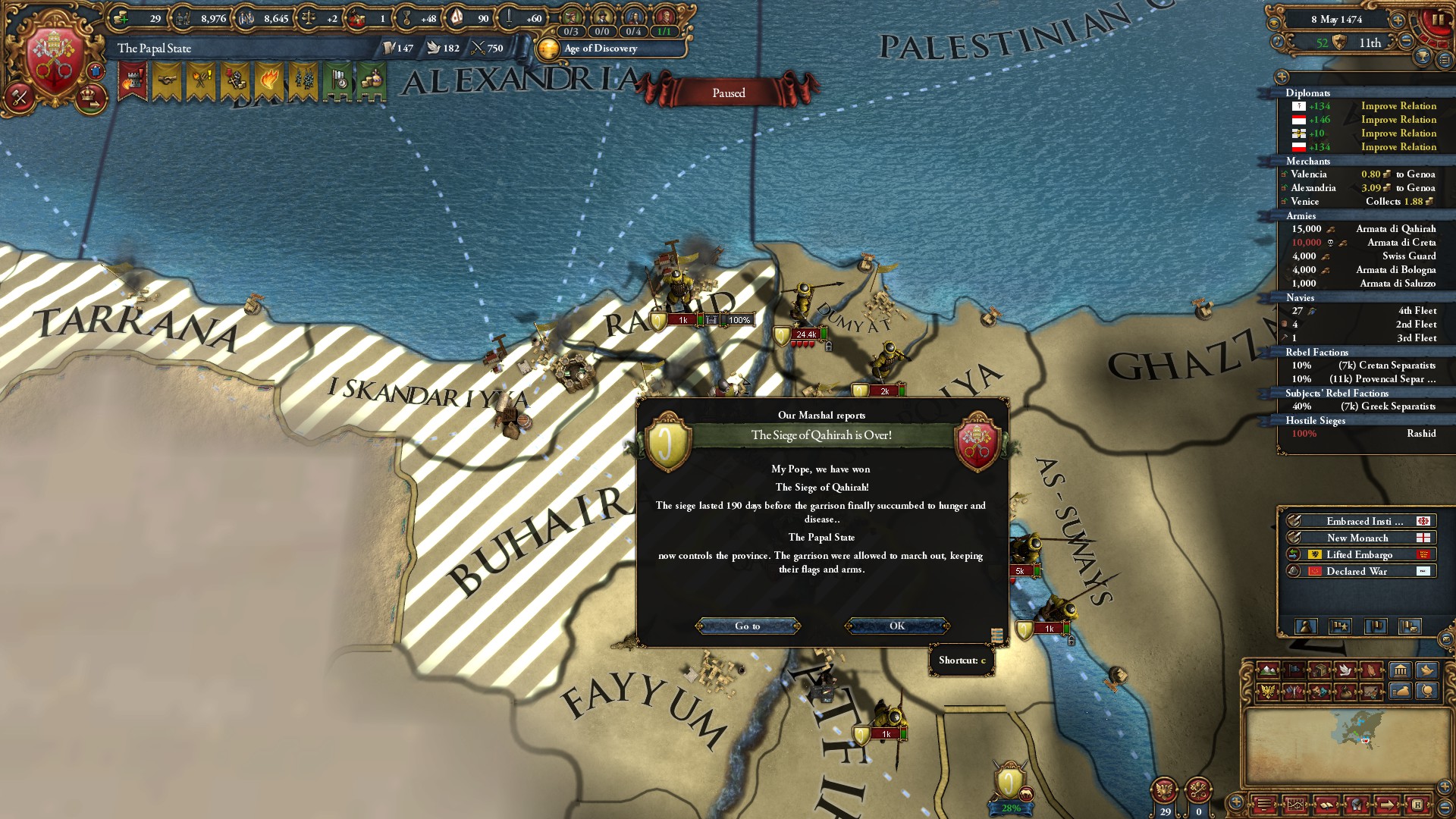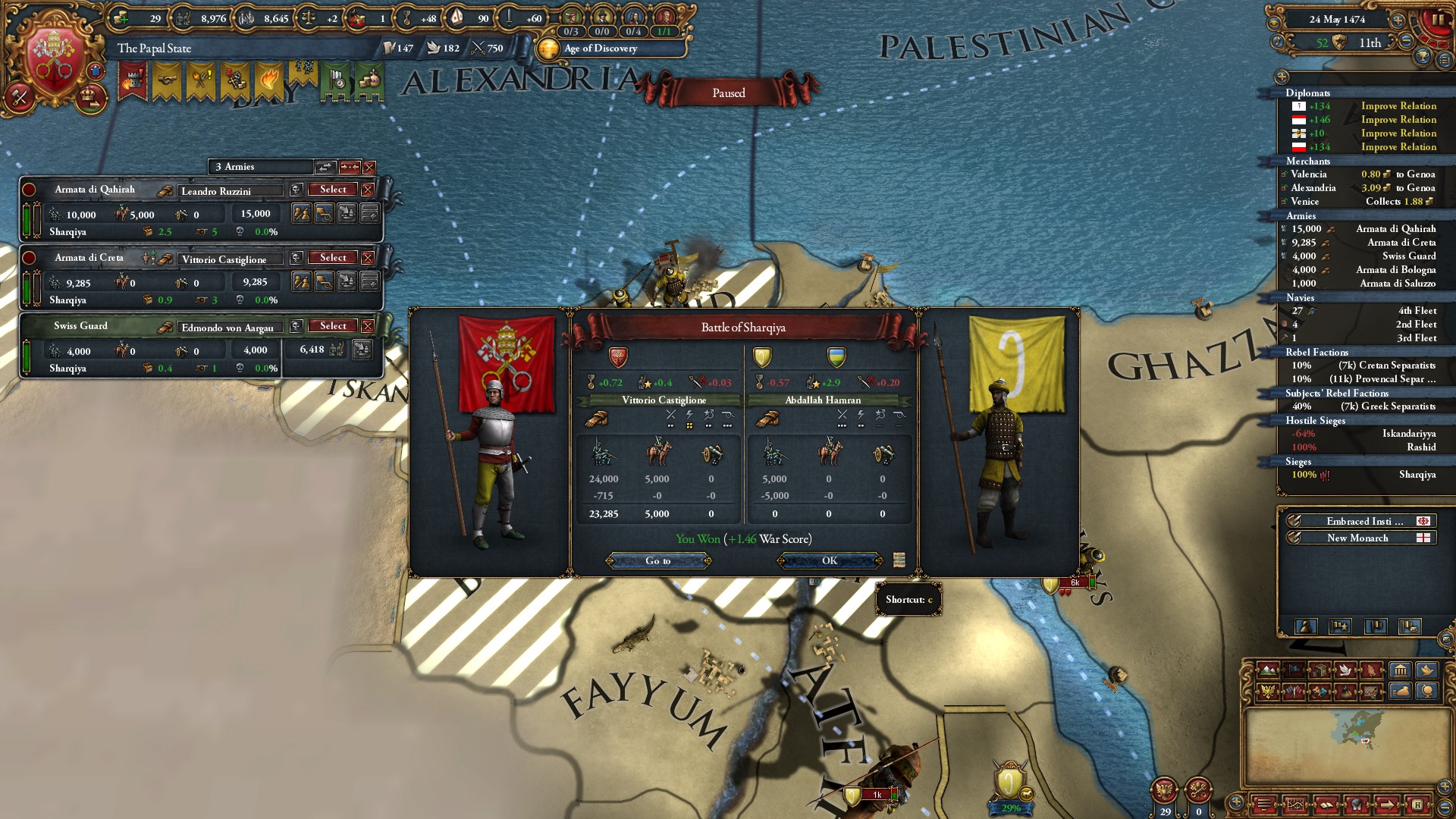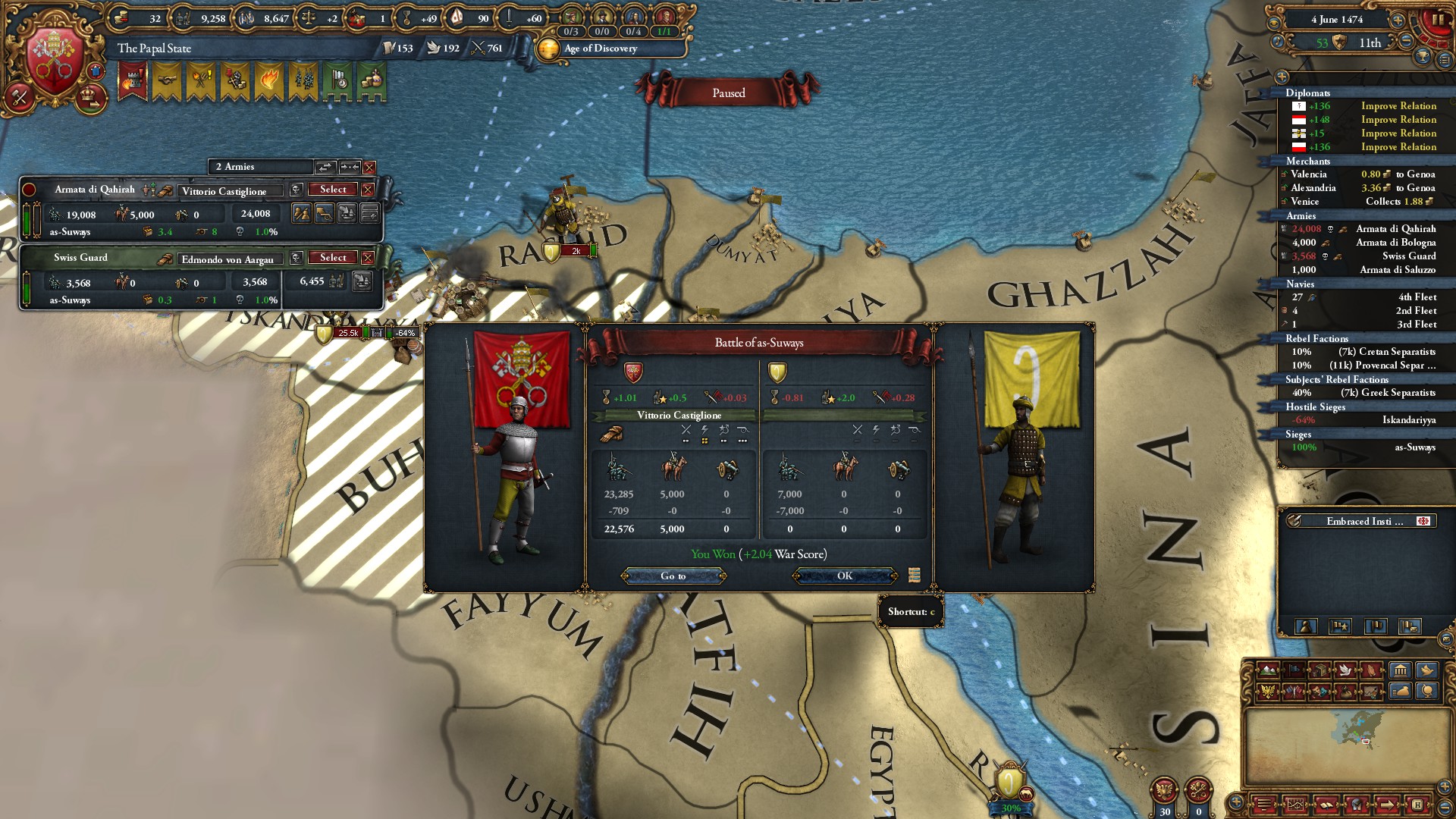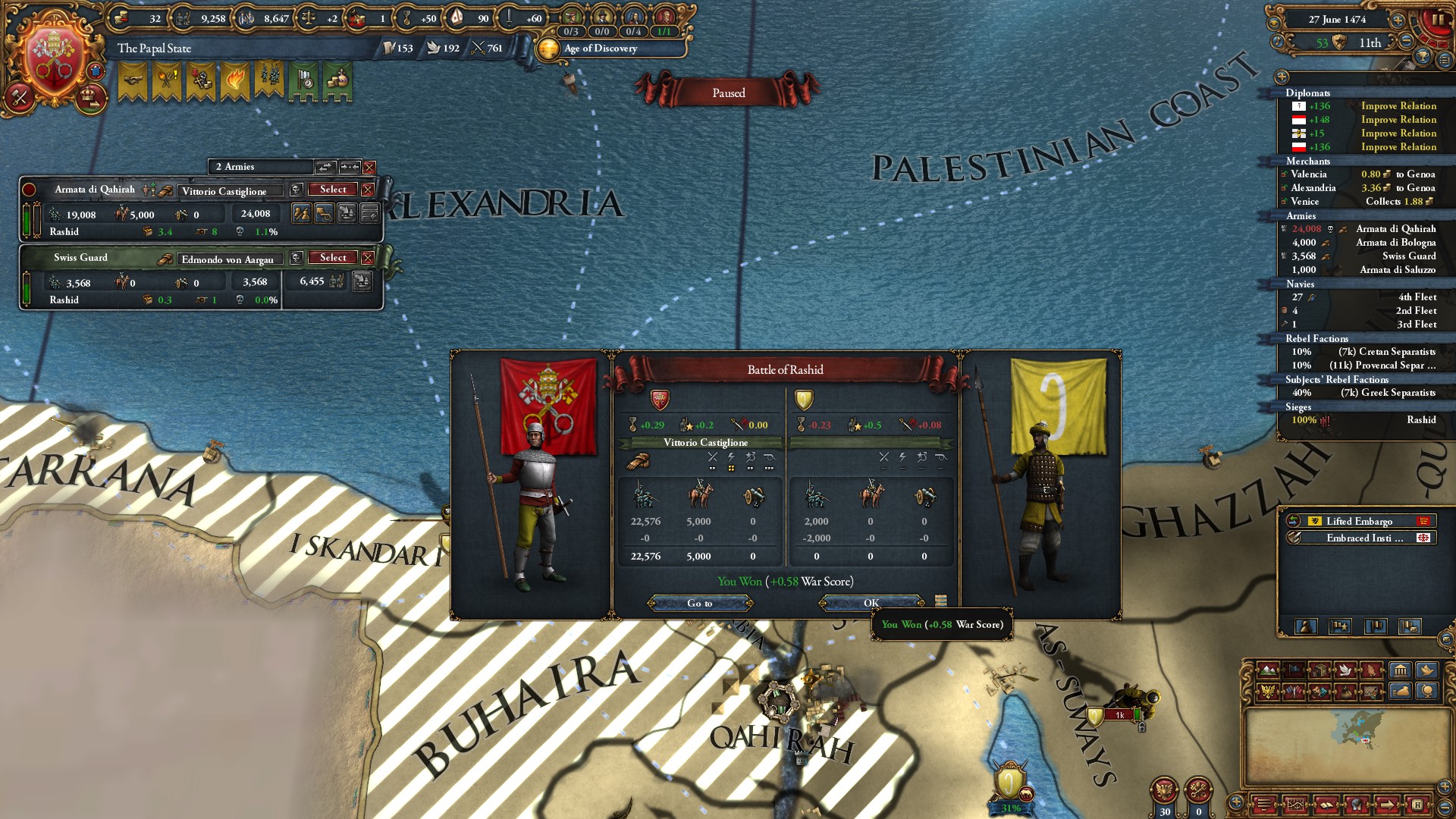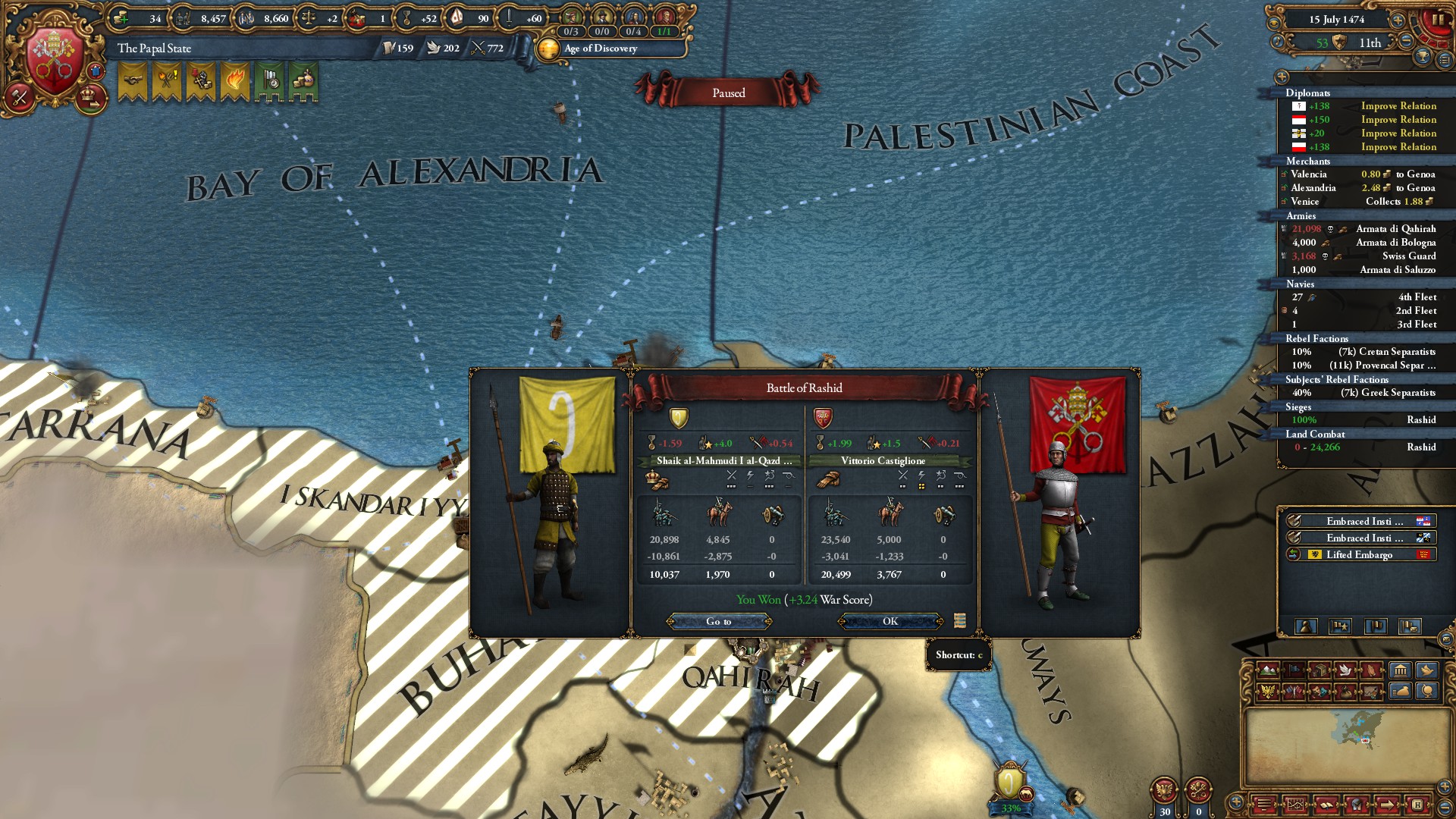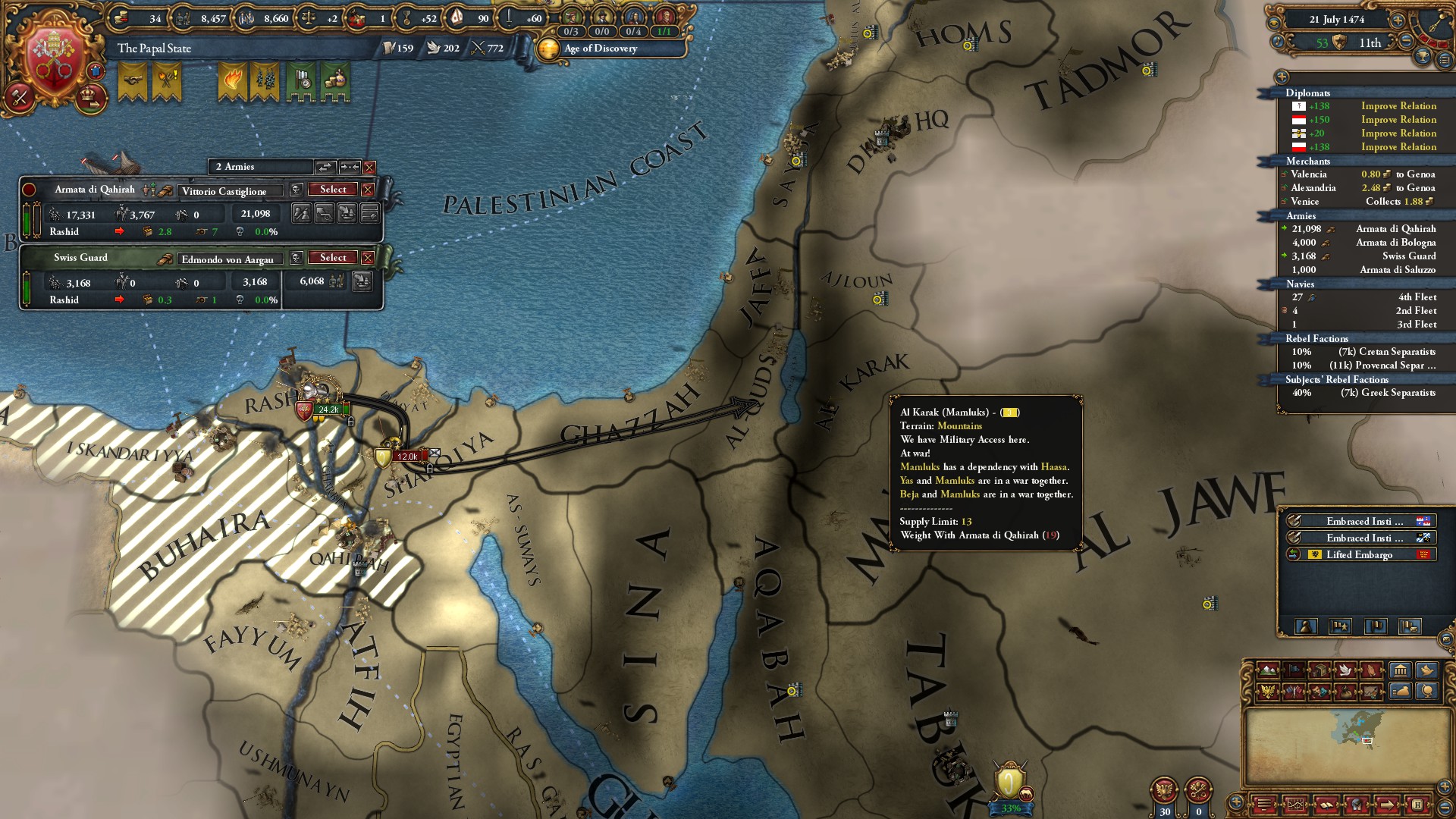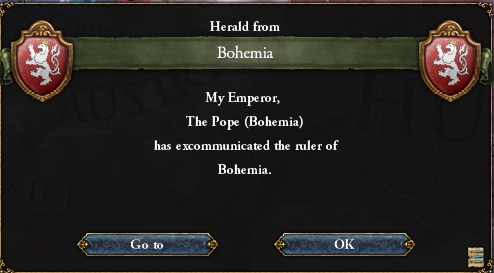Eugenius V (The Great) (1456-1490) Part II
Eugenius V (The Great) (1456-1490)
Part II
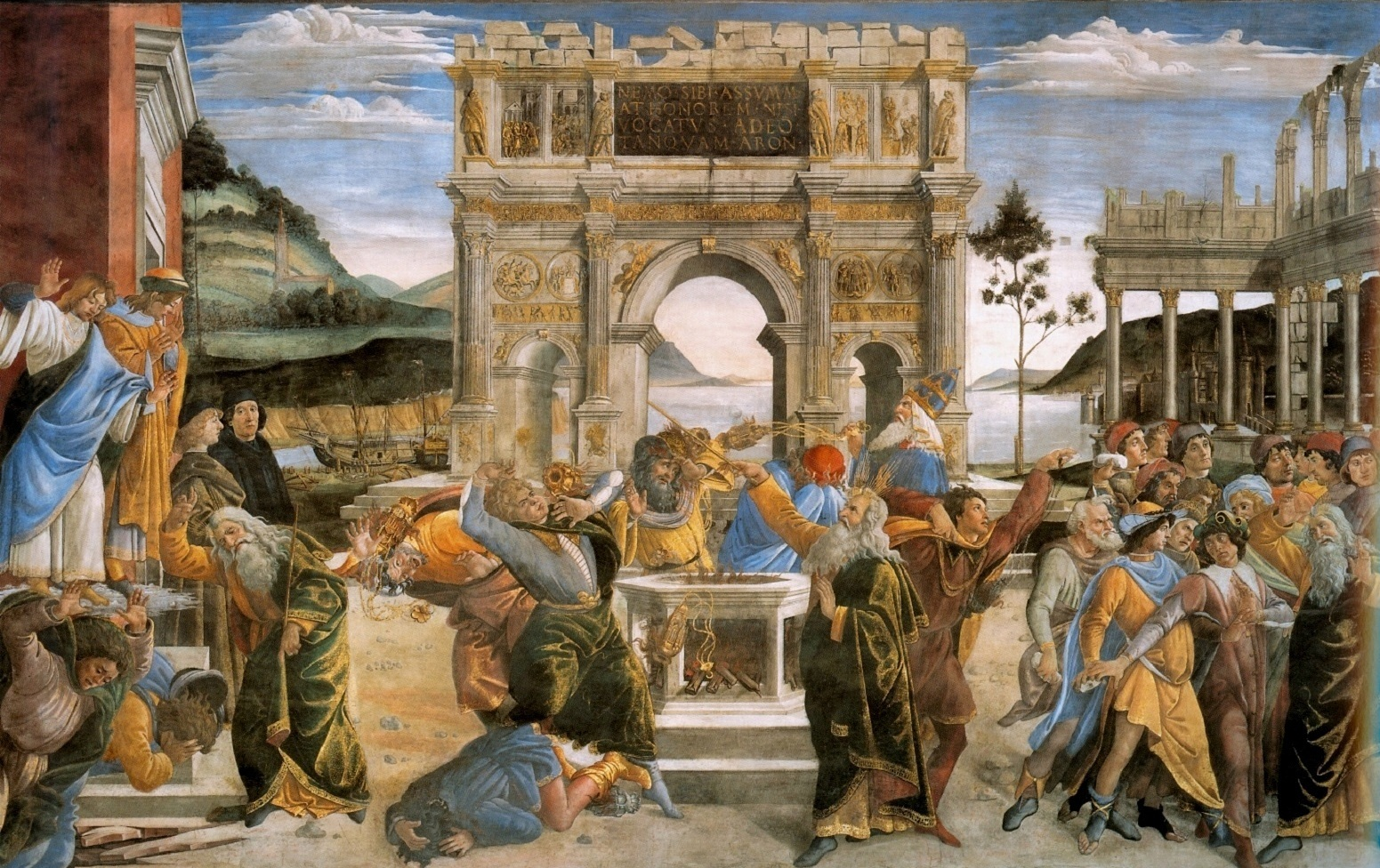
The Punishment of Korah and the Stoning of Moses and Aaron (Sistine Chapel) by Sandro Botticelli
Moses and Aaron fled to the tabernacle of the covenant. And when the were gone into it, the cloud covered it, and the glory of the Lord appeared. And the Lord said to Moses: "Get you out from the midst of this multitude, this moment will I destroy them." And as they were lying on the ground, Moses said to Aaron: "Take the censer, and putting fire in it from the altar, put incense upon it, and go quickly to the people to pray for them: for already wrath is gone out from the Lord, and the plague rageth." When Aaron had done this, and had run to the midst of the multitude which the burning fire was now destroying, he offered the incense: And standing between the dead and the living, he prayed for the people, and the plague ceased. And the number of them that were slain was fourteen thousand and seven hundred men, besides them that had perished in the sedition of Core. - Numbers 16:43-49Part II

The Punishment of Korah and the Stoning of Moses and Aaron (Sistine Chapel) by Sandro Botticelli
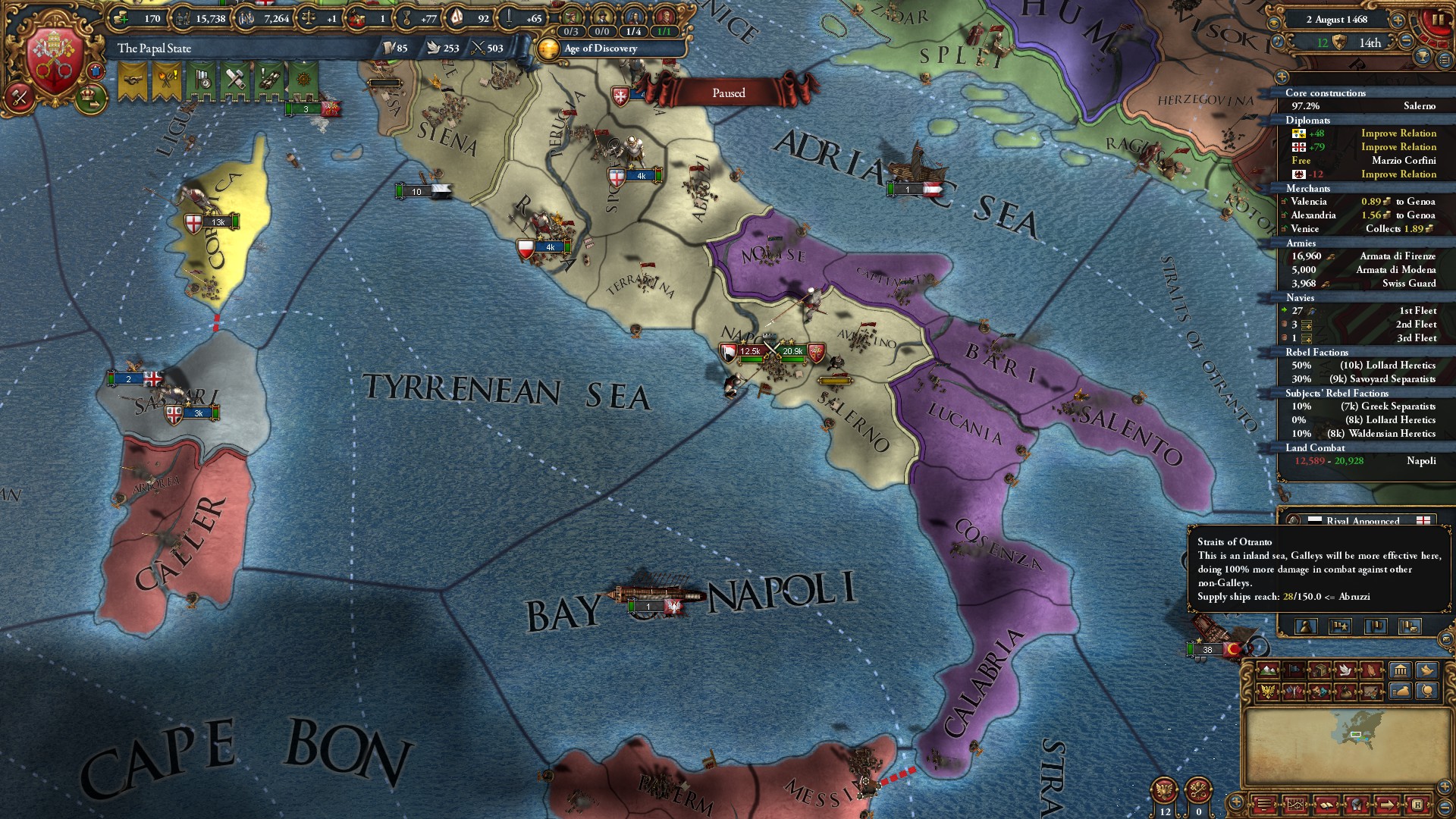
Neapolitan rebels have risen up, however our army is ready and quickly clear the city.
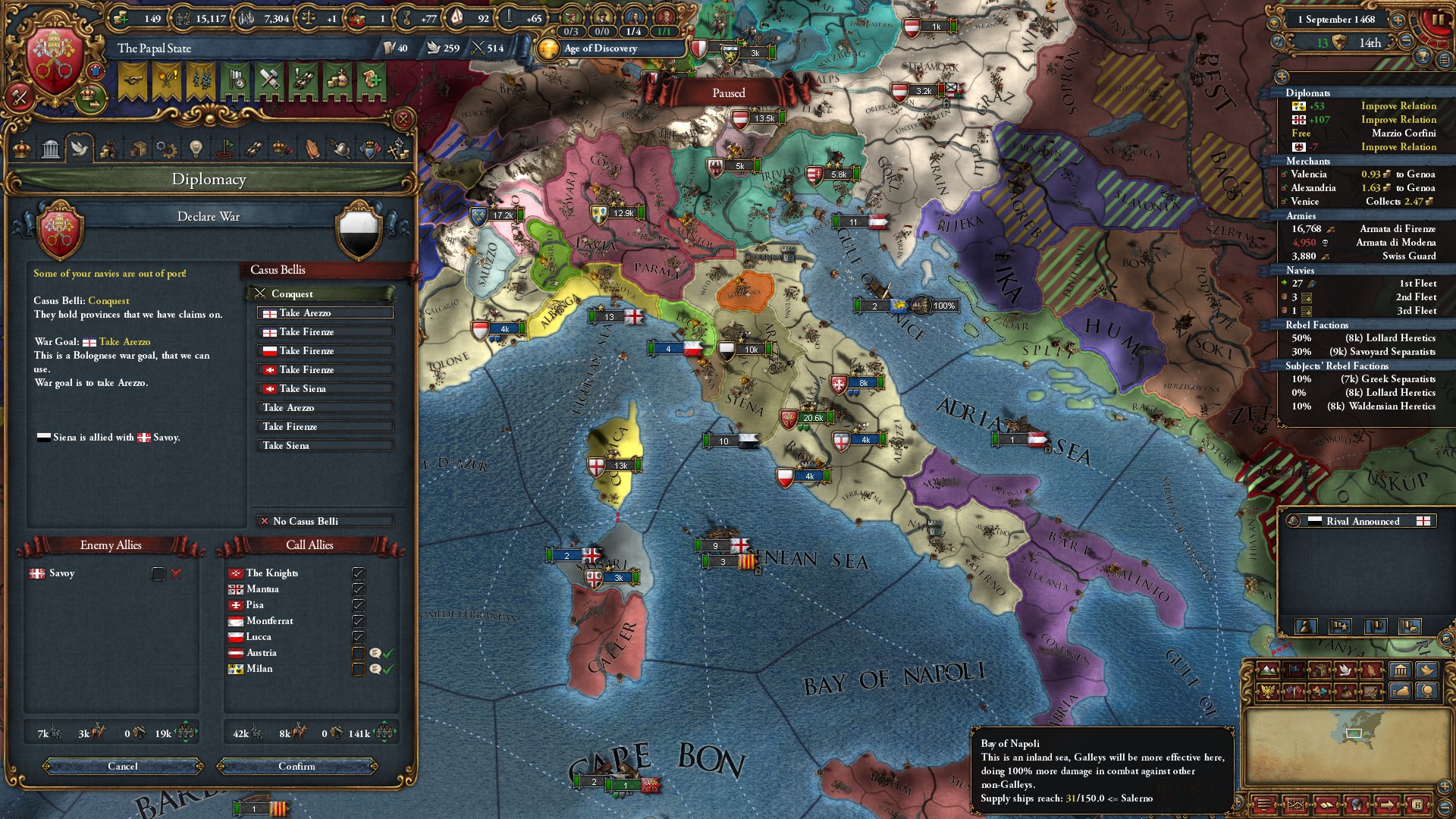
With that out of the way, we need to address Siena’s actions. Their control over Tuscany is too much to stomach.
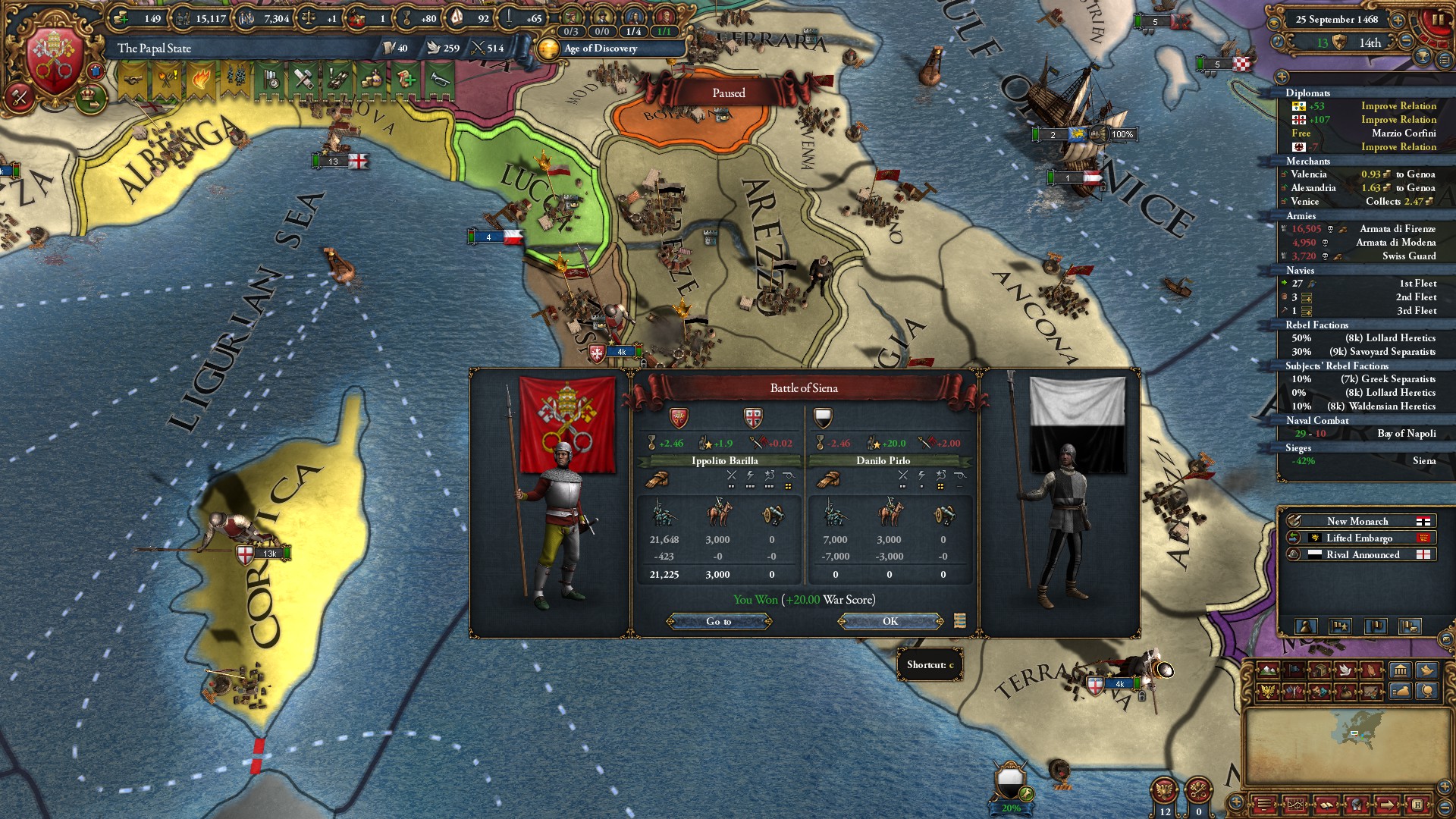
And in under a month, their army is gone and they are on the way to surrendering.
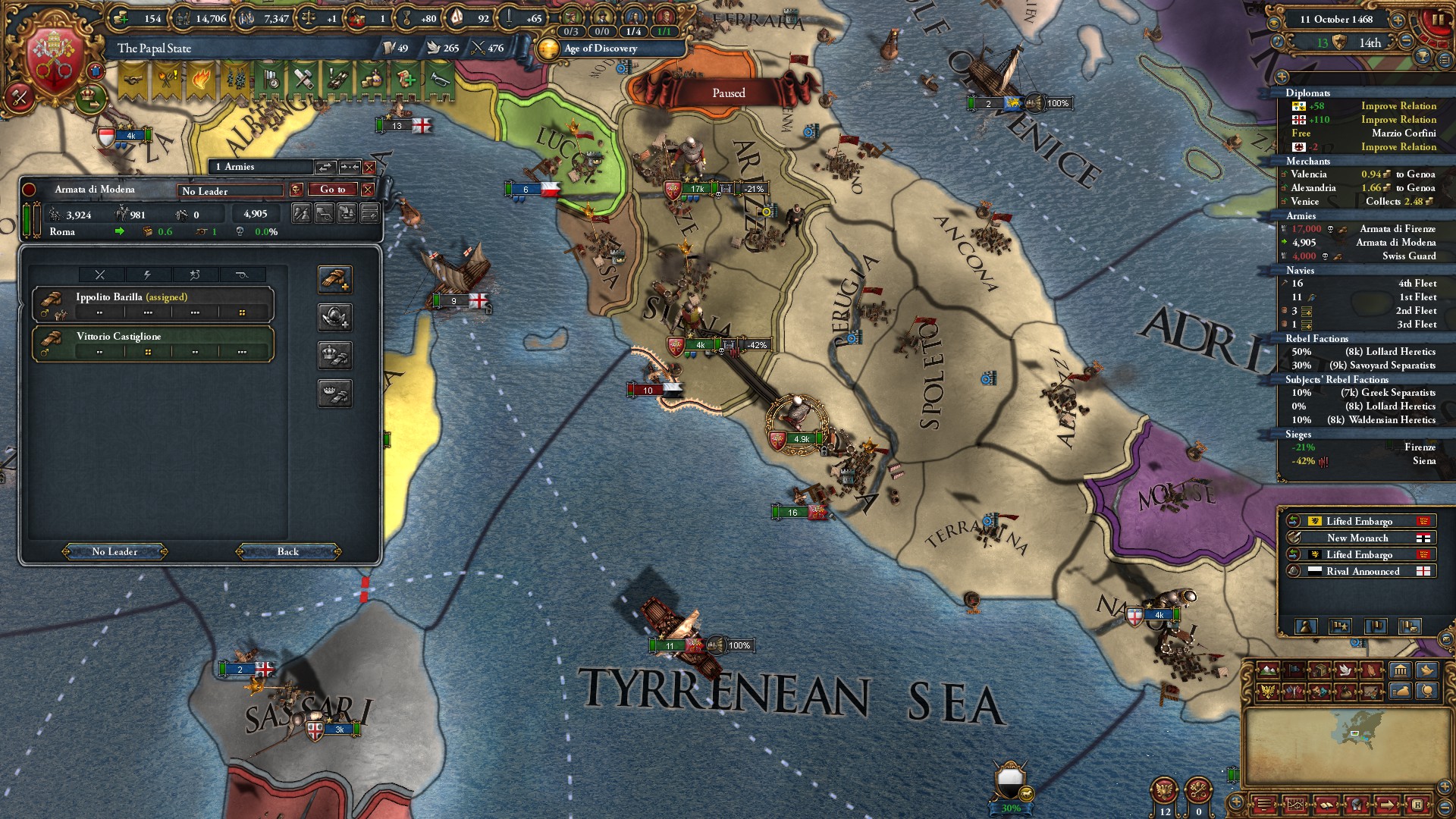
General Barrilla is also getting up there in age, and the army has expanded so much that a third general (besides the commander of the Swiss Guards, who ceremonially holds the rank of general too) would come in handy. One of our colonels, Vittorio Castiglione, shows promise as an aggressive leader. How very apt, given his name.
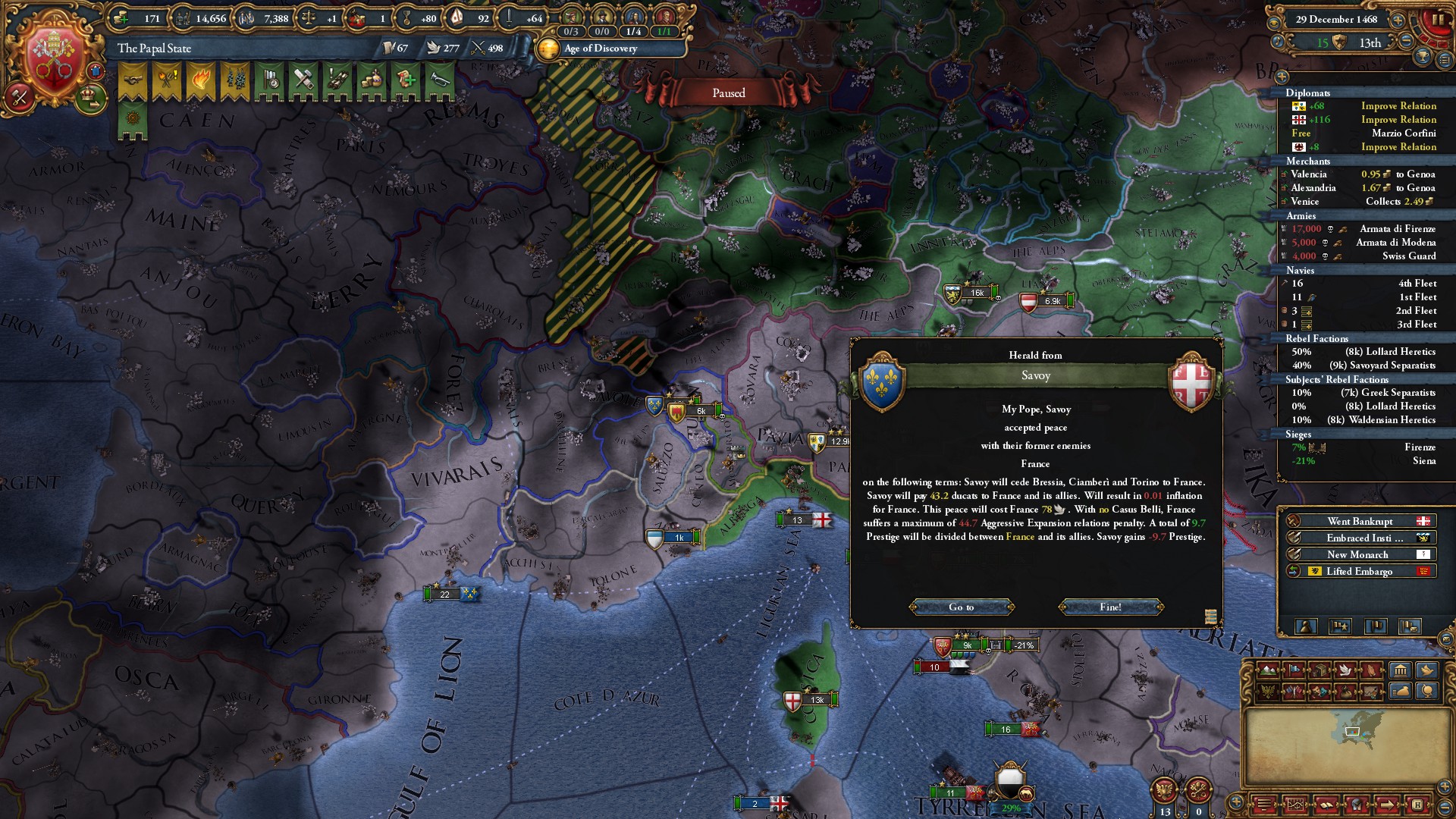
Well this is not good, the French now have a toehold this side of the Alps, and they have also recently signed an alliance with Genoa. We must continue to deny them access so they cannot press their claims to the Neapolitan throne.
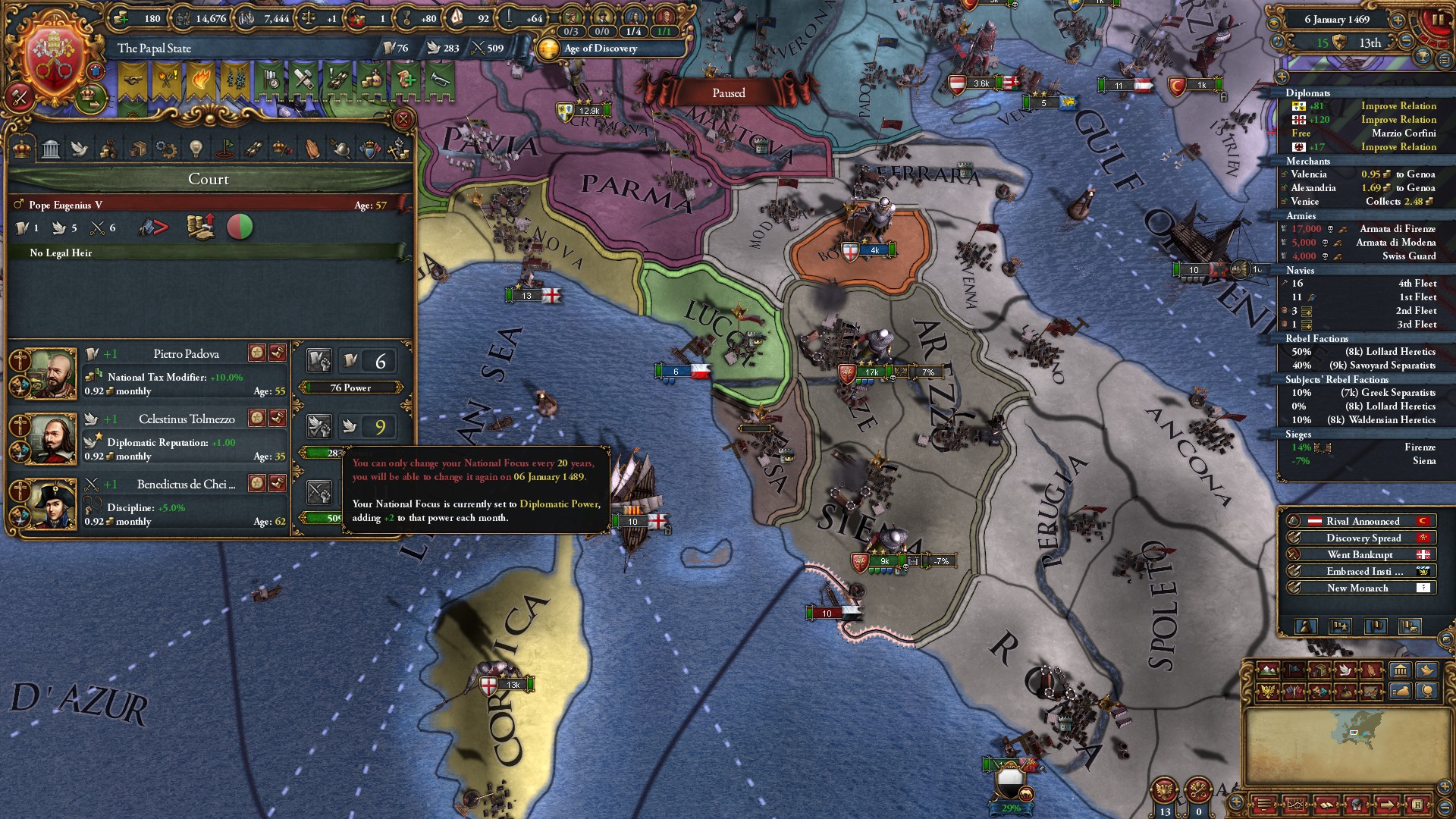
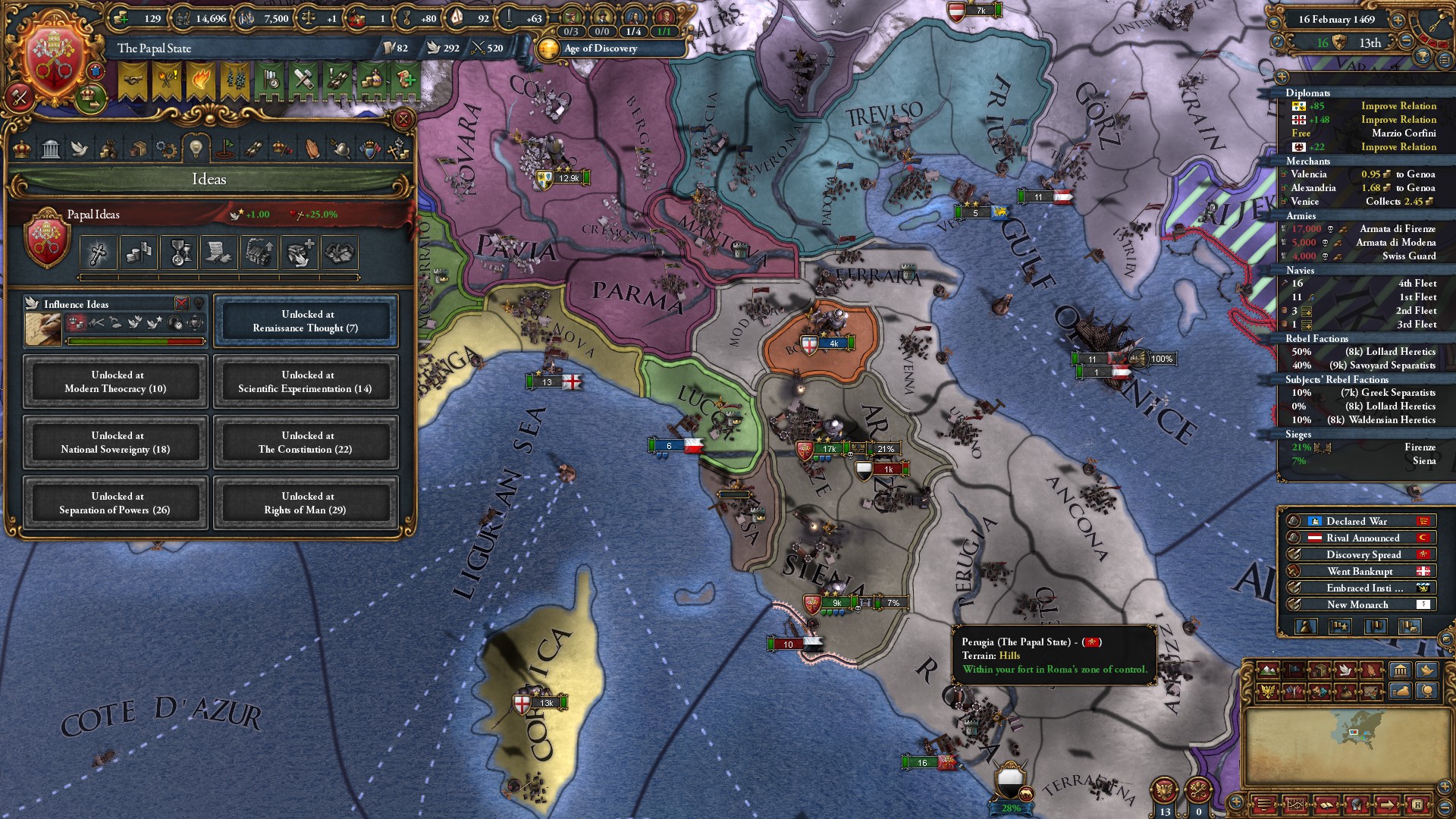
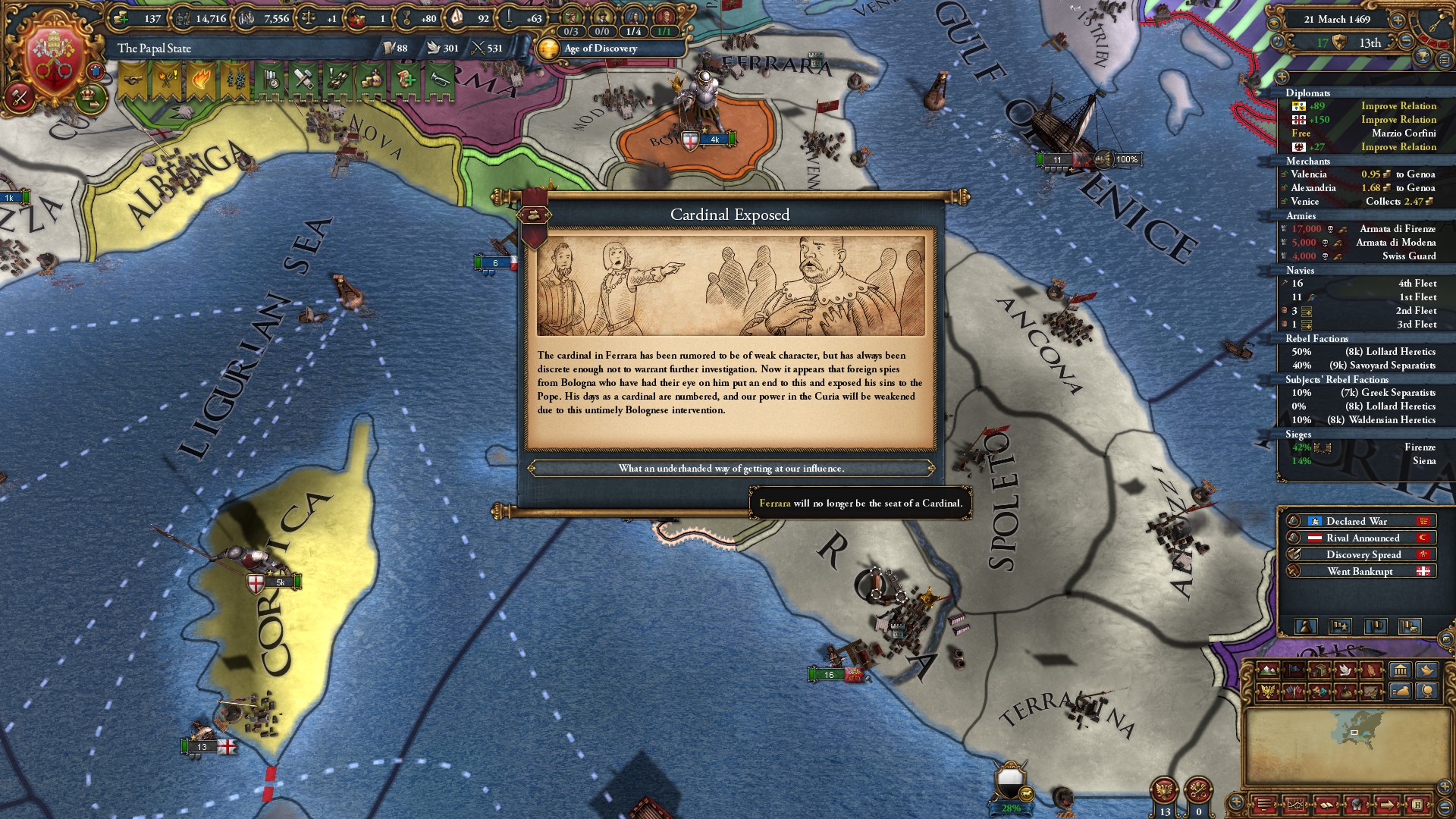
The Bolognese have caught Cardinal d’Ippolito, the Bishop of Ferrara, in flagrante with one of his courtiers. He really should not have gloated about winning that card game against the Bishop of Bologna. [A]
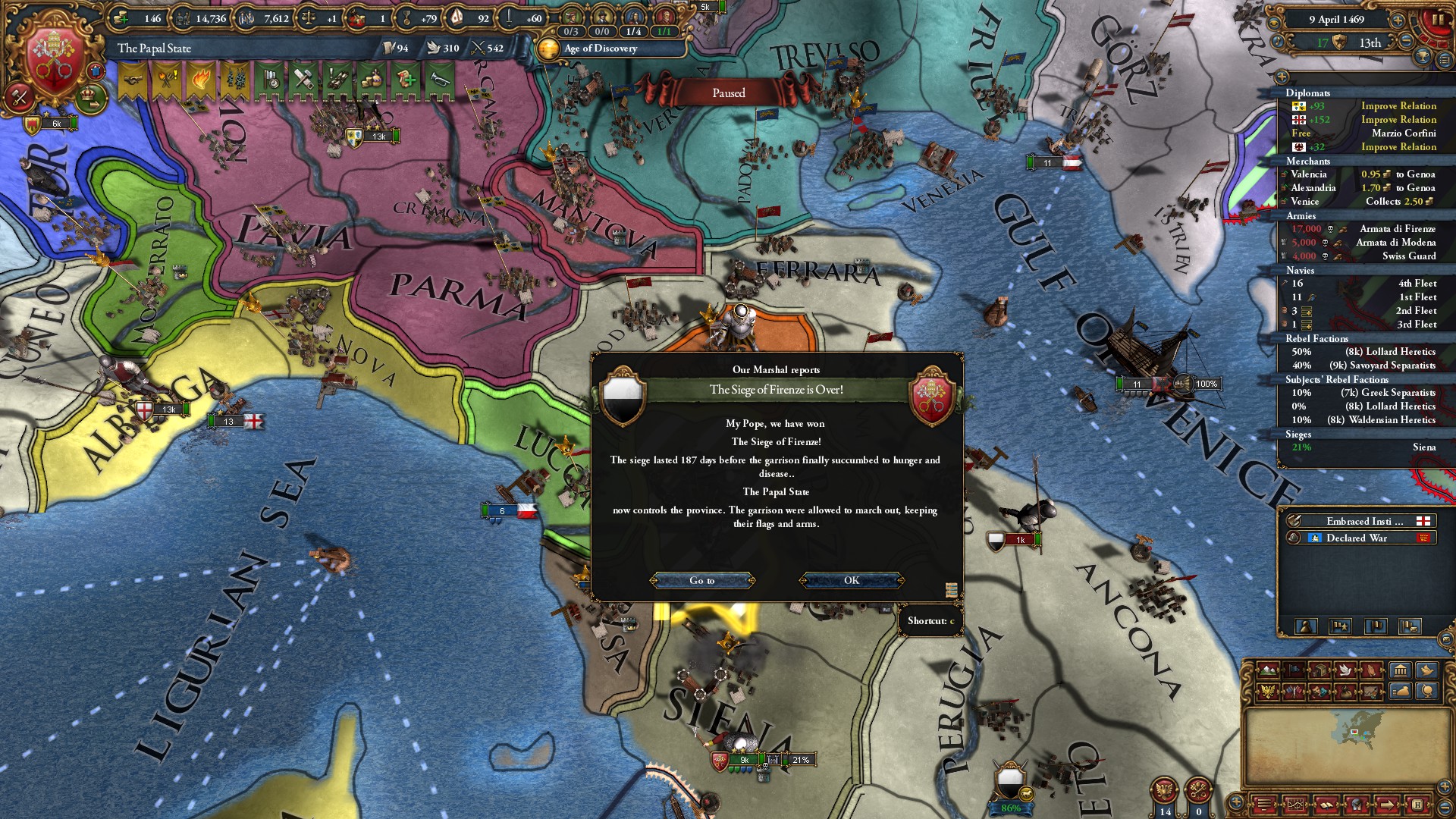
Poor Florence, they may have rivaled us once upon a time, but they’ve had a rough history of late.
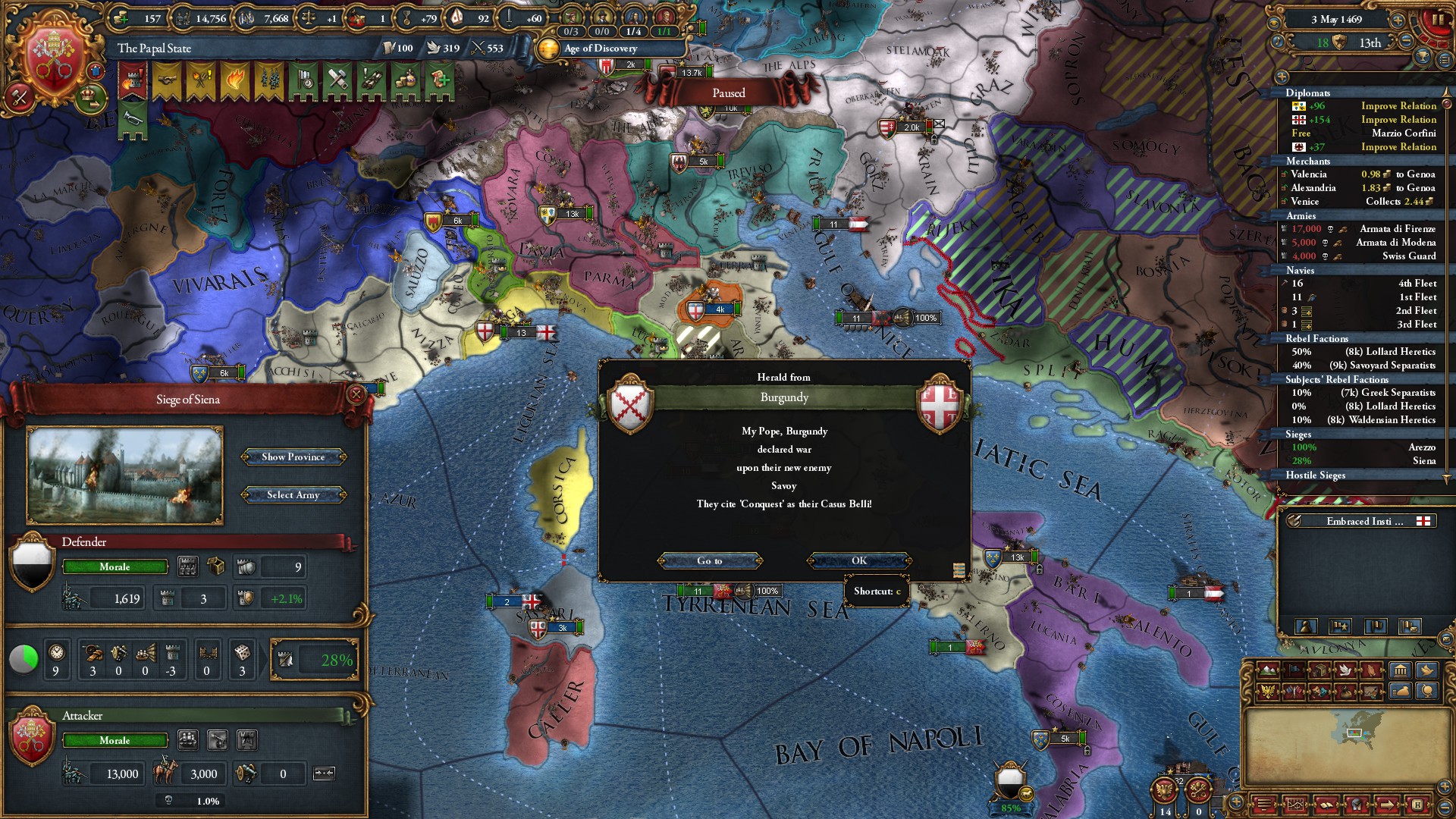
One could call this disturbing, but there is a chance that this can be a decent opportunity…
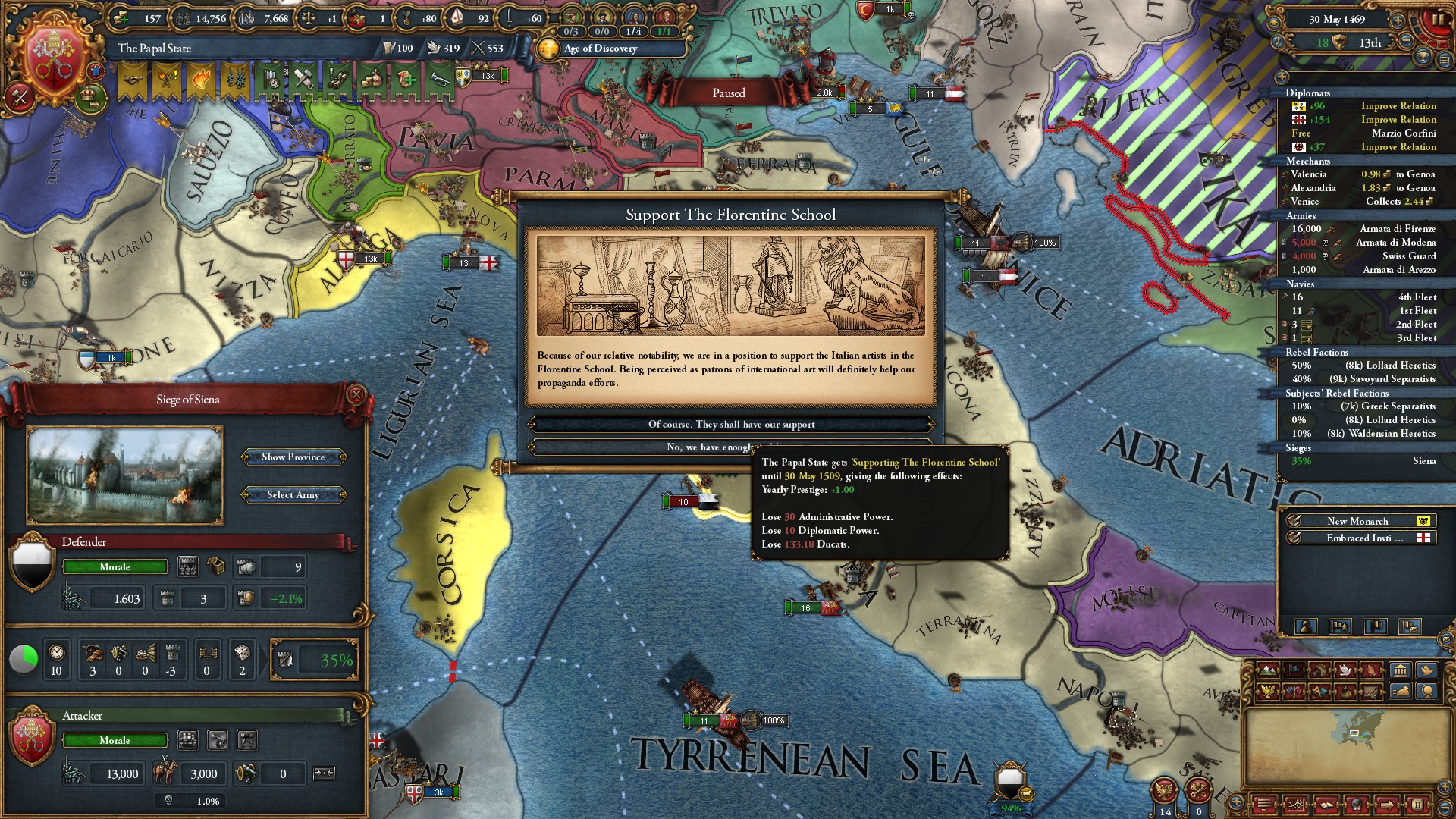
Well, that’s one way to give charity to the Florentines whose city we just occupied and sacked -fund all their starving artists.
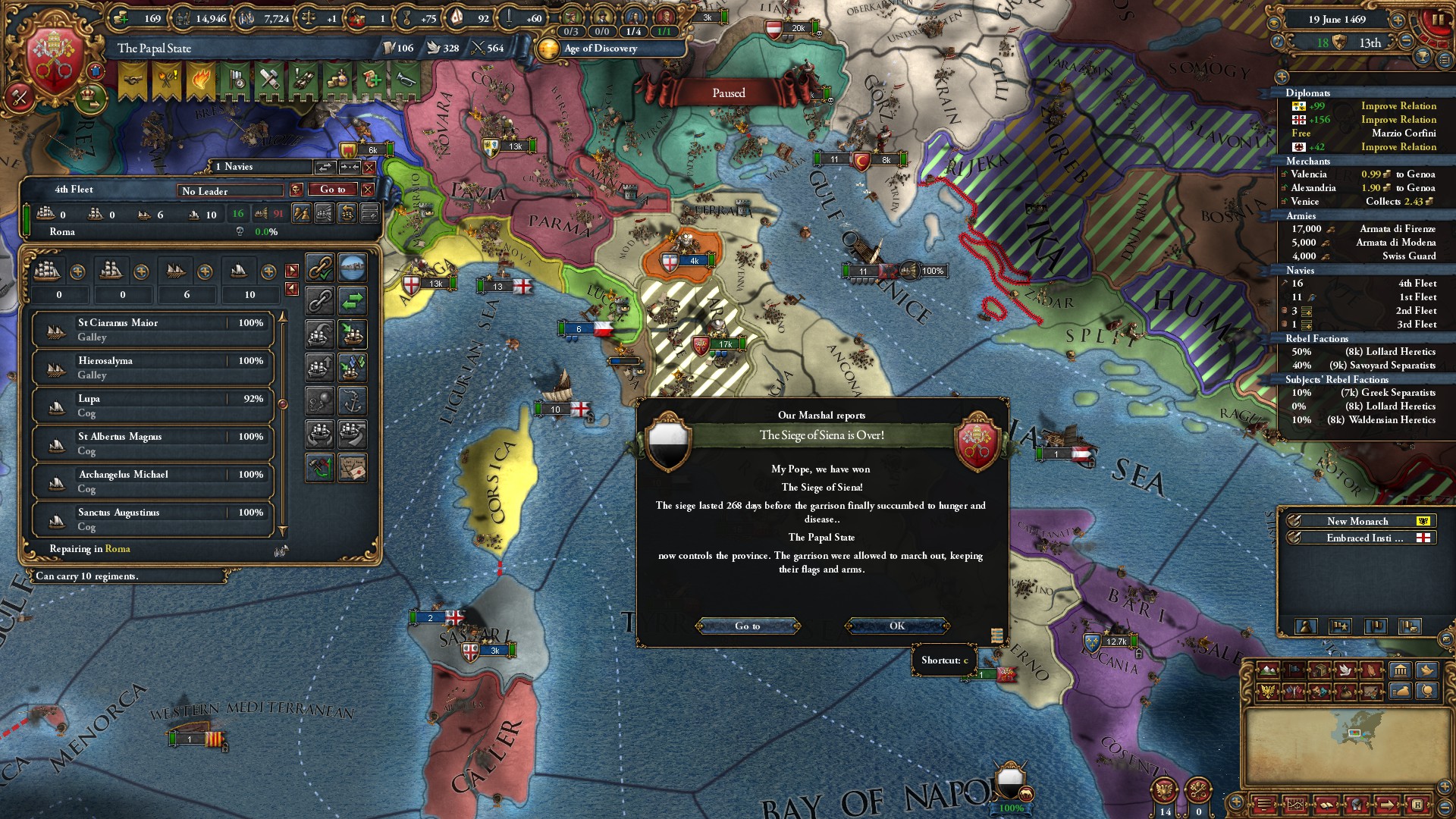
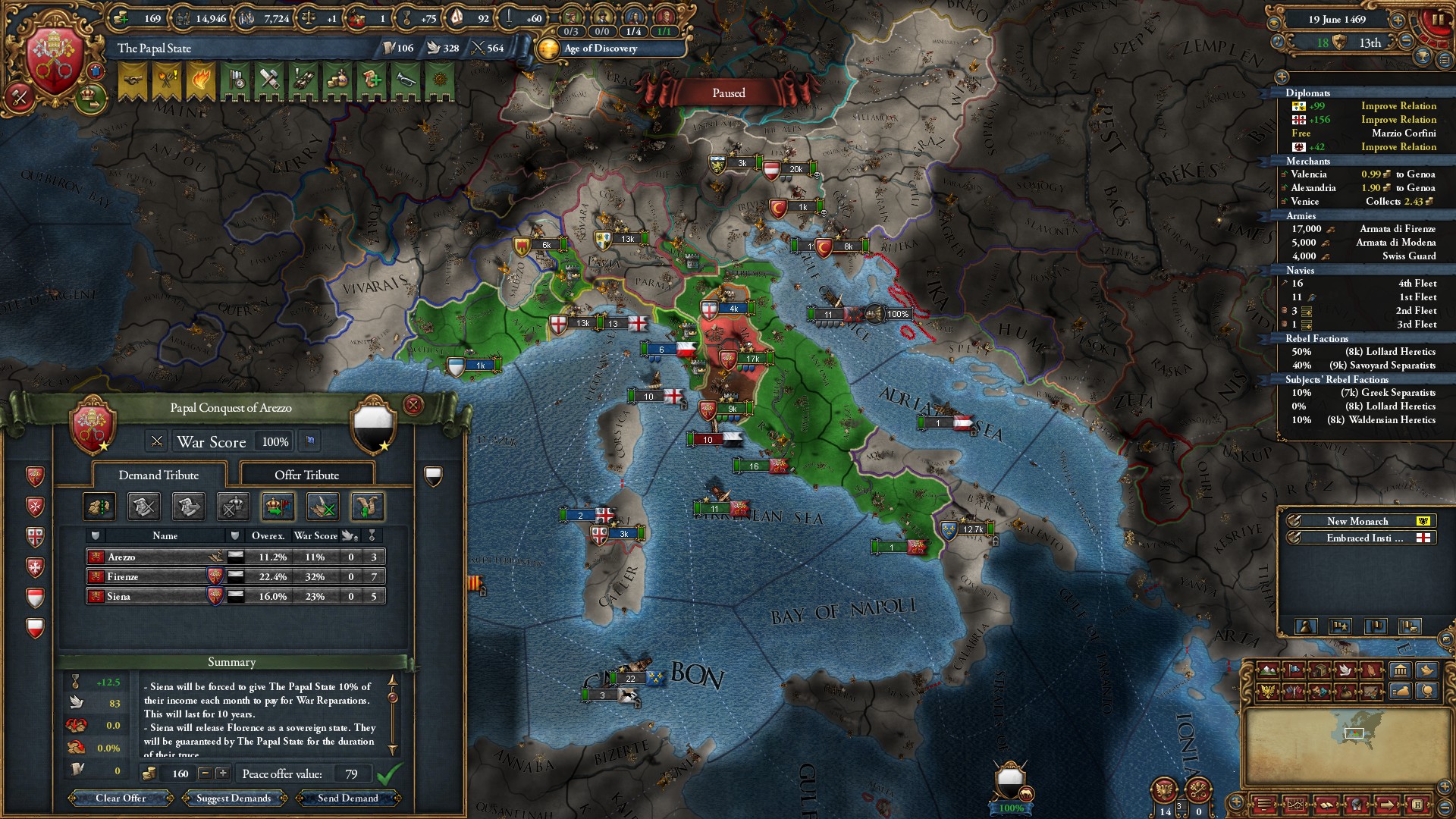
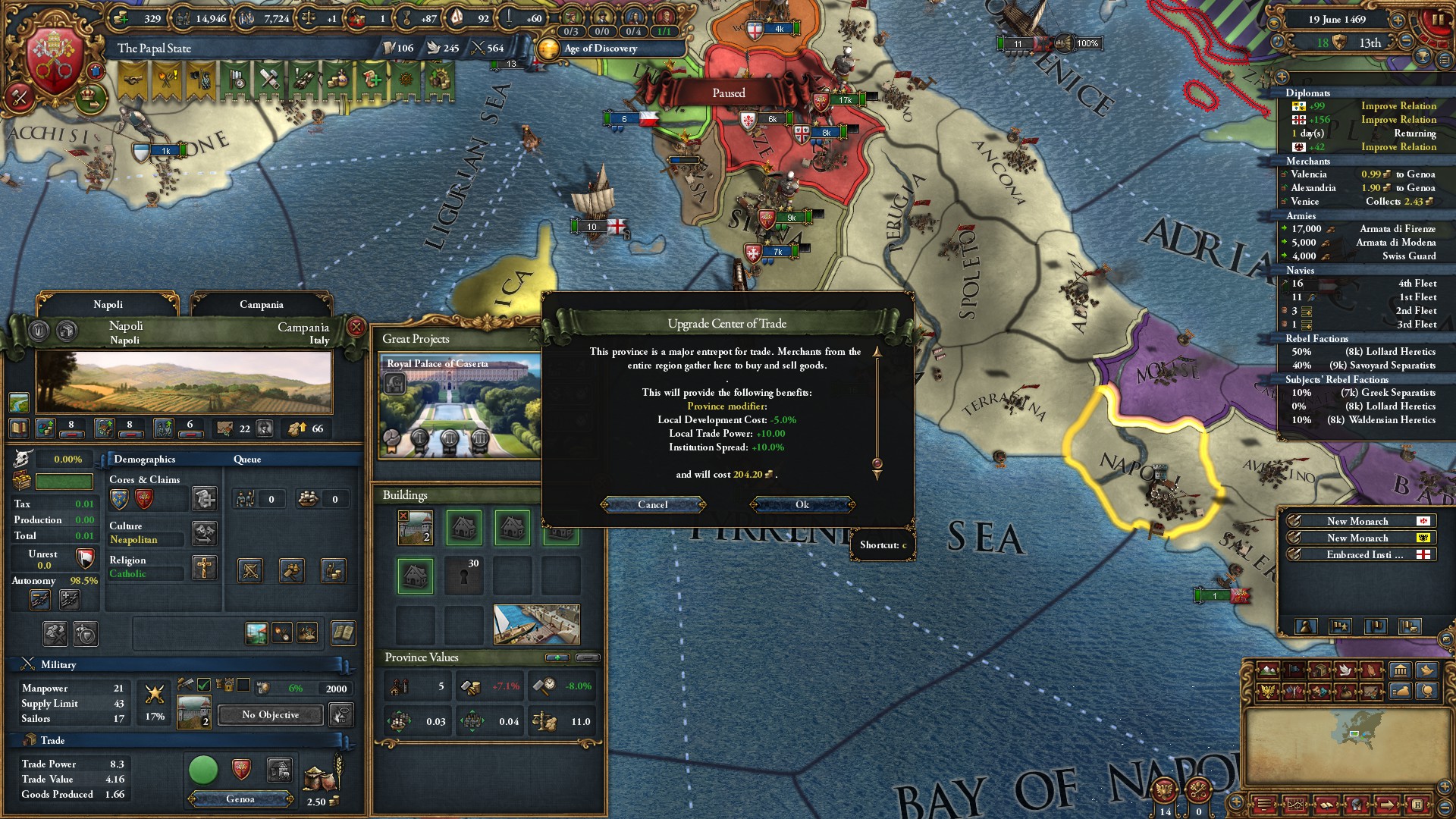
And with the Sienese war reparations, we revamp the port of Naples and bring it back to its pre-conquest capacity.
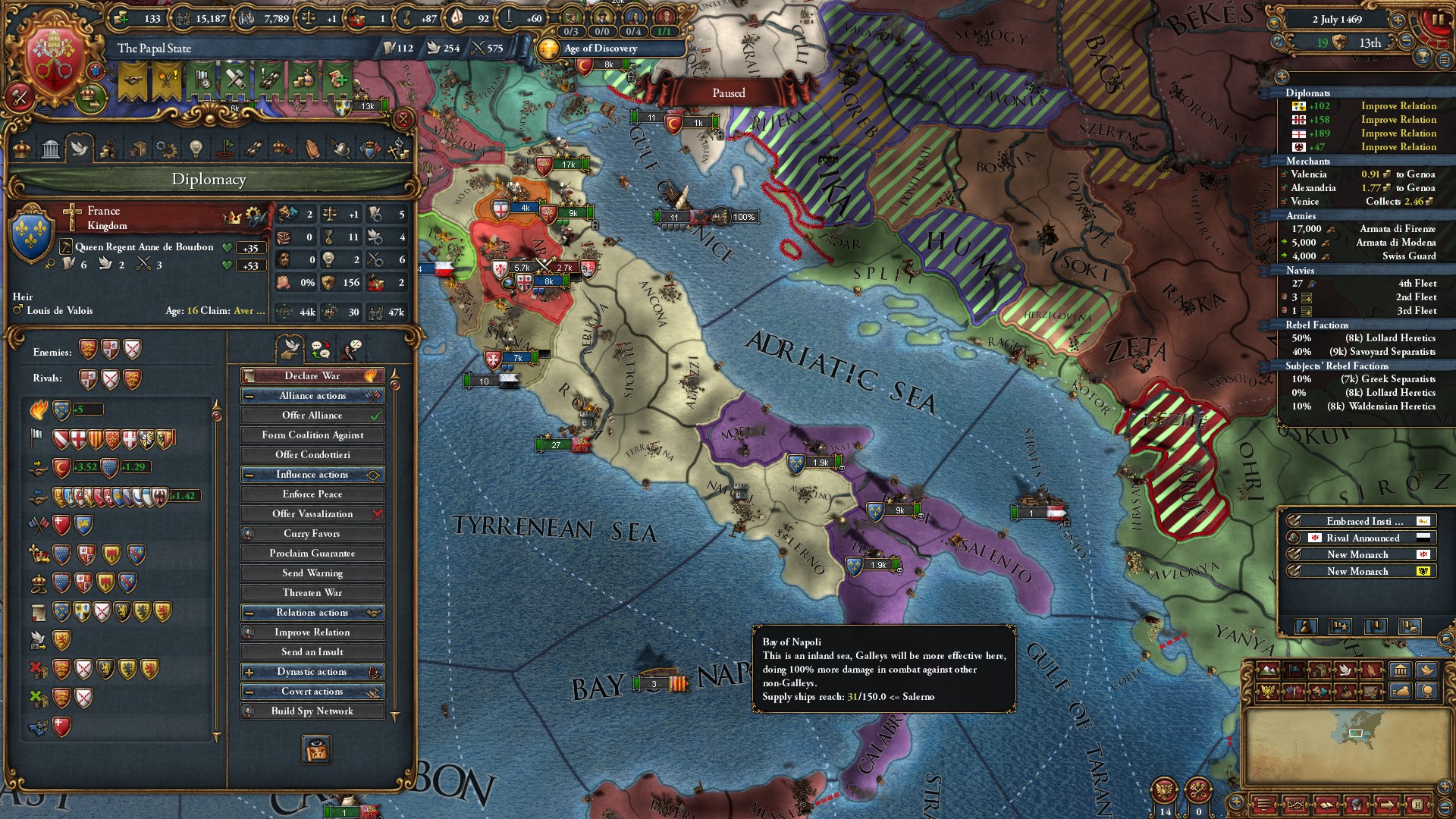
And our fears have unfortunately come true – the French navy has managed to gain local control over the seas around Southern Italy and have landed an invasion force.
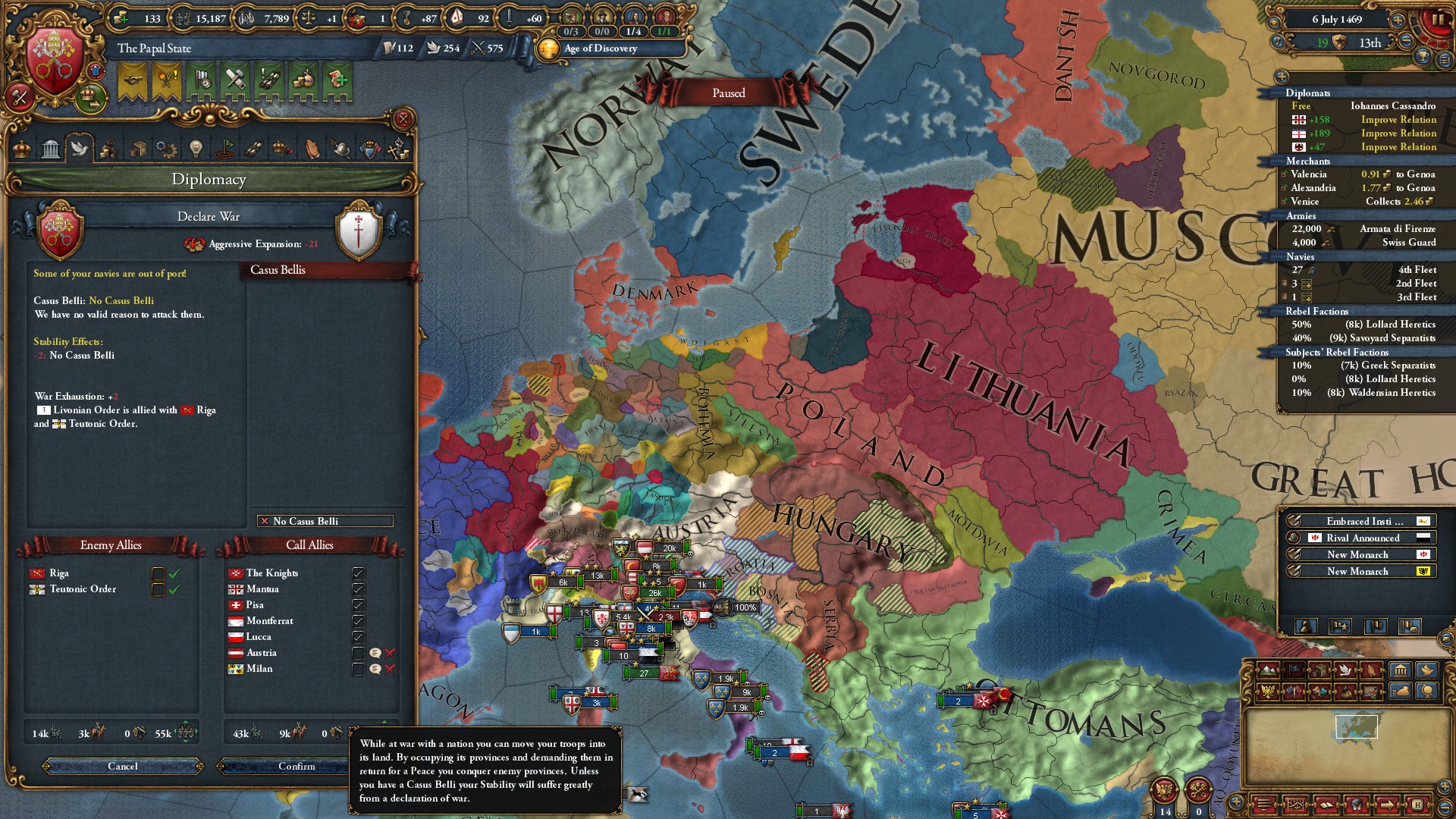
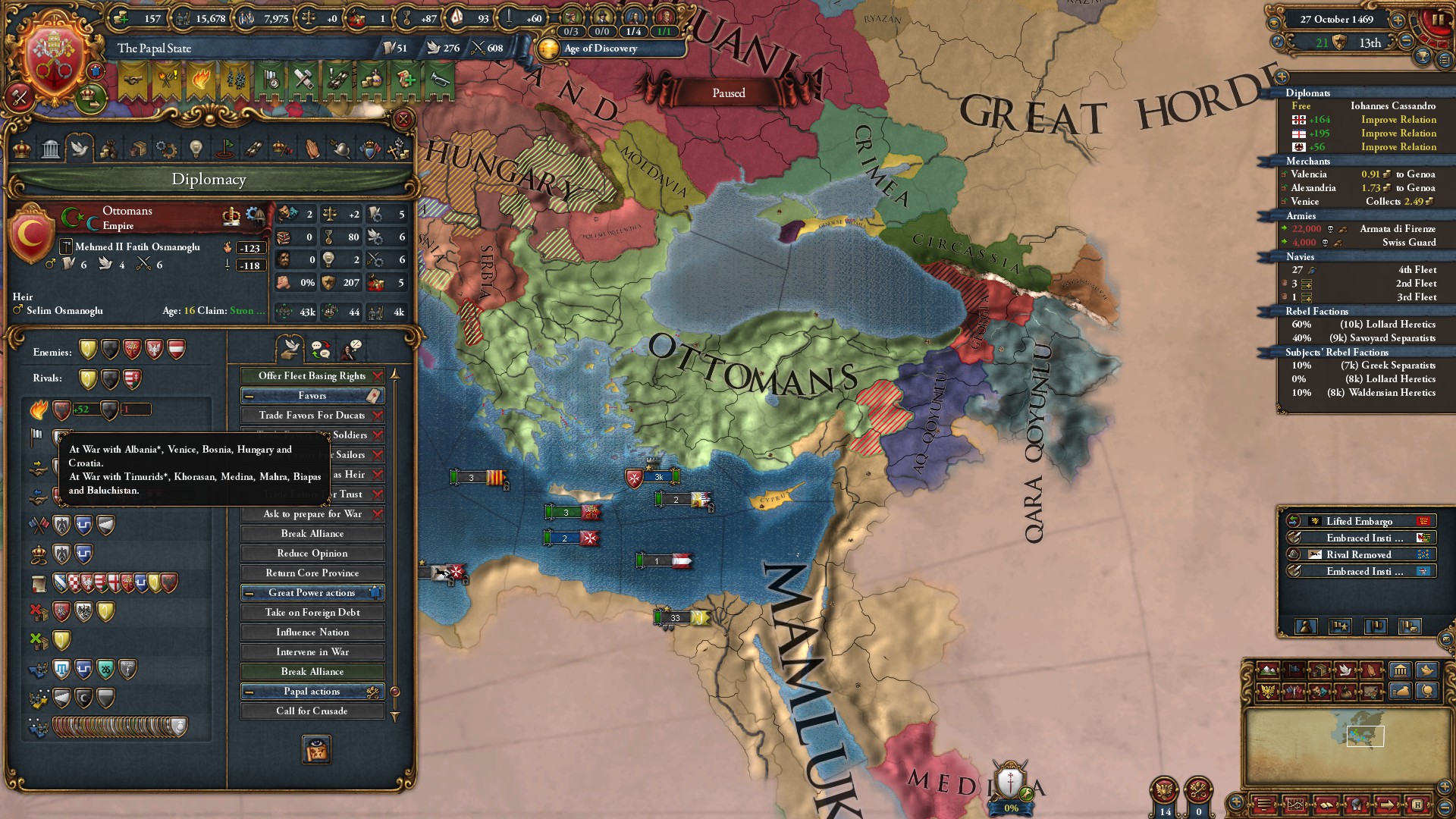
News from Asia – the Timurid Empire continues its wholesale collapse, and it seems the Ottomans are unlucky enough to be an ally of one of the factions while their armies are occupied in Hungary. We may be able to take advantage of this situation – not directly against the Ottomans mind you, suicide is a sin and all that, but maybe them being otherwise occupied could prevent a massive power vacuum were we to move against the Mamluks in Egypt.
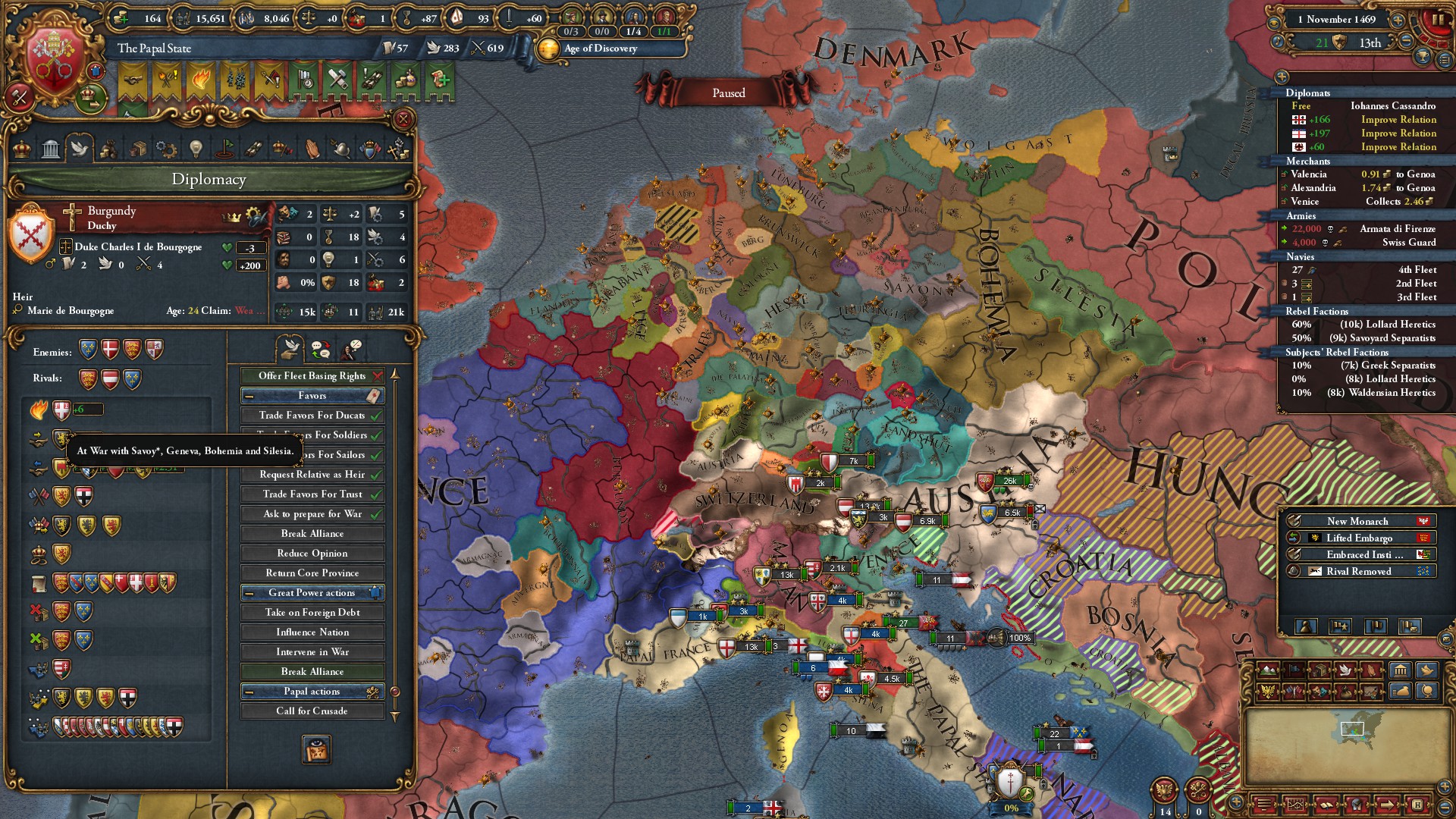
Unfortunately, the Bohemians and their soon-to-be Hungarian subjects are not going to be able to take advantage of this themselves as the Savoyards have brought them in against the Burgundians.
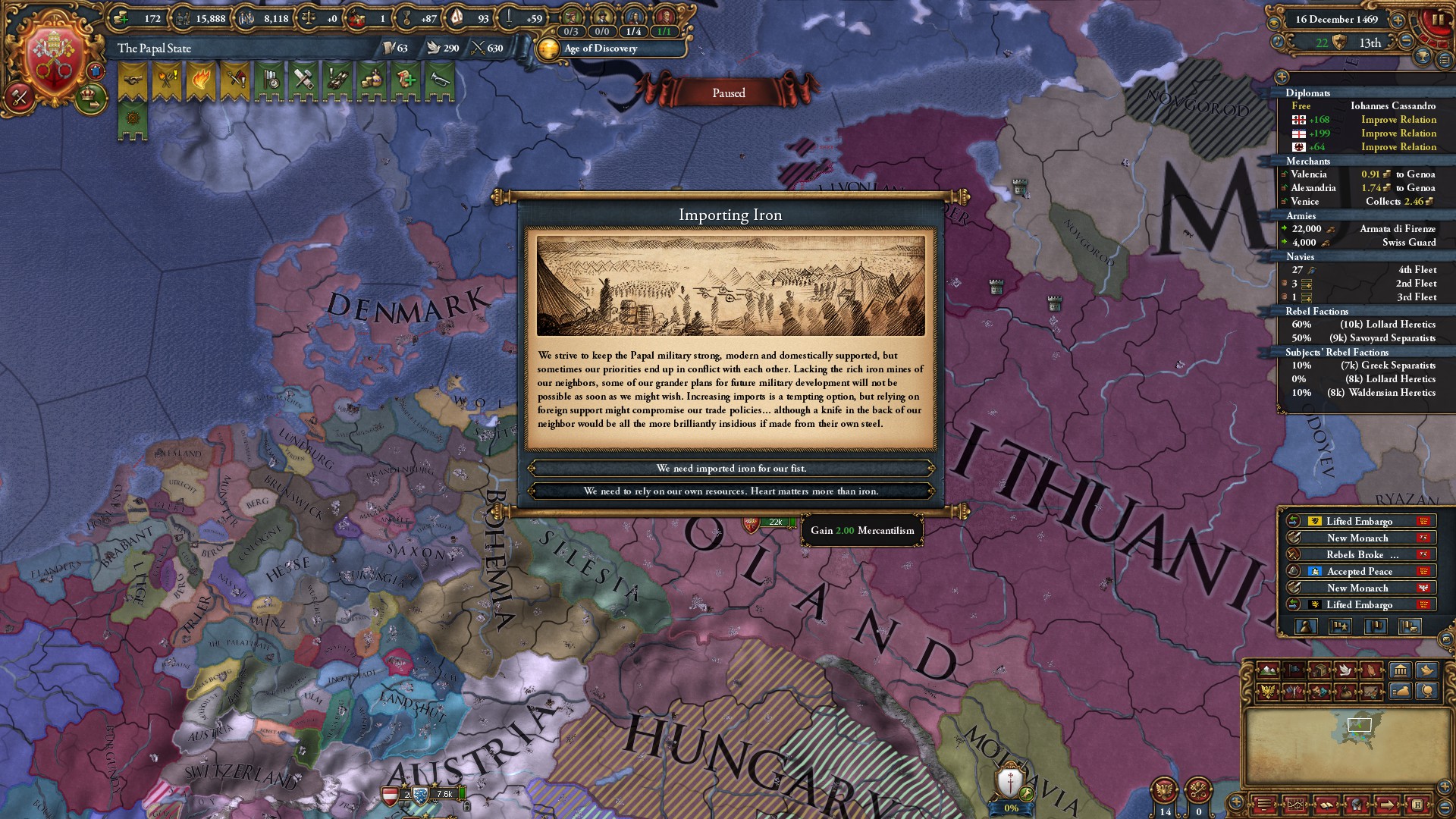
And we decide to further develop our iron resources so we do not have to depend on any of our future targets.
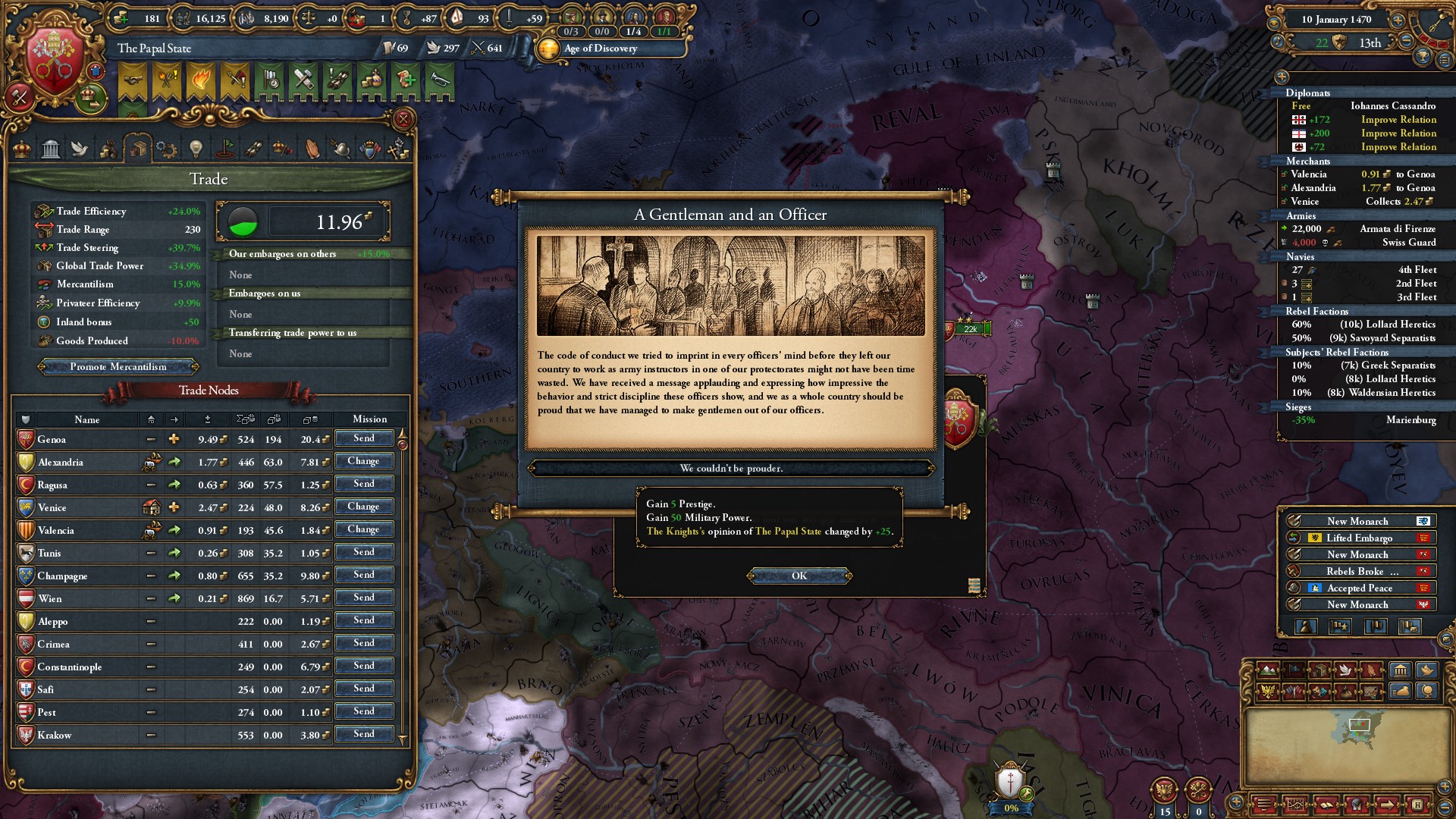
One of our attaches to the Knights has distinguished himself by somehow managing to follow his oaths and all our instructions and refrain from deflowering all of the local women. This achievement has been spoken of with awe and wonder across the Mediterranean. We’re just going to focus on the positives of this situation and not contemplate the larger issue, alright?
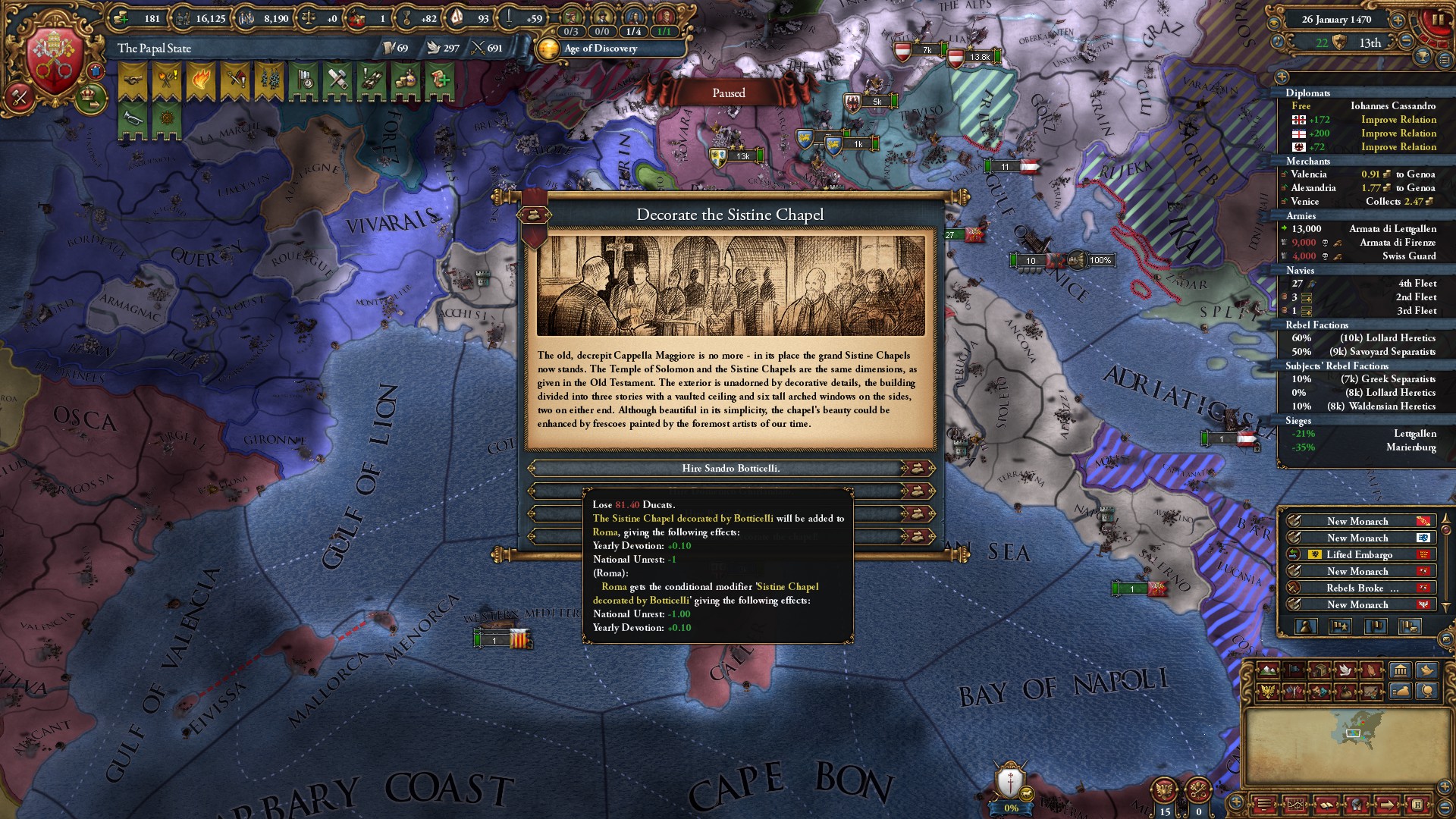
And construction of the Sistine Chapel has proceeded to the point where we can finally hire an artist to do the wall decorations. Fortunately our patronage of the Florentines has given us a number of options.
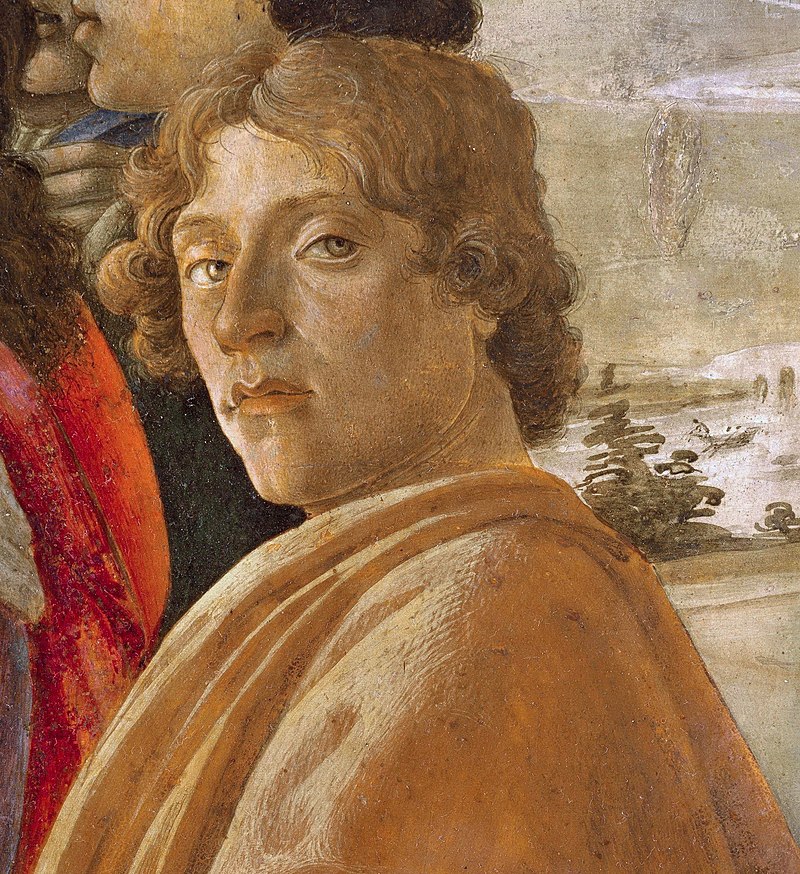
We could hire Sandro Botticelli…

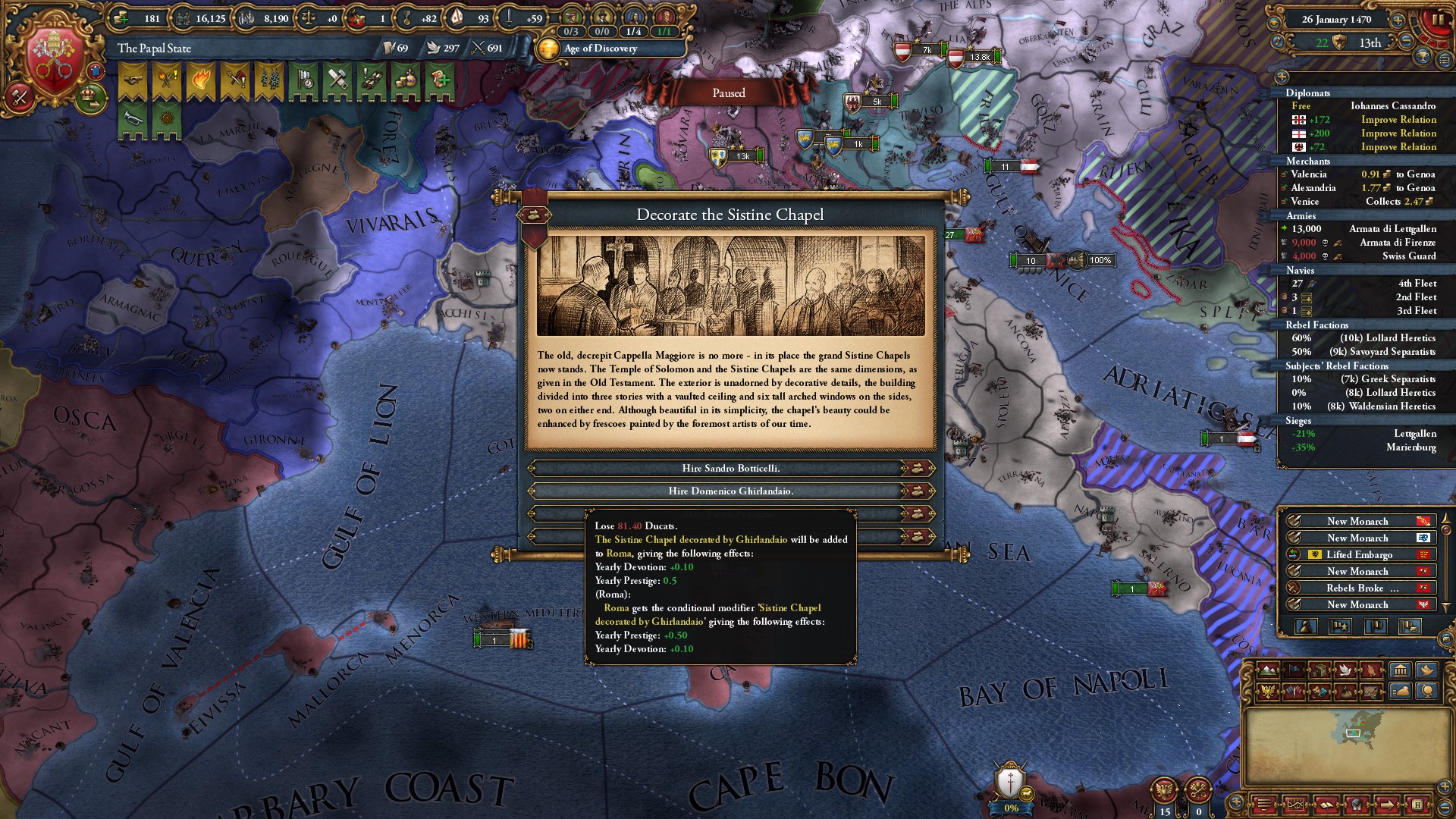
Or Domenico Ghirlandaio…
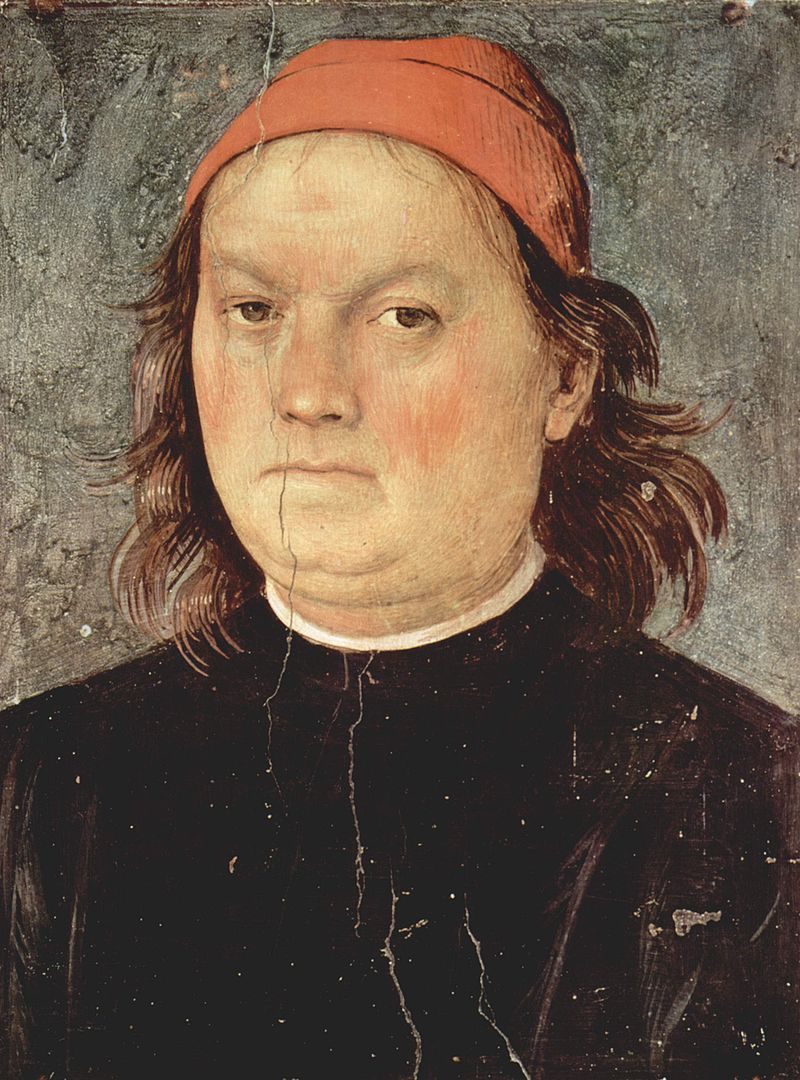
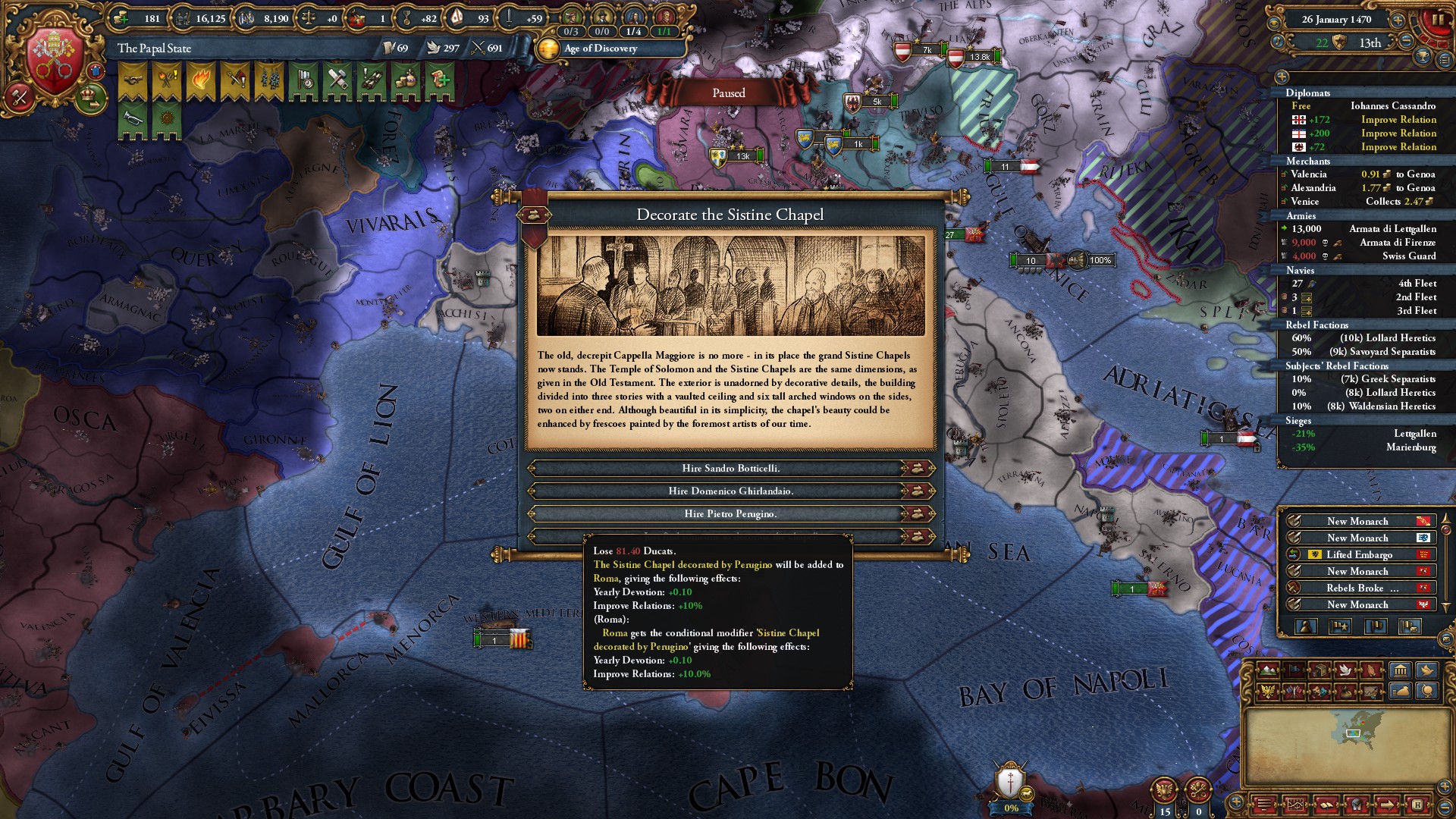
Or Pietro Perugino…
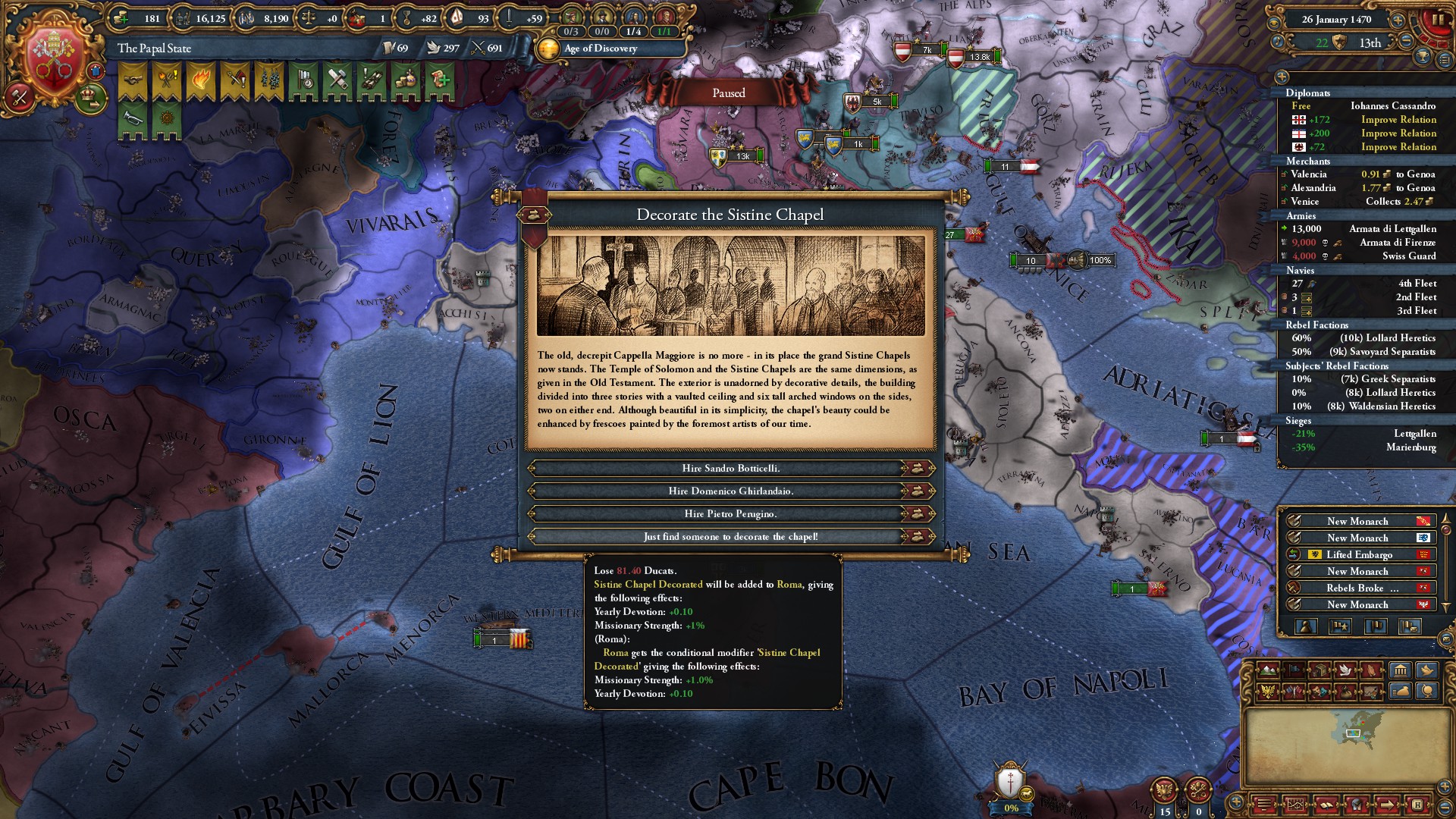
Or we could just hire all of the above and a few other artists and get it done as quick as possible, and that’s what we’re going to do.
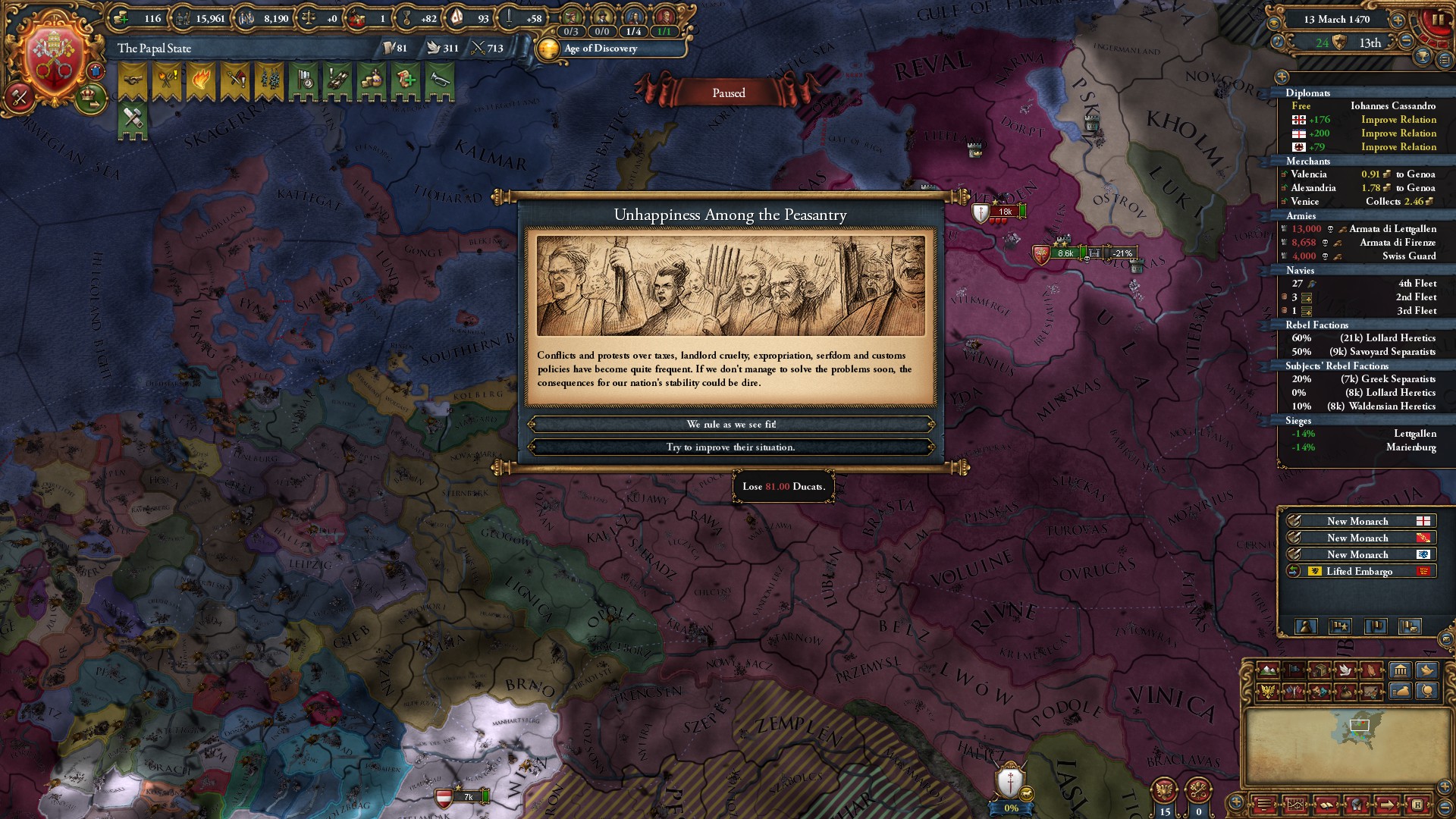
For once we have a fuller treasury, and our government is a bit overstretched with trying to manage a campaign on the other side of the Continent, so we’ll actually grant a tax break.
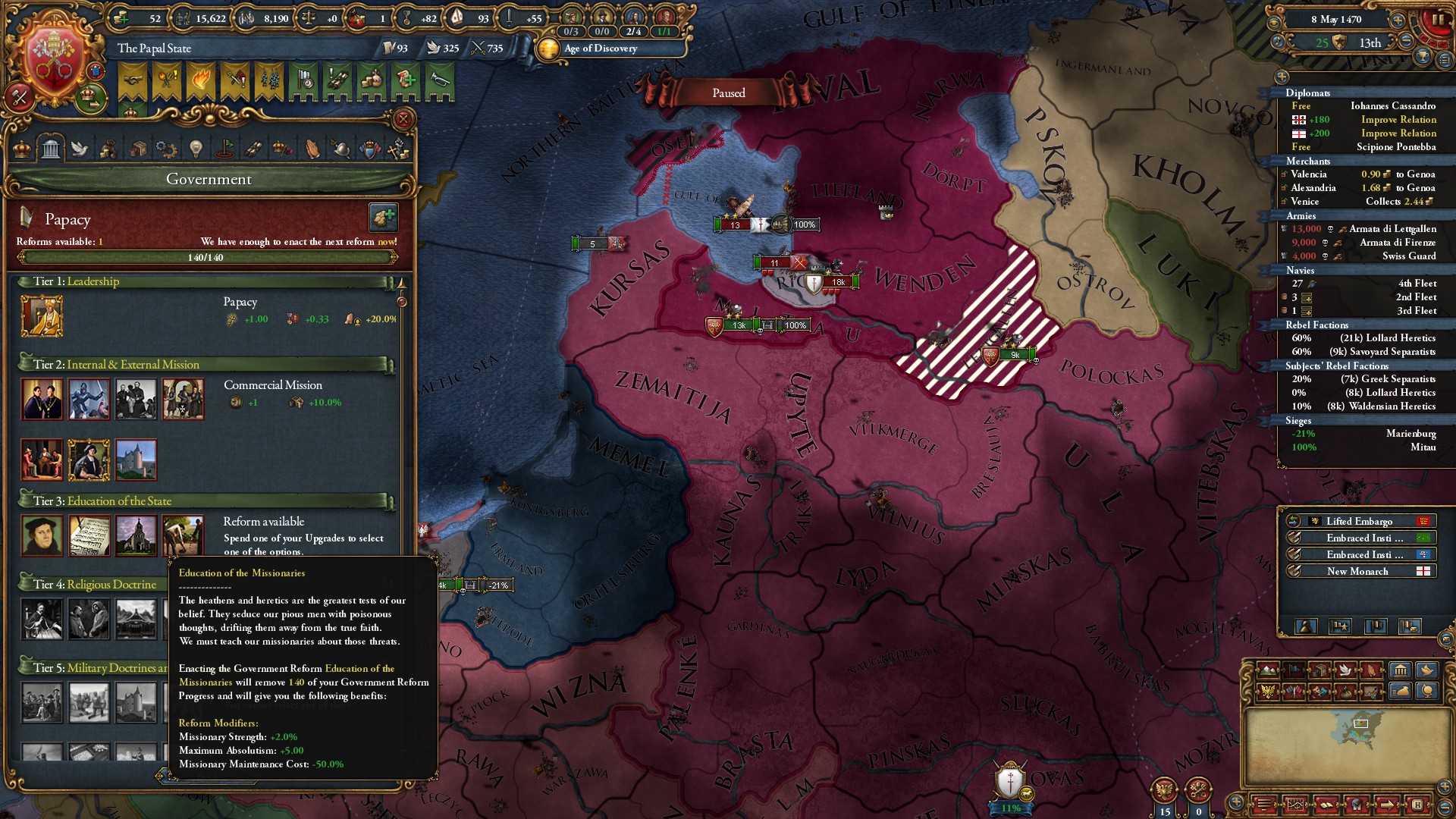
And another thing we can do with the treasury is finally start dealing with the poor state of clerical education in the Church. This has been an open sore for some time now, but reports coming back from our armies in the recently Christianized lands of the Baltics have made abundantly clear just how bad the problem is. Many of our priests do not know how to read and write, and some are even preaching absolutely horrific heresies like each person of the Trinity being a different god, the Blessed Mother and some collection of saints or local notables also being divine, and all matter of sorceries and superstitions clearly inherited from the pagans. Establishing a few seminaries and a pontifical college in Rome for missionaries will go part of the way towards fixing this mess.[C]
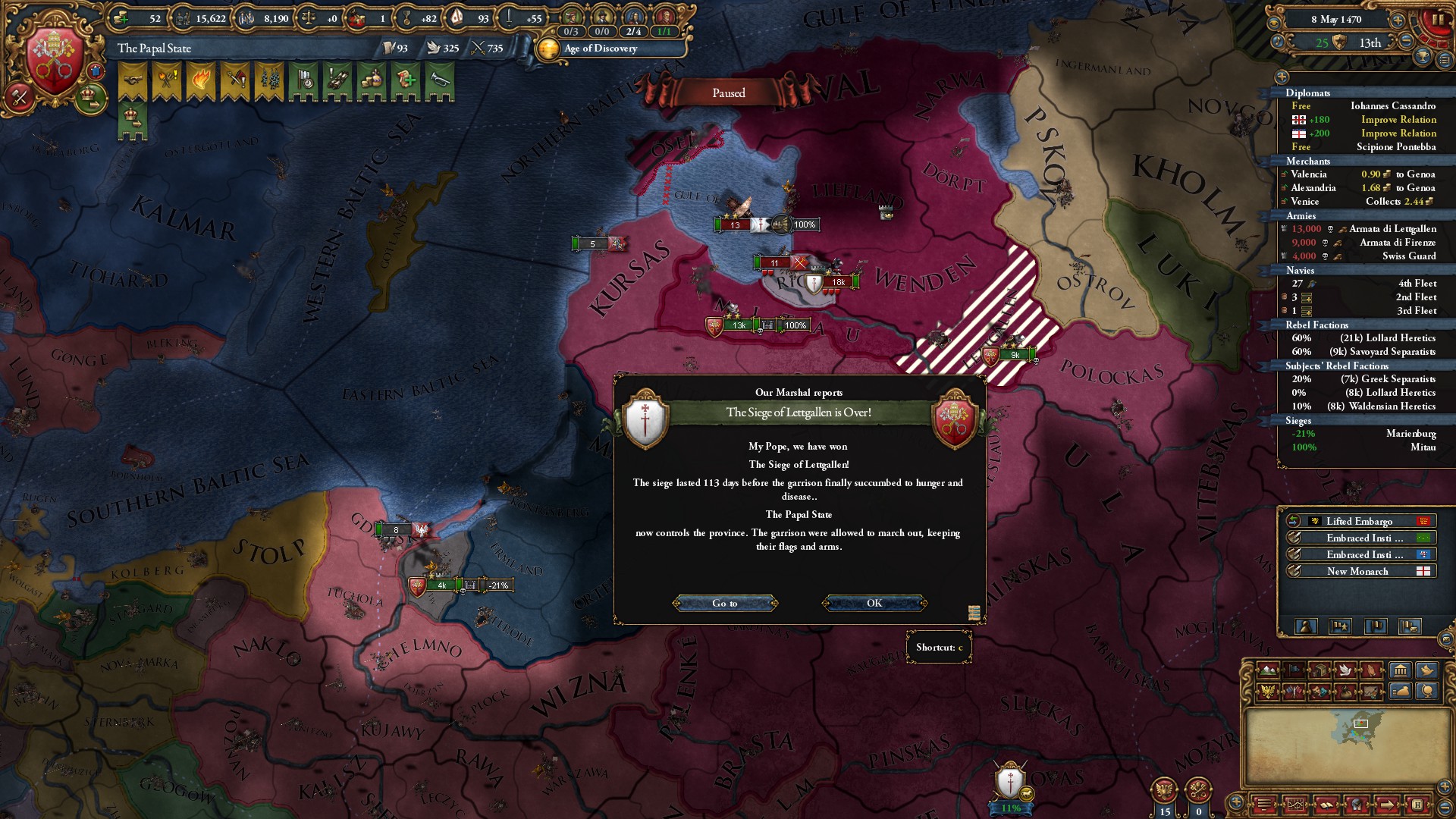
And the castle at Dinaberg has fallen, giving us Latgale.
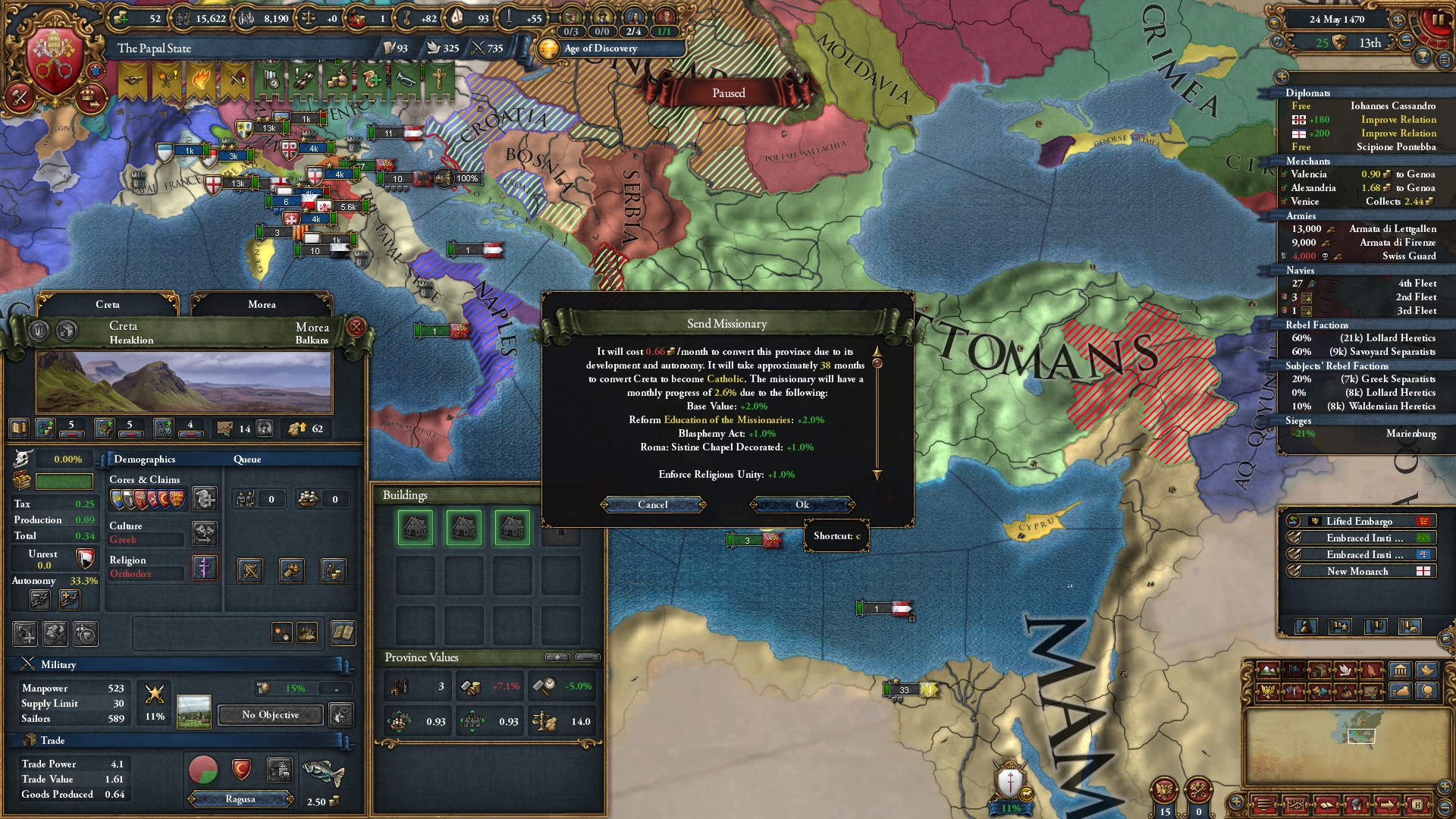
The first of our new missionaries has been sent to Crete to finally convert the island. The Venetians owned this place for over two centuries and did not do it, so it falls to us. Typical.
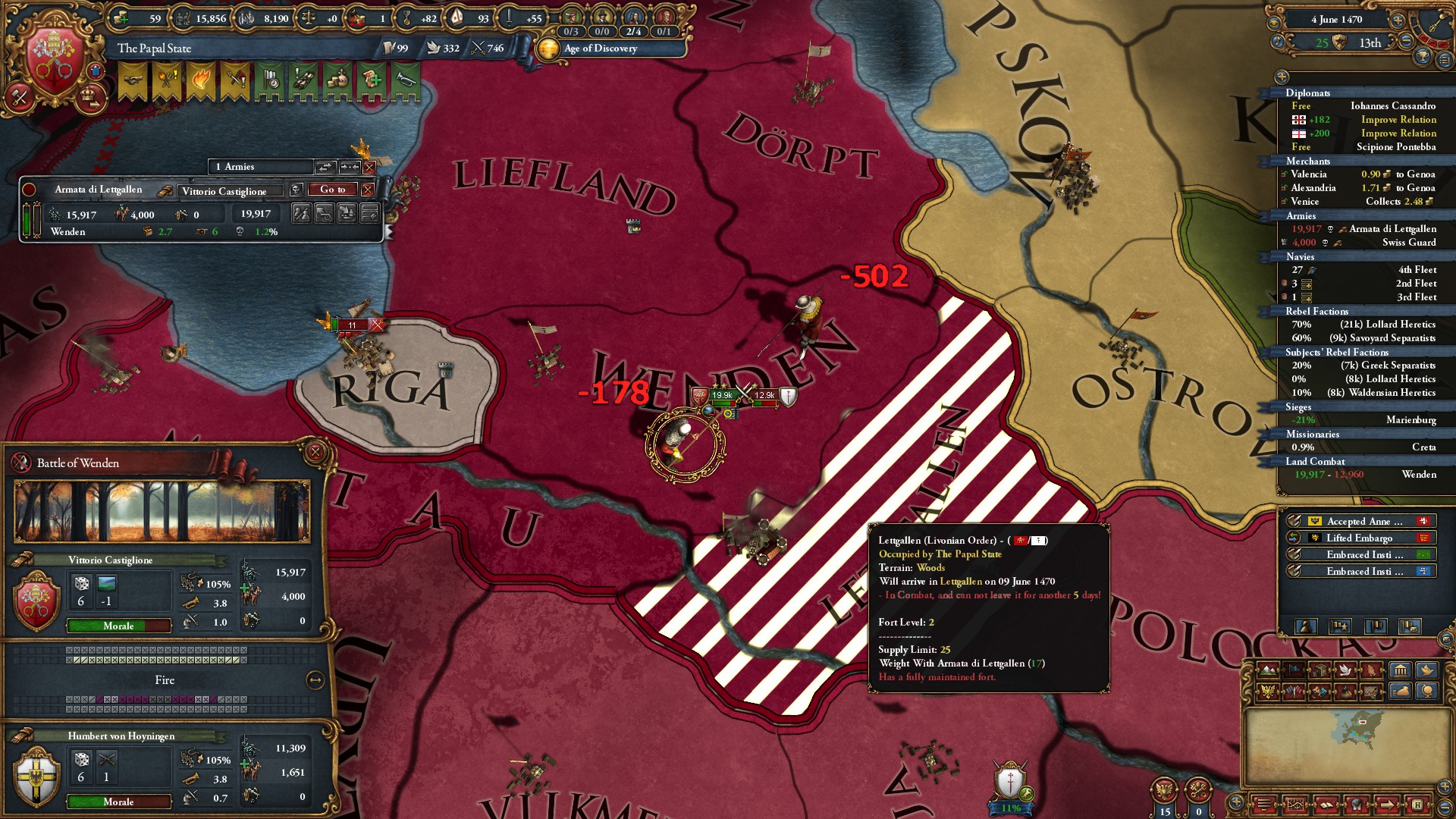
The Teutons and Livonians make a stand in Wenden – it isn’t going well for them.
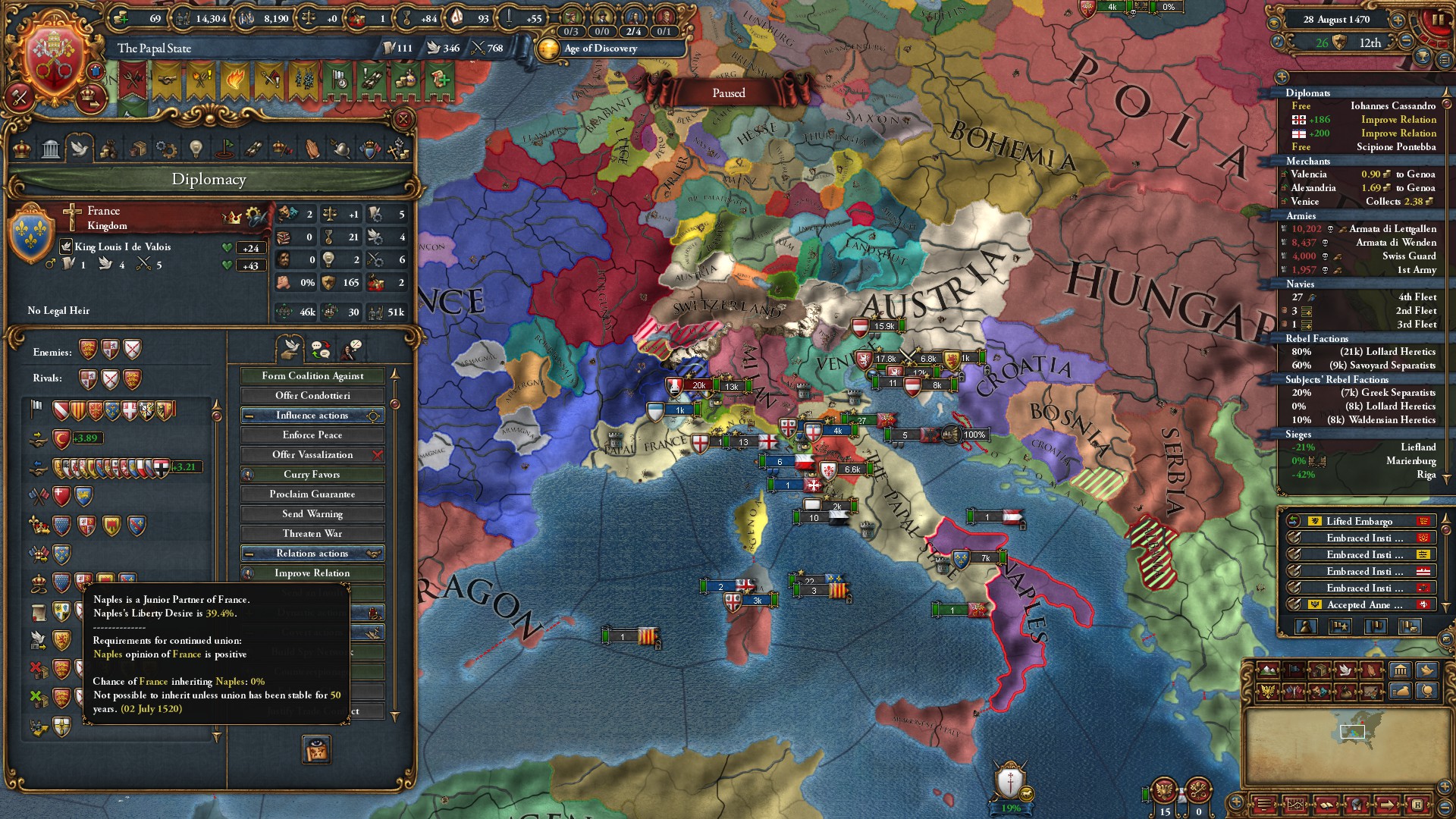
And King Ferrando has been deposed, with the new King Louis, having just reached his majority, being crowned King of both France and Naples. [E]
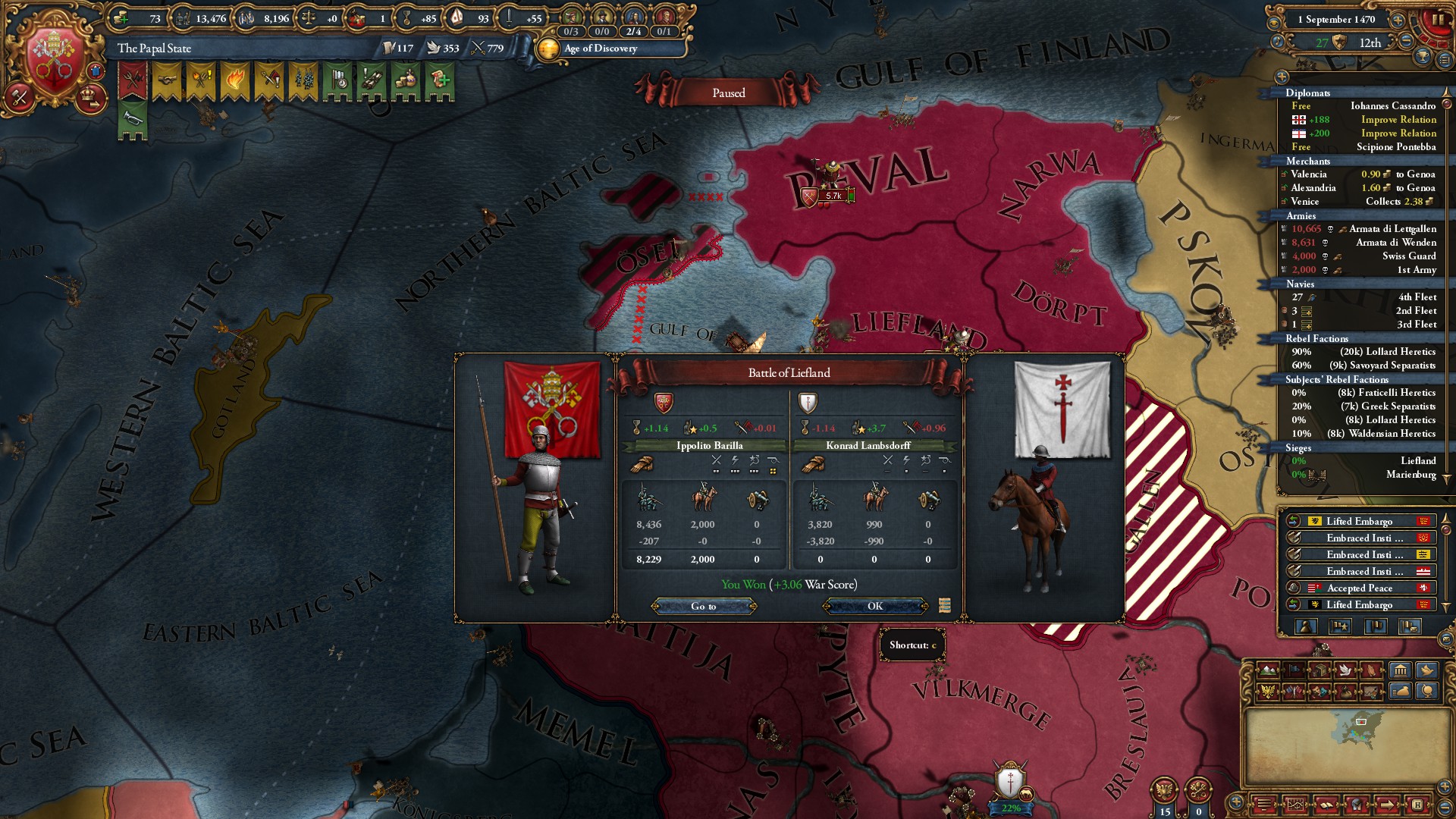
The remnants of the Livonian army are cut down before their capital walls.
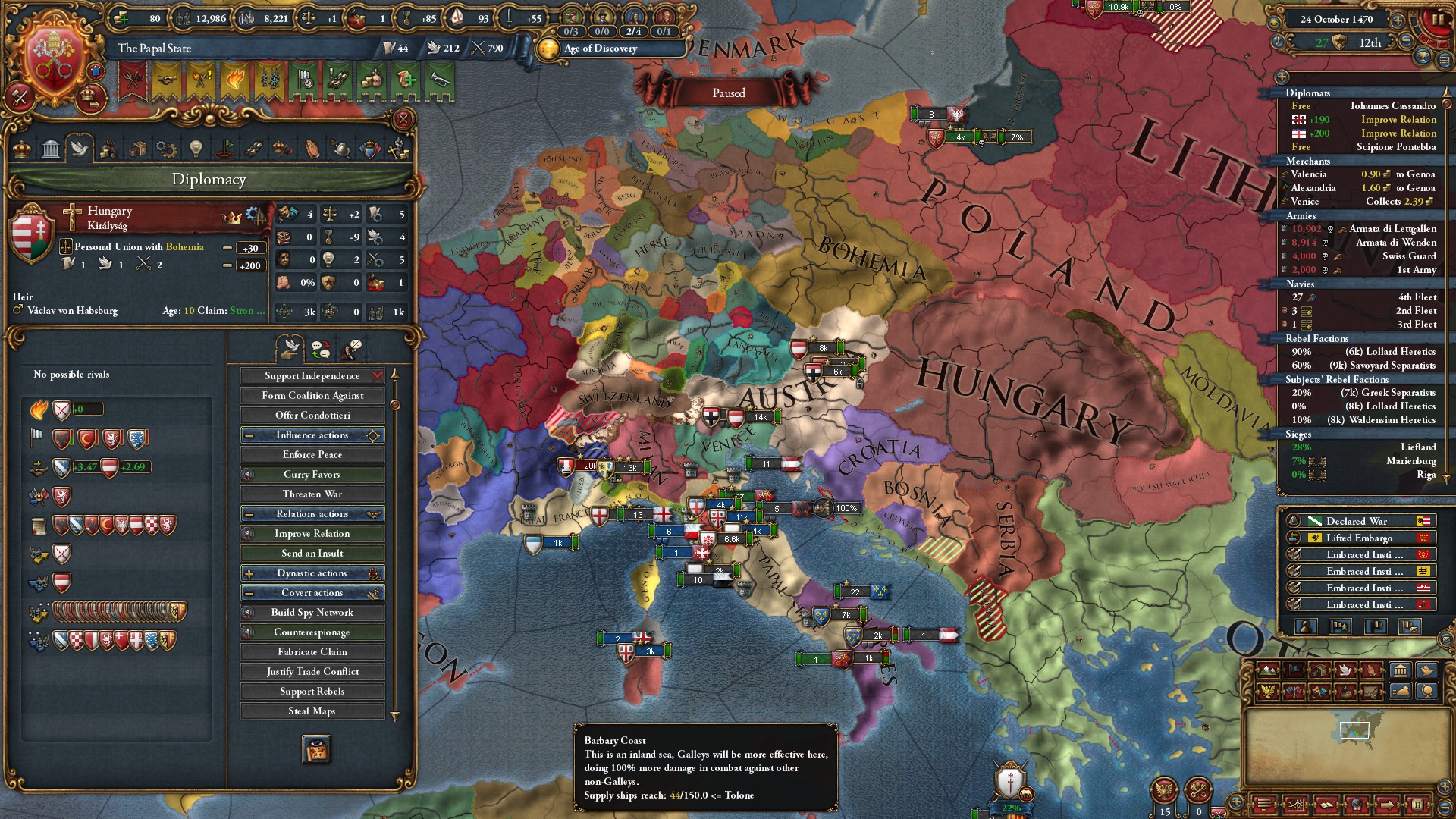
And the Queen-regent of Hungary has had to surrender her son’s throne to the Bohemian Habsburgs. By a bit of diplomatic trickery, the Ottomans have been forced to acknowledge they are not actually at war with the Bohemian king, and have completely pulled out of Hungary. Serbia, Albania, and Bosnia are not long for the world, but this does at least preserve somewhat of a bulwark against the Ottomans.
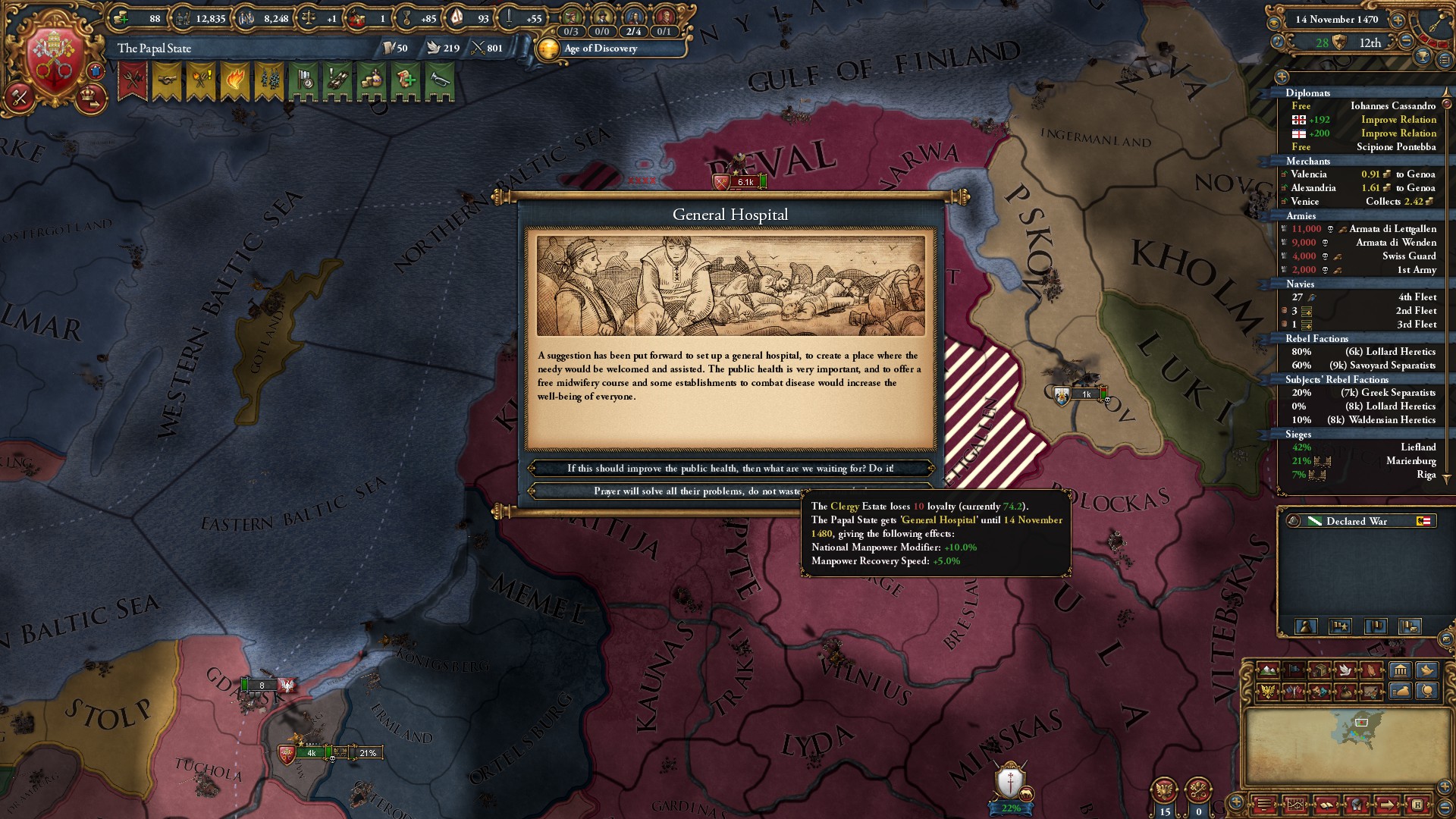
And a delegation of the Knights Hospitaller with the army in the north has vastly improved medical care for the men in the field. Good work all around. [F]
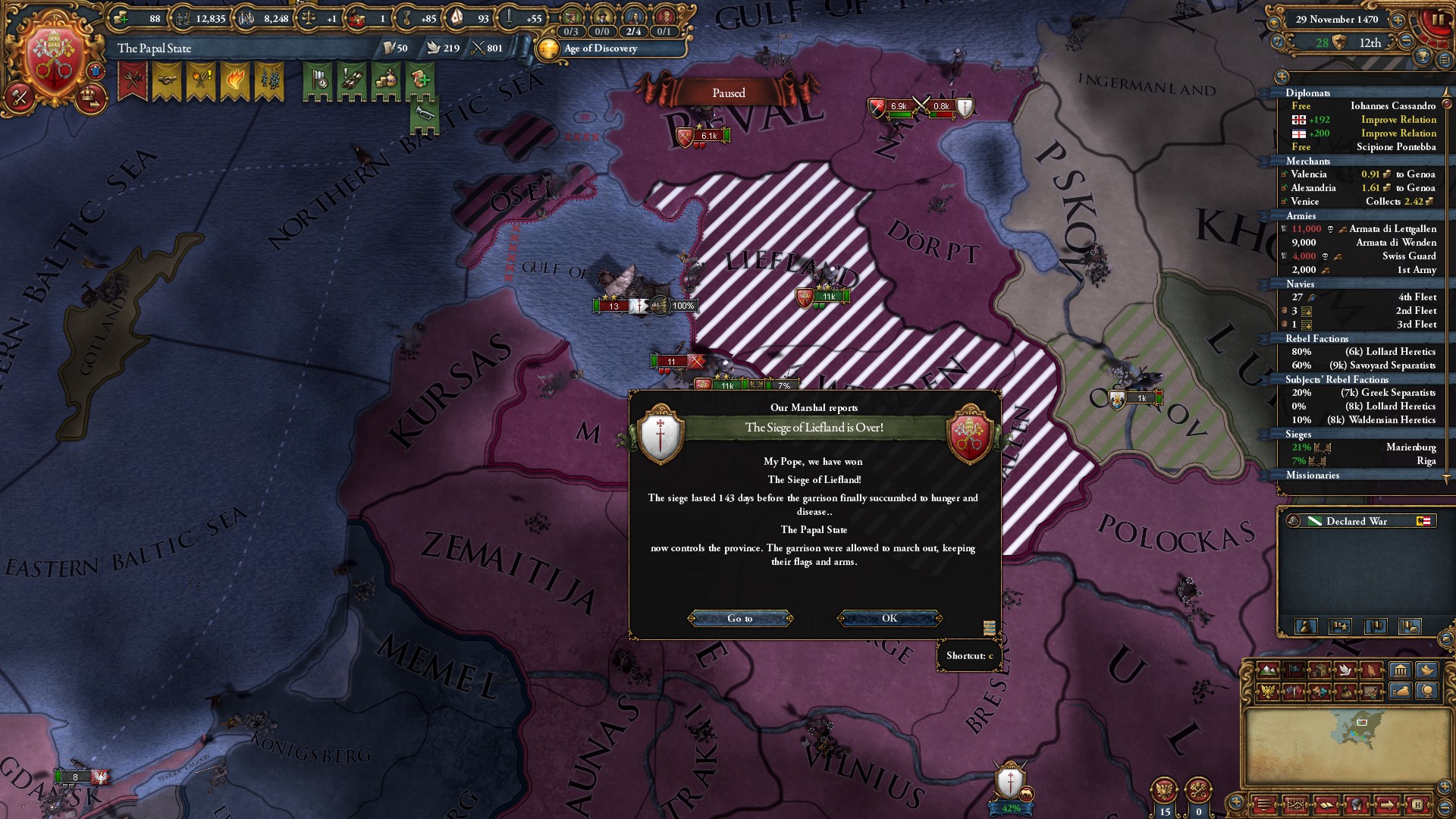
The Livonian capital has fallen and the peasants of Estonia are revolting… and also rebelling.
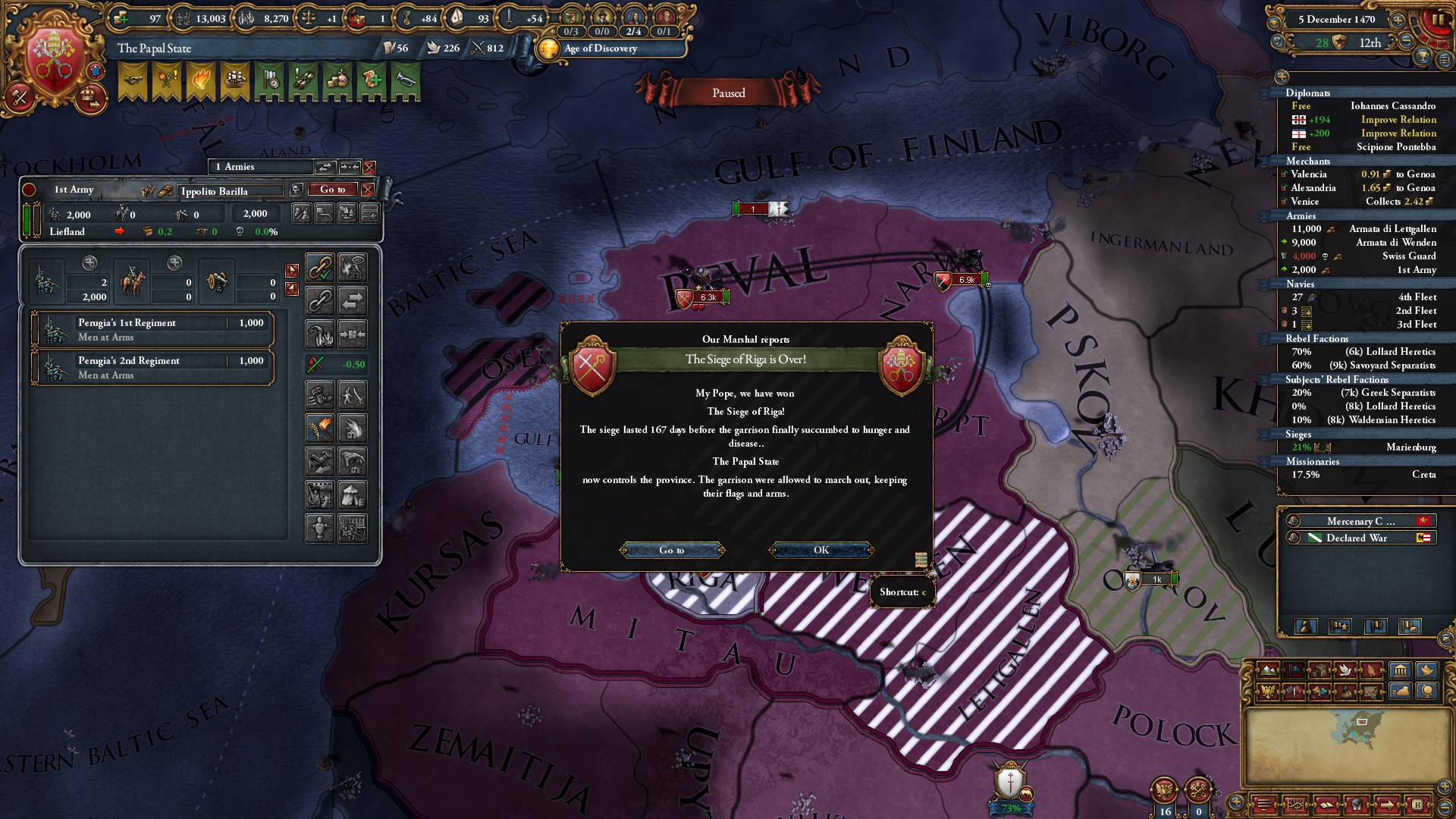
Riga falls less than a week later.
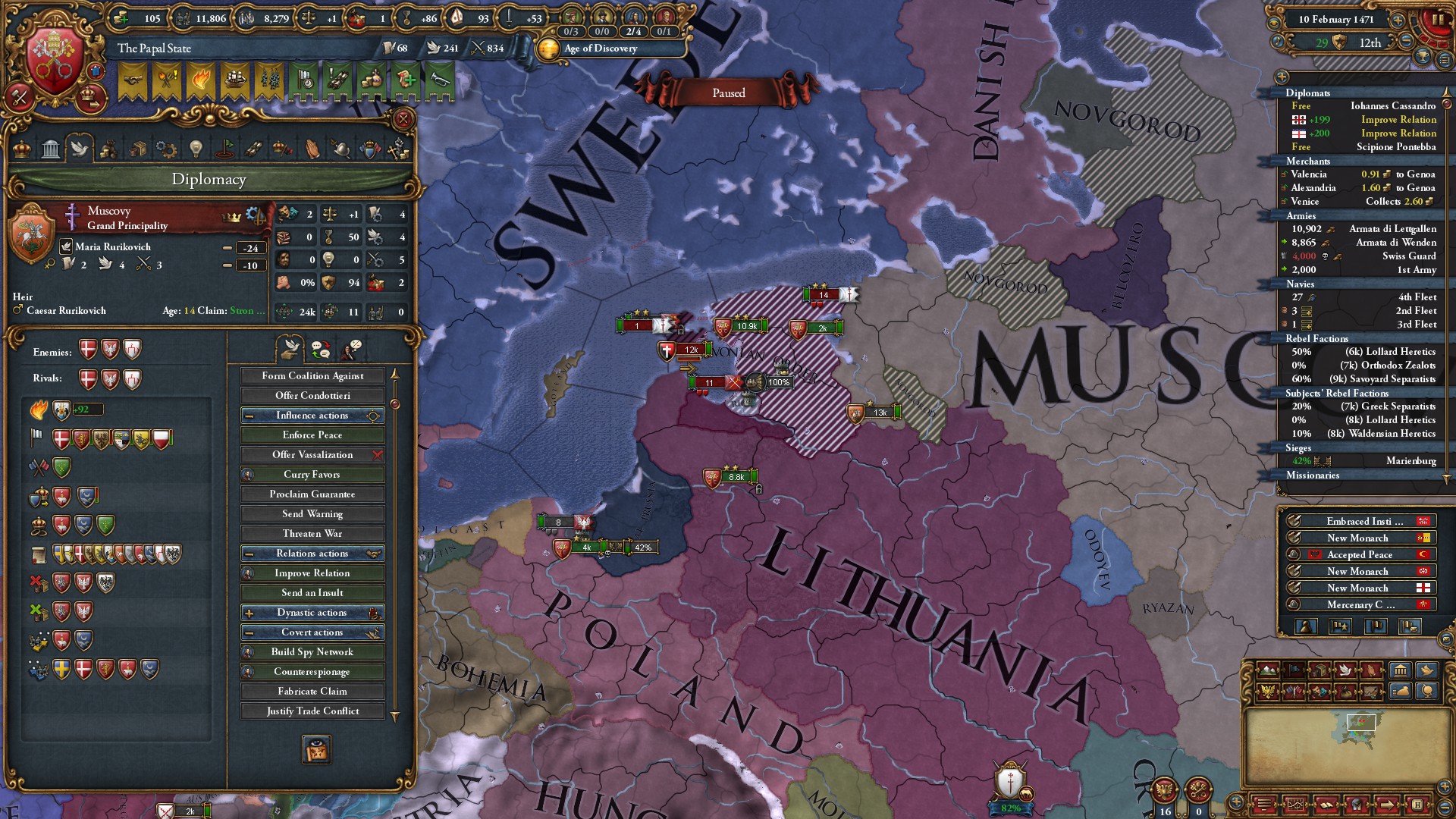
Just in time too – the Muscovite campaign against Novgorod is reaching its conclusion – if we do not secure our position soon, they may try to grab land in the chaos.
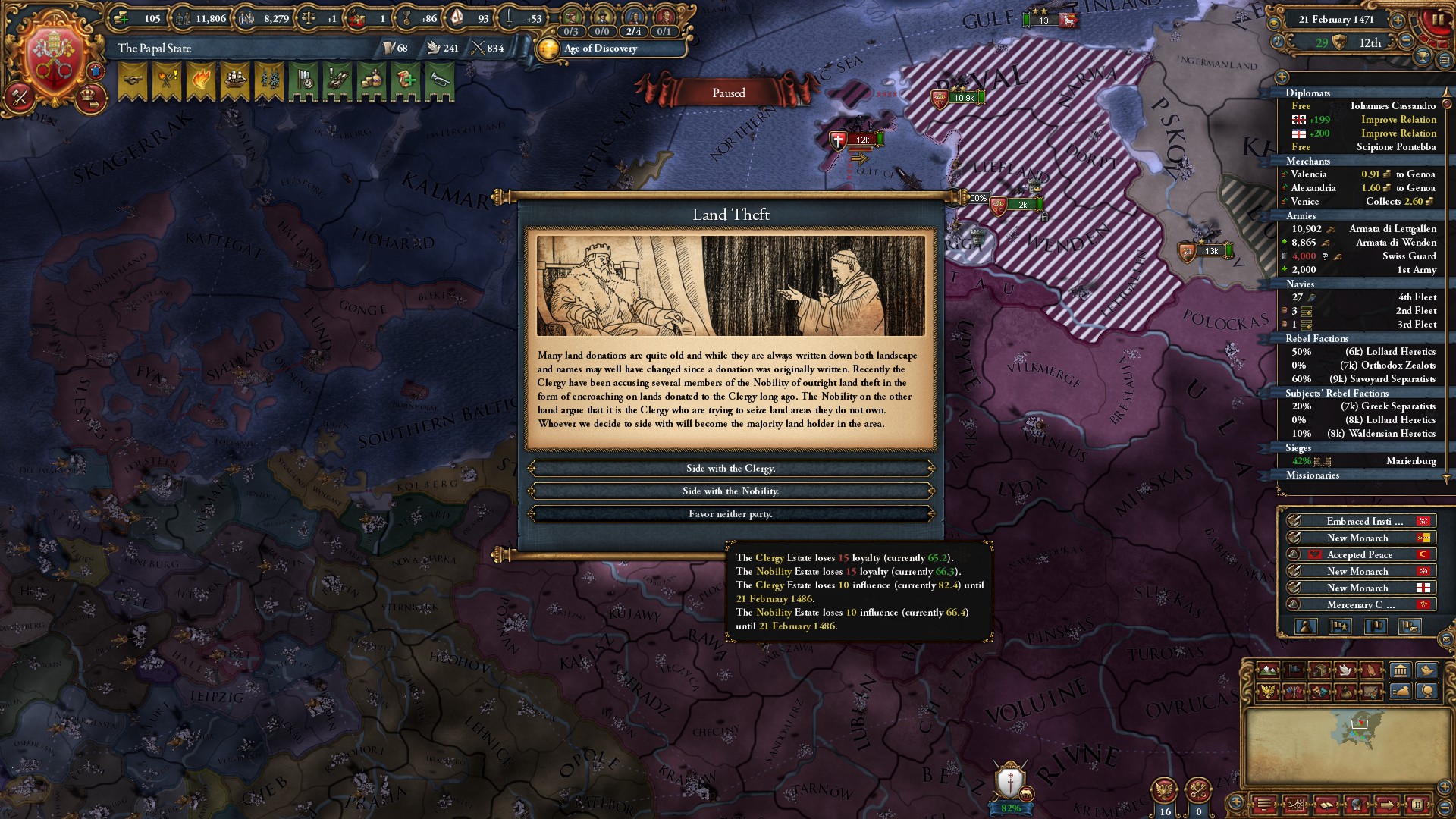
And the Archbishop of Ravenna is arguing about a disputed patch of church land with the local nobles. We looked into the matter and found that it really belongs to the Archdiocese of Rome and not either of them. Well done all.
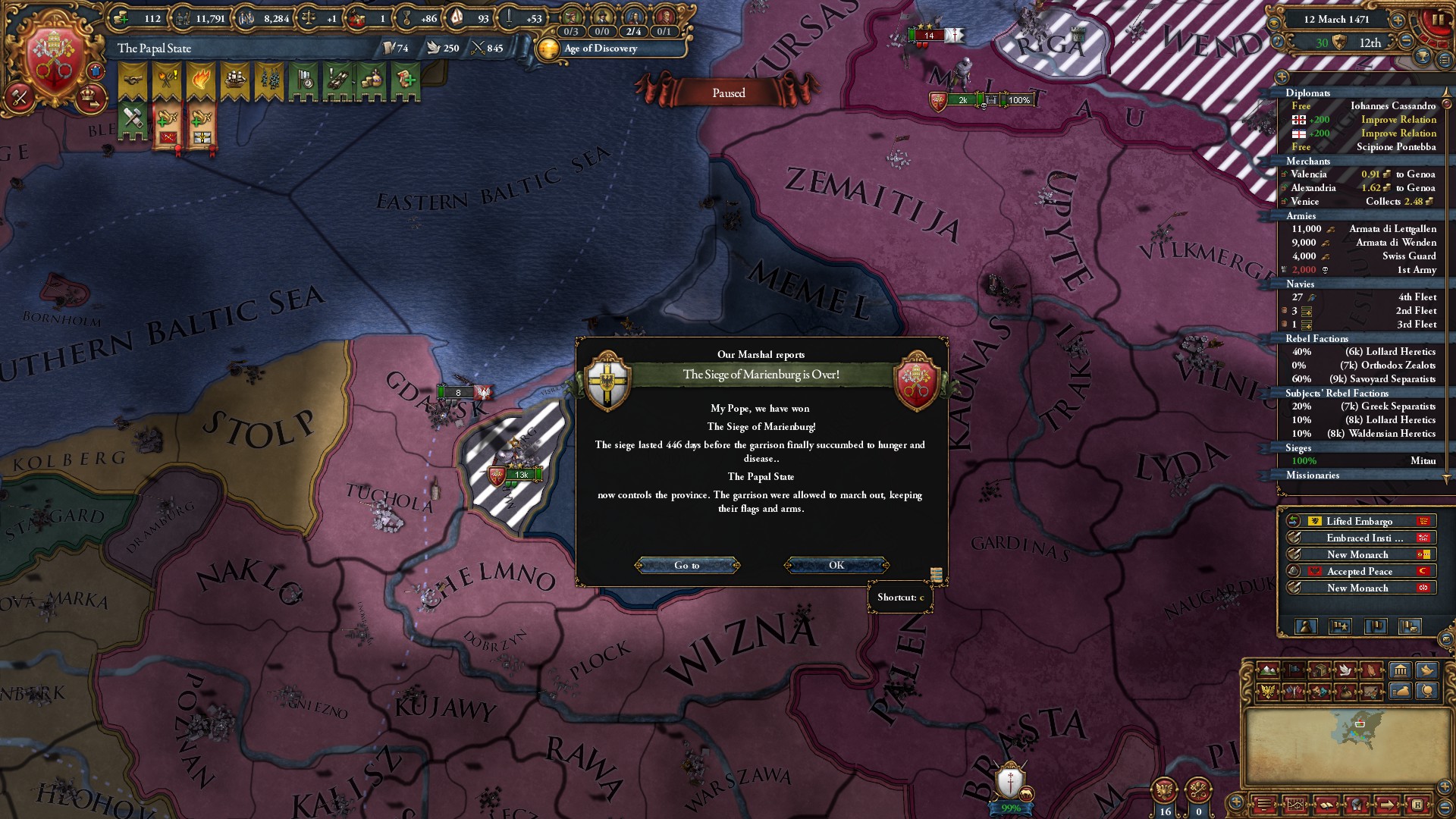
And the fortress of Marienburg, a shadow of its former self, has finally surrendered. At least it wasn’t as embarrassing for the Teutons this time as when it fell to the Poles a few years back. [G]
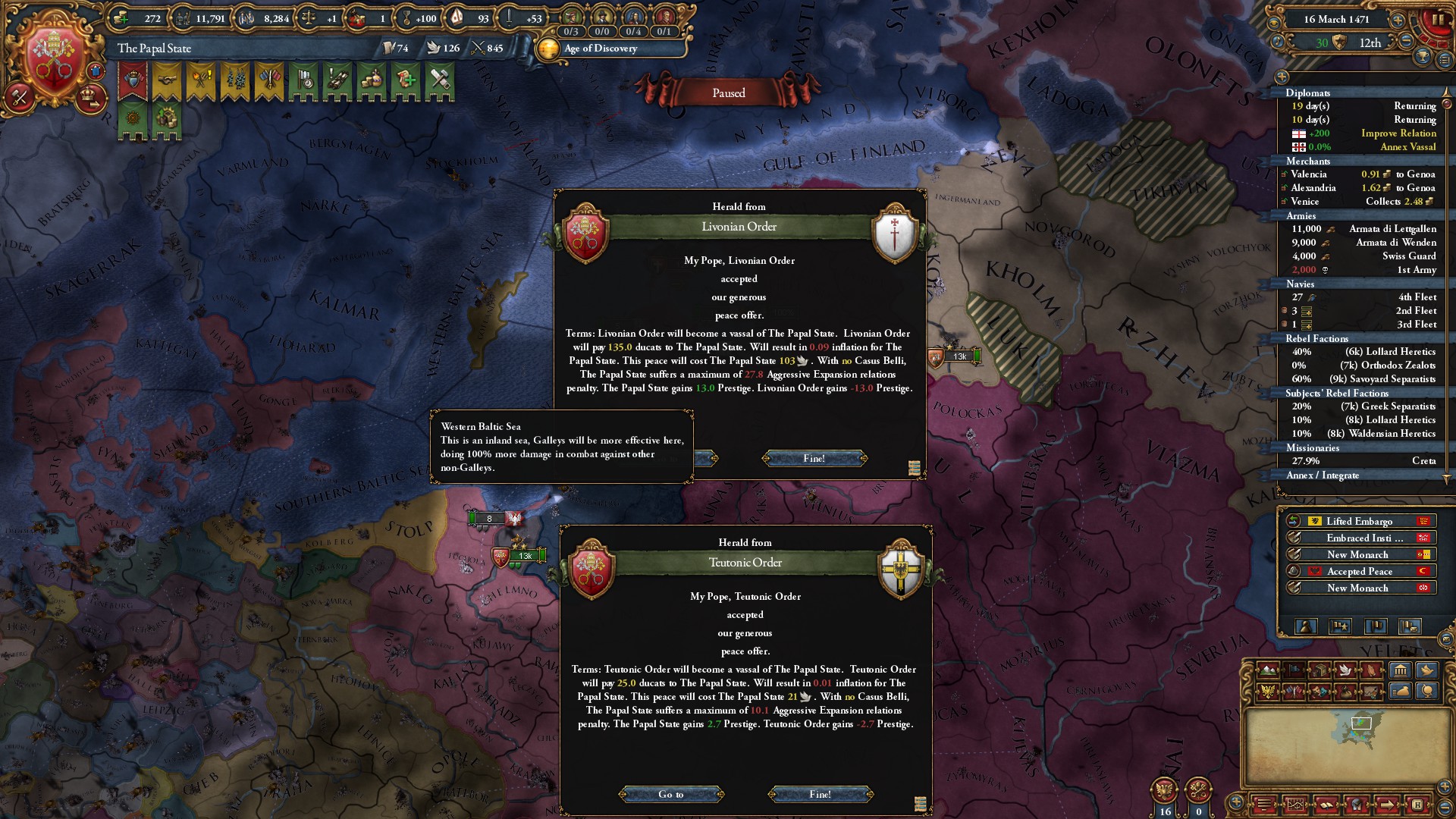
And with that, the Hochmeister and the Prussian and Livonian Landmeisters of the Brotherhood of St. Mary have formally acknowledged that they hold their territories as Papal fiefs. We will soon negotiate their vassalages with them to make clear that they are autonomous military orders and expected to only contribute men, not money.
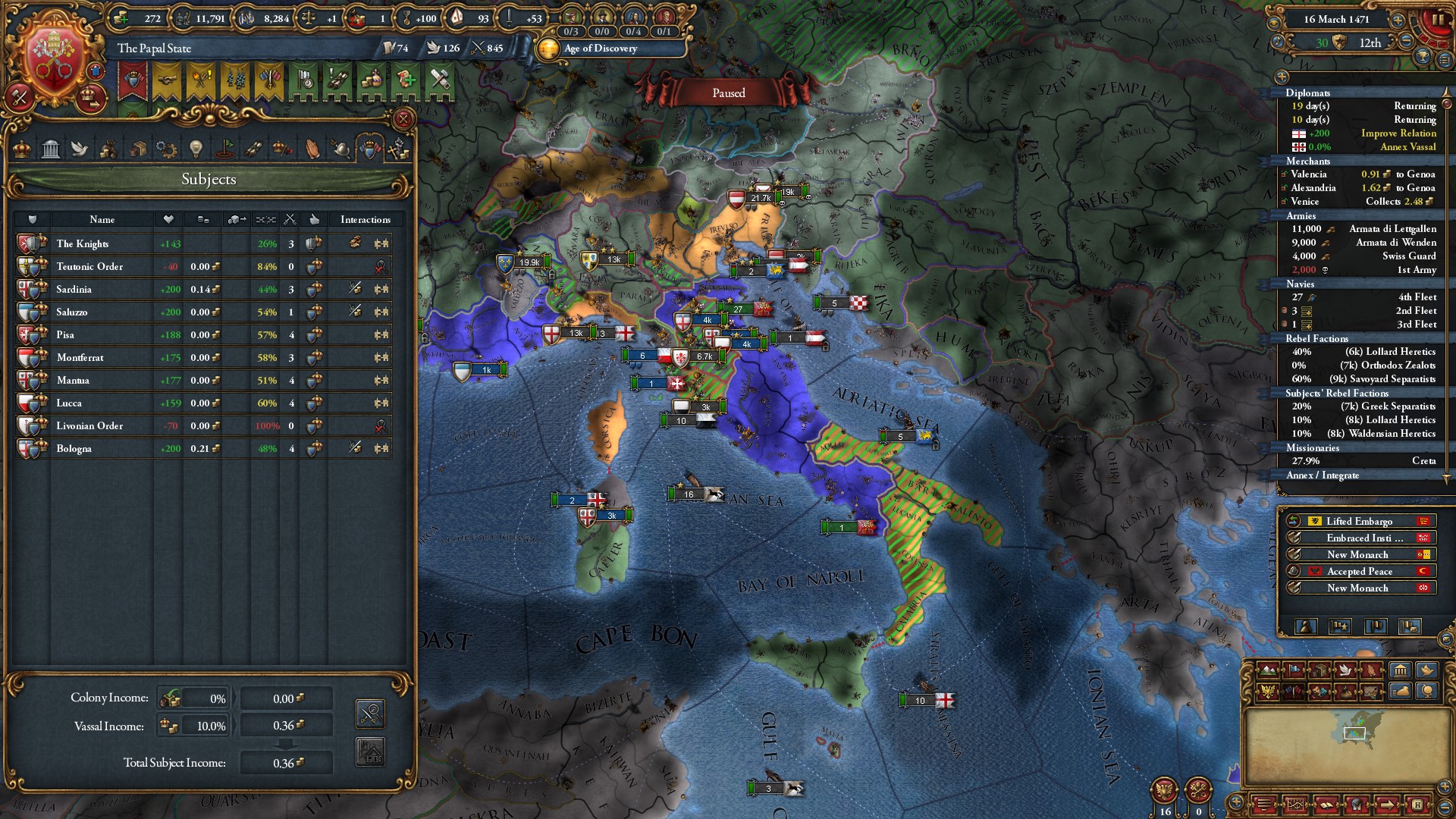
We now find ourselves overlord of a wide-ranging network of vassals, some of which are not entirely enthusiastic about it. His Holiness though is insistent that we are now in an excellent position to begin consolidating them and centralizing the realm, all we have to do is spread some of our new-found largesse around.
********************************************************
[A] The episcopal see in Bologna was not raised to its present status as an Archdiocese until 1582. Ironically enough, the far older Archdiocese of Ferrara (created somewhere around 430, raised to Archdiocesan status in 1735) was subordinated to Bologna’s ecclesiastical province in 1976, but the bishop there was allowed to keep the title for historical reasons.
I truly do not get what Paradox is doing here. On the one hand, yes, congratulations, they have clearly done their research and presented as options the historical painters of the wall frescos of the Sistine Chapel. However, they ALL worked on it, so why are you trying to make us pick just one? In any case, the missionary strength is the best one in my opinion if I truly want to go for a One Faith run.
[C] There is a popular perception of the Medieval/Renaissance Catholic Church as a highly centralized entity with its clergy displaying considerable learning, but also being “flexible” with theology when money is concerned, being highly corrupt, and being absolutely, positively allergic to allowing commoners to having education or knowledge of their own. Some of this is true, some of it is Protestant propaganda, and a fair amount is the unintentional “translation” if you will of the Church of the 19th and 20th Centuries back five hundred years. Paradox, for its part, swallows this view hook, line, and sinker (though not quite as totally in EUIV as it does in CKIII, mercifully) as we will see later. The actual reality of the 15th Century Church though is that things were a bit of a basket case, increasing in chaos the further away you got from Rome. Mostly this is due to two reasons:
The first being that while in Italy proper, the Vatican could potentially enforce proper theology and clerical behavior by showing up on one’s doorstep with the army, beyond the Alps, the local power structures that incorporated the local church were laws unto themselves. In particular, most episcopal offices were appointed by the sovereign lords of that state according to concordats negotiated with the Vatican, often on disadvantageous grounds for the latter. This meant that while simony is and has always been condemned as an extremely grave sin from the very beginning (see Acts, Chapter 8 for St. Peter’s denunciation of it), the Vatican was pretty much powerless to stop it in most cases as the offices were being bought from the rulers or local clergy that made the recommendation and the new office holders were therefore loyal to those persons (and yes, multiple popes and cardinals absolutely practiced a policy of “If you can’t beat them, join them!”). In extreme cases, some dioceses or ecclesial provinces were so detached from Vatican authority as to be de facto autocephalous (ironically mirroring many Protestant communions today). While Rome could and did regularly weigh in on matters happening throughout Europe, it required a fair amount of political capital being burnt usually to get the local clergy and secular authorities alike to even listen, much less agree. If Paradox wanted to make the game more realistic, it should make events like the “Demand that X country fire a heretic advisor” have a diplomatic mana cost behind them increasing in proportion to distance from Papal territory. It was not actually until the end of the Napoleonic Wars that the Vatican began to develop the near-universal authority it has today; mostly due to the destruction of the Ancién Regimes and the institution of religious freedom laws ironically enough. Even still, some artifacts of the past remain: Pope Leo XIV recently had to appoint a new bishop of St. Gallen following the terms of an 1845 concordat with the Swiss government, despite said bishop-elect having raised more than a few eyebrows in the Vatican on his views about female ordination.
This then leads into the second reason, which is an extreme lack of education among lower-order clergy of this period. Education in the age before the printing press was expensive, and when clerical offices are being bought and sold and some diocesan and parochial tithes are quite lucrative, proper training in theology can take a backseat to making some cash. There is also no requirement yet for every diocese to have or be affiliated with a seminary (that comes with the Council of Trent) so most don’t have any opportunities for formal schooling. Perhaps most pernicious of all though is that the system of informal education/apprenticeship that many places cobbled together of learning from more senior priests completely fell apart in the aftermath of the Black Death, as most of said learned priests were often the only thing approaching physicians in their communities, meaning they were all but wiped out by the plague. Your average parochial clergyman [D] in this time is barely literate, and many of them have truly appalling theological, philosophical, and scientific takes. Yes, the learned men in Rome and most European courts and universities are absolutely aware the Earth is round, and they’re probably even aware of how big it is based on Eratosthenes’s calculations, but the pastor of St. Glumsburg in the ass end of Pomerania is almost certainly teaching his flock that the earth is flat, the sun is a dragon, and the moon is a wheel of cheese it’s eating every day. For monastic and other regular clergy [D] who live in communities, the situation is a bit better as one has the benefit, usually, of a library, long periods of reflection, and a community of brothers that can teach, but even then, many monasteries of the period are way out of line in behavior and practice, resembling more modern college fraternity houses than anything poor St. Benedict would ever approve of. This means that doctrines like the granting of indulgences, the nature of the Trinity, the role of the Virgin Mary, the resurrection of the body, the Real Presence in the Blessed Sacrament, clerical celibacy, divorce, and countless others are being completely bastardized beyond all recognition "on the ground" despite the Vatican toeing a fairly hard line on them for several centuries prior. Even worse is that syncretism with the prior folk practices and religions of an area are so omnipresent that in many areas (Ireland, Germany, Scandinavia and the Baltics usually being the worst offenders), the inhabitants are only Catholic in the most superficial sense and otherwise qualify as Pagan. It’s a mess so horrifically bad as to make one almost feel sympathetic for Martin Luther…
Almost.
[D] (Up until apparently this April,) the Roman Catholic Church has never in its history given a darn about the the English-speaking world in considering how their terminology might be interpreted. One of the most magnificent examples of this callousness is in trying to describe a “normal” priest. One cannot, in fact, call them “regular clergy,” for that term is reserved for those “regulated” by a rule of life – that is the rules that monks, nuns, and other religious institutes must follow. Benedictines, Dominicans, and Franciscans are regular clergy, as an example. Likewise, one cannot describe them as “ordinary clergy” for that term too is reserved – namely to one who has executive power to enforce canon law (e.g. a bishop or a prelate). The proper term for Father Brown and Father Ted and every gentleman in between is “secular clergy” with “parochial clergy” being the proper term for one assigned to a parish.
[E] The rare regnal number fail from Paradox, we’re supposed to be on Louis XI or XII right now. Incidentally, he’s either Louis II or Louis IV of Sicily (Naples), depending on which line of succession claims to the Neapolitan throne you recognize (I did mention that it’s a mess right?).
[F] Yes, the religious denomination that runs a significant fraction of the world’s hospitals and medical clinics and maintains entire religious orders dedicated to healthcare is somehow spouting nonsense that would be awkward coming from the Christian Scientists. I refer the reader back to the first paragraph of [C].
[G] Although it may not have happened in this universe, the historical 1456 Siege of Marienburg/Malbork Castle is infamous for its absurd conclusion – finding out that the Teutonic Knights were a bit in arrears to the mercenaries they hired to supplement the garrison, King Casmir IV simply bought the castle off the mercenaries.
Last edited:
- 3



